Southern Italy is rapidly becoming a key European hub for agricultural innovation. As the Horizon Europe-funded project SMARTERRA (powered by SMAFINE) reaches its final stage, we look back at two years of growth, capacity building, and networking. From the Agrifood Summit 2025 in Matera to the international stage of Agritechnica: here is how our startups are redefining the future of farming.
3 min read
How SMARTERRA is Transforming the Mediterranean Agritech Ecosystem
By Annkathrin Wahbi on Jan 26, 2026 10:23:53 AM
Topics: agriculture RootCamp
4 min read
Out now! The new Bioeconomy Deep Dive Report: Lignin
By Annkathrin Wahbi on Jan 15, 2026 11:43:27 AM
Lignin is a natural biopolymer found in plant cell walls and produced in large quantities worldwide as a by-product of the paper and pulp industry. Thanks to its versatile properties, lignin has numerous potential applications. For example, as a raw material for bio-based plastics, binding agents, cosmetic products, battery materials and building materials.
Lignin could be a game-changer for greater economic efficiency and sustainability in industry
Lignin thus plays a central role in the development of sustainable alternatives to fossil raw materials such as petroleum or coal. Despite its enormous potential, lignin has only been used to a limited extent as a material to date. Economic and regulatory hurdles are hampering the market launch of innovative lignin-based products. There is a lack of uniform standards, and cooperation between stakeholders in the value chain still has room for improvement. This is the conclusion of the latest analysis of the lignin value chain as part of the "Bioeconomy Deep Dives" conducted by the innovation hub RootCamp on behalf of Landwirtschaftliche Rentenbank and the Federal Ministry of Food and Rural Affairs (BMLEH). The study identifies concrete solutions for how lignin can become a key raw material for the bioeconomy.
3 min read
CIIL’s First Batch: Cross-Industry Innovation for Sustainability
By Emilia Kinzler on Jan 13, 2026 11:05:49 AM
RootCamp has selected its first official batch for the CIIL – the Cross Industry Innovation Lab, a new program designed to support early stage startups from Lower Saxony which focus on developing sustainable industrial end products. The startups may participate for up to one year each. The program has capacity for up to six startups per year, with RootCamp planning to open the call for more startups before the end of this year and admit them on a rolling basis.
Topics: RootCamp
4 min read
10 AgTech and Bioeconomy Events in Europe You Shouldn’t Miss in 2026
By Emilia Kinzler on Dec 12, 2025 11:12:24 AM
Europe’s AgTech and bioeconomy landscape is entering a defining year. From biomanufacturing showcases to field-ready robotics demos and cross-border innovation forums, 2026 is shaping up to be packed with opportunities for founders, investors, researchers, and corporates alike. Whether you're looking to validate your technology, accelerate partnerships, or get a glimpse of the next big breakthrough in sustainable agriculture and circular bioeconomy, this curated list of 10 must-attend events in 2026 will help you select the best options for your specific needs and interests.
Topics: Events
2 min read
ZETRACK The First Electric BaaS Tractor Built for Autonomy
By Linh Pham on Dec 4, 2025 4:43:58 PM
As part of the Desafía Agtech Germany program, we are supporting ZETRACK in establishing its presence in the German market. In the following interview, ZETRACK explains what sets the ZETRABOT apart from other machinery solutions, why now is the moment for electric and autonomous tractors and what types of partnerships the company aims to build in Germany through the Desafía Agtech Germany program.
Topics: Startup Bios agriculture agtech
2 min read
SpinLab Group Recognized with the Startup Ecosystem award
By Linh Pham on Dec 3, 2025 12:03:08 PM
The SpinLab Group, consisting of RootCamp in Hanover, SpinLab in Leipzig and ExciteLab in Dresden has been awarded with the “Startup Ecosystem Star Award 2025” in the category: Exceptional Industry Support. The award was presented during a ceremony at the headquarters of the International Chamber of Commerce (ICC) in Paris. The Startup Ecosystem Stars Awards are organized by the ICC and Mind the Bridge, in collaboration with the OECD and the European Commission, and supported by Microsoft. They are among the world’s most prestigious recognitions for organizations that measurably strengthen innovation ecosystems.
6 min read
Turning Slurry Into a Resource: WorldPathol's Circular Approach
By Linh Pham on Nov 17, 2025 2:41:52 PM
As part of the Desafía AgTech Germany program, Veterinary Europe Holder by WorldPathol introduces its work at the intersection of biotechnology, animal health, and circular farm systems. The program supports selected Spanish AgTech startups with access to German's AgTech ecosystem. In this interview, WorldPathol outlines how its integrated approach strengthens animal health, reduces environmental impact, and builds more resilient protein supply chains.
Topics: 2025
6 min read
Néboda Farms: Applying Automation and Robotics to Indoor Agriculture
By Linh Pham on Nov 11, 2025 1:09:56 PM
As part of the Desafía AgTech Germany program, RootCamp is supporting Néboda Farms in establishing its presence in the German market. The Spanish startup combines engineering and automation expertise to make vertical farming both efficient and profitable. In this interview, Néboda shares insights into its technology, its approach to sustainable indoor cultivation, and its plans for expansion into Germany.
4 min read
Part II: 20 AgTech Startups from Agritechnica 2025 you should know
By Emilia Kinzler on Nov 10, 2025 1:36:06 PM
RootCamp is proud to be partnering once again with Agritechnica, a world-leading trade fair focusing on technological advancements in agriculture. This event, held from the 9th to the 15th of November 2025 in Hannover, is a key gathering for the industry, setting the stage for innovations that drive the future of sustainable agriculture and technological solutions.
Topics: agriculture startups agfoodtech 2025
4 min read
Part I: 21 AgTech Startups from Agritechnica 2025 you should know
By Emilia Kinzler on Nov 6, 2025 11:20:25 AM
RootCamp is proud to be partnering once again with Agritechnica, a world-leading trade fair focusing on technological advancements in agriculture. This event, held from the 9th to the 15th of November 2025 in Hannover, is a key gathering for the industry, setting the stage for innovations that drive the future of sustainable agriculture and technological solutions.
Topics: agriculture startups agfoodtech farming 2025
3 min read
Desafia AgTech Germany: Six Emerging AgTech Startups from Spain You should know
By Linh Pham on Oct 22, 2025 1:11:17 PM
The Desafía AgTech Germany program has kicked off, bringing six promising Spanish startups to explore opportunities in the German Agtech ecosystem. Each of them brings unique expertise in areas such as precision agriculture, sustainable crop management, biotechnology, and digital farming solutions. Together with ICEX and Red.es, RootCamp is leading the implementation of this initiative. As a multi-corporate innovation hub, RootCamp supports the startups in building connections, understanding the German market, and turning innovation into concrete business collaborations. Spain’s AgTech ecosystem has grown rapidly in recent years, shaped by the need for efficiency and sustainability in challenging environments. Expanding into Germany allows these startups to apply their know-how in one of Europe’s most advanced and technology-driven agricultural landscapes.
Topics: agriculture startups agtech agfoodtech bioeconomy
5 min read
From Residuals to Renewable Energy: The Promise and Challenges of Bio-LNG
By Emilia Kinzler on Oct 14, 2025 9:22:05 AM
What is Bio-LNG?
Bio-LNG, also known as liquefied biogas or liquefied biomethane, Is a renewable fuel that currently serves as one of the most economical and cleanest options in the transport sector. Produced from organic residuals, its specific niche is decarbonising sectors where electrification is difficult: for example, long-distance or heavy goods transport and shipping, among other energy intensive industries.
Topics: 2025
3 min read
Nexus Bioeconomy 2025 in Focus: A Day of Insights, Dialogue, and Networking at RootCamp
By Emilia Kinzler on Oct 6, 2025 5:09:48 PM
Topics: bioeconomy
4 min read
8 innovative AgTech startups you should know
By Elisabed Lejava on Sep 24, 2025 10:47:04 AM
RootCamp, in collaboration with DLG and Rentenbank, is once again spotlighting the future of food, farming and agriculture with the RapidFire Startup Competition, a fast-paced event at the Inhouse Farming – Feed & Food Convention 2025 in Hamburg.
Topics: Startup Bios startups RootCamp sustainability
3 min read
Desafía AgTech Germany: A Chance for Spanish AgTech Startups in a Top Market
By Elisabed Lejava on Sep 23, 2025 4:45:48 PM
This year RootCamp will support the Desafía AgTech Germany program. Desafía is an intensive market entry and networking program aimed at promising Spanish AgriTech startups. The goal of the program is to provide participants with a deep understanding of the German market and to connect them directly with partners, companies, and investors.
Topics: agriculture RootCamp 2025
4 min read
RootCamp enters the next round: Batch #7 Solutions for sustainable water, agriculture, and circular economy
By Linh Pham on Aug 25, 2025 2:34:43 PM
With Batch #7, the RootCamp innovation hub from Hannover is starting a new round, welcoming six promising startups into its accelerator program. Over the coming months, the selected teams from Germany, Serbia, Latvia, Belgium, and France will receive targeted support to further develop their technologies, gain access to expertise and investors, and seize the opportunity for pilot projects with industry partners.
Topics: Startup Bios agriculture RootCamp 2025 bioeconomy
5 min read
Is Bioenergy Contributing to World Hunger? The Food vs. Fuel Debate Explained
By Emilia Kinzler on Aug 7, 2025 5:08:13 PM
In 2021, bioenergy accounted for 59% of the total renewable energy consumption in the EU, and therefore around 13% of total energy consumption - a significant chunk in both cases. Specifically in the transport sector, biofuel consumption increased by 39% between 2013 and 2021. So, considering the widespread and increasing use, why hasn’t energy derived from biomass replaced energy from fossil fuels yet? Among other growing pains, there is an ongoing question about land use, often called the ‘food vs fuel debate’. Should we be dedicating arable land to growth of energy crops, when this limits the land available for food crops?
Topics: biodiversity 2025 bioeconomy
2 min read
WaterTech Challenge: Funded Watertech Startups in 2025
By Linh Pham on Aug 7, 2025 4:49:59 PM
Water scarcity, aging infrastructure, and tightening environmental regulations are pushing water technologies into the spotlight for investors around the globe. After years of moderate attention, the WaterTech sector saw a record-breaking year in 2024 and the trend is continuing in 2025. Innovations now range from smart leak detection and AI-driven optimization to lithium recovery and the removal of persistent pollutants from wastewater.
Topics: Startup Bios Venture Capital
5 min read
11 Emerging Agtech, Bioeconomy & Circular Startups to Watch in 2025
By Emilia Kinzler on Jul 4, 2025 11:41:10 AM
2 min read
Accelerated greening of salt heaps: K+S and Plantilizer launch pilot project
By Emilia Kinzler on Jun 17, 2025 3:33:11 PM
6 min read
Lignin: Key to the Bioeconomy and Challenges to Scaling
By Emilia Kinzler on Jun 16, 2025 10:24:54 AM
Lignin - a term you might have heard in high school biology, and infrequently since. It’s the binding agent in wood, as well as the world’s second most abundant biopolymer after cellulose and holds immense potential as a renewable resource for a huge range of applications.
What is lignin, and why should we care?
There is a misconception that it is primarily burned as waste in the paper and pulp industry, which isn’t true, but it has much more potential than what it currently lives up to. In the emerging bioeconomy, lignin could play a crucial role in replacing fossil resources and enabling more sustainable production. But how exactly can it be used, where do current developments stand, and what obstacles hinder its large-scale adoption?
4 min read
3 min read
RootCamp launches pilot project between K+S & VCG.AI for AI-driven discovery of circular silicon sources
By Mario Verbeek on May 13, 2025 12:04:03 PM
Silicon, a micronutrient, positively influences plant nutrient availability and drought resistance. Current supply chains mostly rely on traditional, non-circular economy sources, causing downsides in terms of ecological sustainability. K+S, a global leader in plant nutrition solutions, has joined forces with VCG.AIfrom RootCamp batch #6, to use the AI-driven value chain generator platform from VCG to find new, sustainable sources of silicon for plant nutrition. These silicon sources could be used as a value-adding additive to standard K+S fertilisers.
Topics: venture clienting
3 min read
One year of Smarterra powered by SMAFINE - a recap
By Annkathrin Wahbi on Apr 8, 2025 3:00:51 PM
A lot has happened since Smarterra (officially Smarterra powered by SMAFINE) was launched in February 2024 in Matera. This EU Horizon project is dedicated to fostering AgriFood innovation systems and entrepreneurial activity in Southern Italy.
Topics: agriculture RootCamp agfoodtech bioeconomy
2 min read
Bioeconomy Deep Dive: Unlocking the potential of industrial hemp
By Linh Pham on Apr 7, 2025 3:14:45 PM
Industrial hemp offers significant potential for the bioeconomy. To harness this potential, investments in innovation and in scaling up industrial hemp production and processing are necessary. This is the key finding of an analysis of the industrial hemp value chain conducted as part of the “Bioeconomy Deep Dives,” carried out by the innovation hub RootCamp on behalf of the Landwirtschaftliche Rentenbank and the Federal Ministry of Food and Agriculture (BMEL).
Topics: agriculture agtech
4 min read
Solving the water crisis: Emerging technologies in water desalination
By Linh Pham on Mar 11, 2025 3:22:26 PM
Water is one of the most essential resources for life on Earth, yet many regions are experiencing severe shortages. Population growth, industrialization, and climate change have placed increasing pressure on freshwater supplies worldwide. The United Nations’ Sustainable Development Goal 6 (SDG 6) aims to ensure reliable and sustainable access to clean water and sanitation for all by 2030. To address the global water crisis, various measures are being implemented, including improving water quality, promoting efficient water use, and ensuring fair access to safe drinking water and sanitation. One approach to increasing water availability is water desalination.
4 min read
7 Water Tech Startups you should know in 2025
By Mario Verbeek on Mar 6, 2025 9:43:22 AM
Water is essential to all life, and its efficient management has become a key challenge for sustainability in today's world. According to the United Nations (UN Water, 2021), by 2025, nearly two-thirds of the global population could face water shortages. Many industries, particularly in agriculture, energy, manufacturing, and food processing, are some of the largest consumers of freshwater. Inefficiencies in water management, such as outdated infrastructure and wasteful usage, exacerbate water scarcity, making it increasingly difficult to meet growing demand.
Topics: Startup Bios agriculture innovation
3 min read
Digitalizing Bioeconomy: How Data drives Decarbonization
By Ilka Gomez on Mar 3, 2025 4:12:58 PM
A critical factor in successful decarbonisation is the use of data. The digital transformation of agriculture can not only increase efficiency, but also make a sustainable contribution to reducing the industry's ecological footprint. However, clear standards and a harmonised database are needed to exploit the full potential of data. The role of standardized data was discussed at this year's RootCamp Demo Day in a panel with Dr. Philipp Rittershaus, Head of Corporate Innovation & Startup Coaching, Ole Storm, Digital Manager at Rapool; Dr. Christian Henning, CEO of permarobotics and Head of the German Delegation at ISO TC 347, Jon Goriup, CEO and Co-Founder of RootCamp startup vcg.ai and Loet Rummenie, Program Director at STARTLIFE.
Topics: demo day
3 min read
VCG.AI: AI Platform for Faster Circular Product and Business Development
By Liza Ziva on Feb 24, 2025 1:14:50 PM
VCG.AI offers the Value Chain Generator, a platform that helps companies transform organic byproducts and waste into valuable resources. Leveraging artificial intelligence and extensive databases, the platform identifies suitable waste materials and evaluates hundreds of conversion technologies and business models. The goal is to create profitable and sustainable circular solutions for industries such as agriculture, food, and forestry while reducing their carbon footprint. Jon Goriup, co-founder & CEO VCG.AI, answered our questions and described the main idea of the startup.
Can you explain, in simple terms, what your platform offers and how it works?
VCG.AI is an AI platform for companies to develop and launch circular products and business models faster and more efficiently. Our proprietary AI achieves this by analysing millions of global data points in real-time— technological and scientific advancements, market trends, feedstock availability, and active companies in the field. This enables the development of technically viable and profitable circular products and business models based on the latest global intelligence.
By connecting feedstocks, suppliers, technologies, and market applications, VCG.AI makes it easier to develop new circular products, find high-value uses for industrial by-products, and uncover actionable circular market opportunities. This reduces time and costs while increasing the success rate of circular innovations. Essentially, we provide centralised data intelligence to turn circular economy ideas into viable business solutions.
What specific challenges did the companies you worked with face before using vcg.ai?
Developing and launching bio-based circular products using traditional methods often fails due to several key challenges.
Rapid technological advancements, shifting markets, and evolving regulations make it difficult for companies to stay ahead. R&D demands significant time and financial investment, yet many organisations lack critical data on feedstock availability, novel technologies, and market demand for new materials.
As a result, many circular products and businesses struggle to succeed, and numerous innovations never reach the market. VCG.AI removes the guesswork, providing companies with data-backed strategies to develop circular products and business models that are market-ready and commercially viable.
Could you share a specific example from your case studies that demonstrates how your platform works and delivers measurable impact?
One of our clients, a large biorefining company, wanted to find higher-value applications for their by-products. They used VCG.AI to gain insight into the currently most relevant value-adding technologies for their feedstock, market trends, and the highest-paying processors for their materials.
With global circular intelligence at their fingertips, they received a directly applicable strategy— identifying which feedstocks to sell, to whom, and which technologies to invest in to maximise their future returns. By leveraging VCG.AI, they will implement viable circular initiatives with maximum time and cost efficiency, achieving results in months rather than years.
You currently focus on Europe with plans to expand into the USA and Latin America. Why exactly these countries?
Our solution is already used by industry leaders, R&D institutions, investors, and public authorities in 15 European countries. In the coming years, we plan to expand to the U.S. and Latin America, where demand for accelerating the circular bio-based industry is growing fast, and feedstock availability is there to support the industrial-scale deployment of circular business models. We also have strategic market partners in these regions, which will help us enter these new markets more smoothly.
With plans to begin fundraising in Q3 2025, what are the next milestones you hope to achieve with the funding?
Our next funding round, planned for Q3 2025, will focus on strengthening our technological advantage, developing solutions for a broader scope of industries, and supporting our expansion beyond Europe in the coming years.
What opportunities do you see in the German market and being a part of the RootCamp acceleration program?
Germany is one of our core strategic markets, with well-developed, relatively mature, and well-connected industries. The transition to a circular economy in such markets can drive economic growth, create new green jobs, and unlock new opportunities. RootCamp Accelerator and its excellent mentors are opening new doors for us, helping to enhance our recognition and market access in our key markets.
Join Join our program and get equity-free support with a grant to help bring your idea to life
- application deadline is on 19th of March. Apply here.
Topics: Startup Bios Interview
4 min read
Open Climate Solutions Explores Seaweed to Cut Greenhouse Gas Emissions
By Liza Ziva on Feb 18, 2025 3:46:50 PM
Open Climate Solutions develops and implements nature-based climate protection measures that reduce greenhouse gas emissions. They focus on projects that combine regenerative aquaculture with agriculture to restore coastal ecosystems, improve soil quality, and create sustainable jobs. The startup adopts open-source principles, making knowledge and technologies freely accessible to accelerate the spread of effective climate protection solutions. Discover how this brave team uses seaweed to cut emissions and promote biodiversity.
Can you explain why you chose seaweed? What is the power of Seaweed in Agriculture?
We chose seaweed because it is a highly sustainable and regenerative resource that offers significant benefits for agriculture. Our biostimulant is derived from novel seaweed species that are regeneratively cultivated, rather than wild-harvested. This ensures a sustainable and renewable source of biomass, avoiding the exploitation of natural marine ecosystems.
By cultivating seaweed instead of harvesting it from the wild, we can tightly control and monitor the quality of our feedstock. This enhances product quality by optimizing cultivation conditions to boost bioactive compounds. It also improves consistency and predictability in crop performance, tackling a common challenge with biological inputs.
Seaweed is a natural biostimulant, rich in polysaccharides, phytohormones, trace minerals, and antioxidants, which improve plant resilience, increase nutrient use efficiency, and enhance soil health. Unlike conventional fertilizers, our seaweed-based biostimulant helps crops withstand stress conditions such as drought and poor soil quality while reducing reliance on synthetic inputs.This makes our solution scalable, regenerative, and farmer-friendly, providing a reliable alternative for improving agricultural productivity in a sustainable way.
How do your seaweed farming and biostimulant production support regenerative carbon removal and ecosystem restoration while remaining economically viable for farmers?
Our mission is to develop a regenerative agricultural solution that not only supports farmers but also removes carbon and restores ecosystems. As we scale, the environmental benefits grow—improving soil health, strengthening crop resilience, enhancing marine biodiversity, and increasing carbon sequestration.
Seaweed plays a key role as a natural carbon sink, absorbing significant amounts of CO₂ as it grows. After extracting bioactive compounds for our biostimulant, we convert the remaining algae residue into biochar, a stable form of carbon. Since this biochar comes from regeneratively cultivated seaweed, it represents a truly additional carbon removal solution.
Our approach to regenerative aquaculture prioritizes farmed seaweed over wild harvesting, helping to preserve marine ecosystems while improving water quality and reducing eutrophication. At the same time, regenerative agriculture benefits from stronger, more resilient crops, reduced reliance on chemical inputs, and lower agricultural emissions.
By integrating carbon removal, soil health, and economic sustainability for farmers, we are building a scalable, circular system where regenerative seaweed cultivation directly drives agricultural and environmental impact. Linking regenerative aquaculture with regenerative agriculture strengthens food system resilience while actively removing CO₂.
What challenges have you faced, and how are you addressing concerns or skepticism from potential customers?
Like any agricultural innovation, introducing cultivated seaweed biostimulants comes with challenges. One of the biggest hurdles is farmer skepticism, as many are reluctant to partially replace conventional fertilizers with biostimulants. To overcome this, we prioritize scientific validation and field trials that demonstrate clear improvements in yield and crop resilience.
Another challenge is the need for proper application knowledge. Farmers must understand how and when to use biostimulants to achieve the best results. To support them, we are developing application intelligence tools that ensure ease of use, minimize risks, and maximize impact.
Regulatory approval is another obstacle, as agricultural inputs must meet different standards across various markets. We are addressing this by collaborating with research institutions and regulatory experts to streamline compliance and accelerate market entry. By working directly with farmers, conducting on-field demonstrations, and providing transparent data, we are building trust and ensuring that our solution is both practical and beneficial.
With successful field trials on winter wheat in Germany and potted plant trials, what have you learned from these experiments?
Our trials have provided valuable insights into the performance of our seaweed-based biostimulant under different conditions. In controlled potted plant trials, we observed significant positive effects, such as higher chlorophyll content and improved stress tolerance. However, we recognize that results from controlled environments do not always directly translate to field conditions due to variations in soil, weather, and farming practices.
Field trials on winter wheat in Germany have reinforced the importance of real-world testing, helping us understand how biostimulants interact with complex environmental factors. Some benefits observed in potted trials are less pronounced in open-field conditions, highlighting the need for more extensive field testing to optimize consistent performance.
To address this, we are expanding our field trials to gather more real-life data while continuing potted plant trials in parallel. Controlled trials remain essential for testing specific hypotheses, while field trials provide the necessary validation for farmers looking to integrate our product into their operations. By running both simultaneously, we aim to refine our formulation, optimize application methods, and ensure reliable benefits across different crops and growing conditions.
Why do you choose open source?
We fundamentally believe that collaboration drives innovation, and open-source principles allow us to maximize impact. By sharing knowledge and best practices, we accelerate the transition to regenerative agriculture and help build a more resilient food system. Open science fosters trust and enables researchers, farmers, and other stakeholders to improve upon our work, ultimately leading to better agricultural solutions that benefit both people and the planet. Climate change cannot be solved if we work in silos. We can only improve our agri-food system quickly enough by working together.
Meet Open Climate Solutions team and other startups from Batch#6 in person on February 25th for the RootCamp Demo Day in Hannover: Register here.
Topics: Startup Bios Interview
3 min read
4 AgriTech startups that are transforming Southern Italy’s food and agriculture industry
By Annkathrin Wahbi on Feb 12, 2025 1:47:55 PM
Last year, RootCamp, together with five other consortium members, kicked off the SMARTERRA powered by SMAFINE project in Matera, Southern Italy. The EU-Horizon funded initiative aims to support the entrepreneurial ecosystem in Southern Italy’s food and agriculture sector. Despite its economic importance, the AgriFood sector in Southern Italy encounters barriers to growth, particularly due to limited funding sources that hinder local startups and scale-ups. Seeking to bridge this funding gap, the project aims at attracting foreign investors and informing European capital providers about the promising opportunities within Southern Italy's AgriFood sector.
Within SMARTERRA powered by SMAFINE, RootCamp’s activities focus on knowledge-sharing, ecosystem support, and capacity-building initiatives. One such measure is a delegation visit to Hannover, including consortium partners and SMARTERRA powered by SMAFINE ambassadors—four selected agritech startups from Southern Italy. The delegation visit, taking place from February 24th to 26th, will include visits to the Bayer Life Hub in Monheim, RootCamp’s Demo Day in Hannover, and the agrifood de:hub meetup in Osnabrück. Apart from the startups, Johan Jörgensen, project consortium member and Founder of Sweden Foodtech will join the delegation.
Here are 4 AgriTech Startups Transforming Southern Italy’s Agriculture
Abit Agritech: AI-Powered Solutions for Healthier Soils
Using advanced soil analysis tools and AI-powered technology, Abit Agritech a startup from Milan around CEO Chiara Antonucci helps enhance soil biodiversity and health. Their innovative solutions optimize soil management practices, reduce dependency on chemical inputs, and promote environmental sustainability.
Anostra: Smarter, Safer Agricultural Machinery
Giuseppe Castellitto, along with his team from Anostra introduces Aisidoro, a plug-in module that transforms existing agricultural machinery into safer, semi-autonomous systems. Using AI, it adapts to terrain and driving styles, reducing false alarms and enabling timely emergency responses.
Terroir from Space: Detecting Unexploited Vineyard Planting Sites
By utilizing satellite data Alessandro Saetta and his co-founder from Terroir from Space analyze key parameters associated with soil and climate for different locations. This information is fed into a trained AI algorithm to detect and classify new planting sites, with long-term resilience to climate change.
Symbiagro: Green Biotechnology for Enhanced Productivity
Symbiagro leverages microbial biocontrol agents, biostimulants, and biofertilizers to enhance crop resilience to biotic and abiotic stresses, while reducing chemical usage. The team around CMO Alessandro Pipolo patented their microbial production process which improves product affordability and shelf life.
SMARTERRA powered by SMAFINE’s mission is to connect the South Italian innovation ecosystem with other European investors, mentors and project partners. To learn more about our activities and upcoming events, check out our website and our social media. If you are interested in learning more about SMARTERRA powered by SMAFINE, one of the startups or if you even have a collaboration idea in mind, don’t hesitate to contact us.
What´s next?
Save the date! Don’t miss the chance to discover these innovative startups. Within the delegation visit, the founders will attend our Demo Day on February 25, 2025, at RootCamp headquarters. Mark your calendar and connect with Southern Italy! REGISTER HERE
The Smarterra activities are funded under the project SMart Agriculture & Food INnovation Ecosystem (SMAFINE) funded by the European Union’s HORIZON EUROPE research and innovation programme under grant agreement No 101114215. Views and opinions expressed are however those of the authors only and do not necessarily reflect those of the European Union or the European Innovation Council and SMEs Executive Agency (EISMEA). Neither the European Union nor the granting authority can be held responsible for them.
Topics: Startup Bios agriculture
3 min read
How Plantilizer Improves Soil Health With Sustainable Bio-Fertilizers
By Liza Ziva on Jan 27, 2025 9:54:48 AM
Plantilizer develops nature-based solutions for agriculture to boost plant growth and increase yields. Their flagship product combines biochar and microorganisms to improve soil quality and reduce the use of mineral fertilizers. The products are entirely organic, locally produced, and help conserve resources by utilizing unused biomass. Learn how their innovative bio-fertilizer combines biochar and plant growth-promoting microorganisms to improve soil health and productivity efficiently.
What inspired the creation of Plantilizer, and how did you identify the need for bio-fertilizers in the agricultural market?
Plantilizer was inspired by the pressing need to sustainably enhance agricultural productivity to meet the demands of a growing global population, projected to reach 10 billion by 2050. Recognizing that traditional mineral fertilizers alone are ultimately not sustainable and can degrade soil quality over time, Plantilizer identified the potential of bio-fertilizers to preserve and improve soil health efficiently and sustainably.
How does your patent-protected formulation stand out compared to other bio-fertilizers on the market?
Our patented formulation uniquely combines biochar with plant growth-promoting microorganisms (PGPR). Biochar that is made of waste products like sewage sludge provides a porous matrix that enhances soil structure, water retention, and offers a protective environment for microbial development. The biochar made from sewage sludge has a phosphate high content. The incorporated microorganisms fix atmospheric nitrogen, solubilize phosphates, and produce phytohormones, collectively promoting plant health and productivity. This synergistic combination distinguishes Plantilizer from other bio-fertilizers on the market. This approach can also be applied with modifications for other applications, for example in remediation challenges.
What challenges are there in terms of regulations, product development or scaling your pilot production plant?
Navigating the bio-fertilizer market presents several challenges, including stringent regulatory requirements for product approval (EBC, CE and carbon credit certification), the need for rigorous product development to ensure efficacy and safety, and scaling production to meet market demand. Establishing a pilot production plant involves addressing technical complexities, securing funding, and developing efficient manufacturing processes.
Given your dual focus on traditional farming and hydroponics, how do you tailor your
products to meet the unique demands of each market segment?
To cater to both traditional farming and hydroponics, Plantilizer develops crop-specific products tailored to different soil types and cultivation methods. This customization ensures optimal nutrient availability and supports plant health across various agricultural practices including traditional as well as high-tech farming techniques like hydroponics. As our initial results with hydroponic cultures were of great success and quite astounding, it motivated us to increase the range of application in hydroponics.
Sustainability is central to your mission. How do you integrate circular economy principles,
such as using biochar from waste materials, into your broader business model?
Sustainability is central to our mission. We integrate circular economy principles by utilizing locally produced biochar made from waste products, which either would be incinerated or thrown away. The pyrolysis procedure of producing biochar recycles phosphate and other micronutrients while reducing carbon footprint. Our production process emphasizes the use of organic materials and microorganisms, contributing to long-term soil health and environmental sustainability. Along with this, our team is currently developing products for niche problems like – remediation of soil to improve its fertility, specifically designed products for enhancement of special medicinal compounds in the plants for the higher yield and development of specific pathogen resistant bio-stimulant/bio-fertilizer.
What feedback have you received from farmers during your product testing phases, and
how has it influenced your product development?
We are still in progress to connect more farmers in the year of 2025 and integrate their feedback to be instrumental in refining our bio- fertilizers.
Why did you choose the RootCamp acceleration program?
We chose the RootCamp acceleration program because its mission to support start-ups in AgTech and bioeconomy at all stages aligns perfectly with our vision. RootCamp’s extensive network, expertise, and industry experience provide us with invaluable resources for pilot projects with industrial partners, helping us accelerate the development of our bio-fertilizer solutions while fundraising simultaneously. Most importantly, RootCamp’s excellent mentorship, individually tailored course infrastructure, and deep understanding of our goals have been instrumental in propelling us forward. The opportunity to connect with top-tier mentors, industry leaders, and fellow innovators through RootCamp’s vast network nurtures an invaluable exchange of knowledge and experience. Their hands-on guidance, strategic insights, and commitment to supporting AgTech pioneers make RootCamp an unparalleled accelerator, which we wanted to be a part of. This journey will equip us with everything we need to scale successfully and drive meaningful change in sustainable agriculture.
Meet Plantilizer team and other startups from Batch#6 in person on February 25th for the RootCamp Demo Day in Hannover: Register here.
Topics: Startup Bios Interview
4 min read
nium is On a Mission to Produce Clean Ammonia And Reduce CO2 Emissions
By Liza Ziva on Dec 11, 2024 9:28:44 AM
Ammonia is a cornerstone of global agriculture and industry, but its production remains highly energy-intensive and environmentally harmful, primarily relying on the traditional Haber-Bosch process. This century-old method alone is responsible for approximately 450 million tons of CO₂ emissions annually, accounting for nearly 1.8% of global emissions. Nium, a promising startup from our Batch 6, aims to change this process by using nanotechnology to enable clean, decentralized ammonia production.
Using their patented nanocatalyst technology, Nium facilitates efficient on-site ammonia production, drastically reducing CO₂ emissions and energy consumption. Their approach not only addresses the environmental challenges of traditional ammonia production but also holds the potential to transform industries reliant on ammonia. Learn how they are making sustainability and efficiency a reality.
Can you explain how your nano-catalyst technology works and what sets it apart from traditional processes?
Traditional processes like Haber-Bosch require extremely high pressure and temperature to synthesize ammonia. This process is emissions-intensive and difficult to decouple from fossil fuels due to the scale and uptime required for plants to be efficient.
Nium's breakthrough nano-catalyst introduces a critical dimension: increased surface area. This allows us to synthesise ammonia at far lower pressures and temperatures. Our process uses less energy, plugs directly into electrolysers (eliminating the need for expensive hydrogen storage and compression), and delivers the flexibility required to integrate with renewable energy sources. As a result, we reduce CO2 emissions while maintaining cost-effectiveness. Our technology delivers a decarbonised, decentralised, and democratised future for ammonia production.
What have been the key drivers of interest in your technology? Are there particular industries or regions that have proven more open to adopting your solution?
The key drivers of interest in Nium's technology are its environmental benefits, cost-effectiveness, and adaptability to various hydrogen inputs and renewable energy sources. Regions with stringent environmental regulations and high renewable energy penetration, such as Europe, Australia, and the Americas, have shown particular interest.
The largest use case for ammonia today is fertiliser, and we're seeing significant interest from agricultural co-operatives eager to decarbonise and take control of their supply chains. We also have considerable traction with large energy companies now entering the ammonia market as other use cases for their green hydrogen begin to diminish.
What specific milestones are you aiming to achieve, and what kind of partners are you looking for?
Our priorities for the Series A funding focus on scaling our pilot projects to achieve commercialization, producing catalysts to meet the initial phase of market demand, and securing pre-orders for our 10TPD modules as well as larger plants.
To accelerate our growth, we are looking to establish strategic partnerships with hydrogen producers, clean energy companies, and industry leaders who can support scaling our technology and integrating it into existing supply chains. Additionally, we are seeking technical advisors and engineers with expertise in developing first-of-a-kind (FOAK) pilot plants to help bring our vision to life.
Ammonia is already a $243 billion industry projected to triple by 2050. How does Nium plan to position itself as a leader in this growing market, and what role do you see ammonia playing in the broader push for global decarbonization?
Ammonia powers half of global food production but is also responsible for 2% of global emissions, so there’s already a huge market that needs decarbonising. Nium’s competitive edge lies in our technology’s low energy consumption and ability to integrate seamlessly with hydrogen feedstocks and renewable energy sources.
The flexibility of our system allows us to source the cleanest, cheapest hydrogen globally and decentralise ammonia production. So, in addition to providing a cost-effective pathway to decarbonisation, this decentralised model reduces supply chain risks and empowers industries to take control of their emissions.
Given we use less energy in ammonia synthesis and can source the cheapest hydrogen, we’re positioned to offer the cheapest, cleanest ammonia on the market. In terms of ammonia’s broader role, it is seen as the optimal vector for hydrogen over long distances, and its potential as a clean fuel gives it a key role in the IEA's vision for a future of decarbonised shipping. If either of these opportunities are even partially realised, ammonia’s impact on global decarbonisation will reach far beyond the 2% of emissions it’s currently responsible for.
Why did you choose to participate in the RootCamp accelerator program?
Nium’s decision to join Batch#6 stems from Rootcamp’s focus on agri-tech and sustainability, providing us access to a network of industry experts, potential partners, and relevant investors. This collaboration aligns perfectly with our strategic goals, allowing us to fine-tune our applications in the agricultural sector and expand our reach.
Meet Keith and other startups from Batch#6 in person on February 25th for the RootCamp Demo Day in Hannover: Register here.
Topics: Startup Bios Interview
2 min read
RootCamp Batch 6: Startups Driving Sustainable Agriculture and Bioeconomy Solutions
By Liza Ziva on Nov 28, 2024 10:10:28 AM
RootCamp has kicked off its new batch with six startups. These startups use cutting-edge technologies such as artificial intelligence, microscopy, and cloud computing for precise analysis of soil and plant diseases, biochar and microorganisms to improve soil quality, and nanotechnology for decentralized and clean ammonia production. The participating startups come from the UK, Switzerland, Netherlands and Germany, selected from more than 300 applications across more than 70 countries. Over a 12-week program, the startups will benefit from tailored coaching, targeted mentoring, exclusive event formats, and RootCamp’s extensive network.
Topics: Startup Tips startups RootCamp FoodTech
3 min read
Discover 20 AgTech Startups From EuroTier 2024
By Liza Ziva on Nov 19, 2024 4:17:19 PM
RootCamp is proud to have partnered once again with EuroTier, EnergyDecentral, and Inhouse Farming 2024, a world-leading trade fair focusing on livestock farming, decentralized energy solutions, and innovative inhouse farming techniques such as precision fermentation and vertical farming. This event, held from November 12th to 15th, 2024, in Hannover, is a key gathering for the industry, setting the stage for innovations that drive the future of sustainable agriculture and energy solutions.
In collaboration with EuroTier, we brought to life the event format called "RapidFire Startup Pitches", featuring intense 120-second presentations from 20 startups representing 9 different countries. These startups were carefully grouped into clusters to maximize the impact of their ideas. The highly engaged audience participated in an interactive live voting session, selecting the most relevant startup. Together with our partner Rentenbank, we awarded the winning startup, Omegga, a €1,000 cash prize! Explore the lineup of these game-changing startups below.
Topics: Startup Tips startups RootCamp FoodTech
6 min read
15 Emerging AgTech Startups You Should Know in 2024
By Liza Ziva on Oct 29, 2024 11:32:16 AM
We are very excited to present 15 AgriFoodTech Startups from our recent application phase for our upcoming Batch#6. We can proudly say that we have received 305 applications from 75 countries, underscoring the joint goal to make our food systems more sustainable and transition to a circular bioeconomy.
Topics: Startup Tips startups RootCamp FoodTech
4 min read
Recap of the Taste of Tomorrow Event: Innovating the Future of Food
By Liza Ziva on Oct 10, 2024 10:49:31 AM
In April 2024, RootCamp, in partnership with ICEX Spain, launched the Desafía FoodTech Germany program. This six-month program aims to propel Spanish startups in the FoodTech sector by offering unique opportunities for collaboration, networking, and access to resources within the thriving German market.
As part of this initiative, we hosted the Taste of Tomorrow, spotlighting Spanish startups and the latest innovations in food technology. Held in Hannover, this full-day gathering brought together industry leaders, investors, and entrepreneurs, fostering collaboration in the FoodTech sector.
Topics: Startup Tips startups RootCamp FoodTech
4 min read
Quevana: Making Cheese With No Dairy
By Liza Ziva on Oct 9, 2024 10:20:58 AM
Quevana, one of the participants of Desafia FoodTech Germany program, wants to have a positive impact on society and contribute their bit to improve the food system. Through innovation in fermentation and maturation processes they obtain 100% plant-based cheeses that, besides being great, take care of the health of consumers, are efficient in the use of resources to have a sustainable impact and take animals out of the production equation. We talked with Alejandro Álvarez, who together with his family makes sustainable cheese from cashew.
Topics: Startup Tips startups RootCamp FoodTech
3 min read
Let It V are on their way to convince meat eaters with healthier alternatives
By Liza Ziva on Sep 25, 2024 3:47:39 PM
If you ask the Let it V team how to convince real meat fans to try plant-based alternatives, they will tell you about three unbeatable reasons. A passionate team of professionals and people who really love food crafts memorable plant-based meat products, aiming to sway consumers across the dietary spectrum with irresistible taste and texture. From vegan bacon to other meat alternatives, LET IT V's products promise an authentic culinary experience with every bite. We spoke with Jorge Osés Labadie, captain and co-founder, and asked him about three steps to success.
Topics: News
3 min read
RootCamp becomes part of de:hub AgriFood Osnabrück/Hannover
By Linh Pham on Sep 17, 2024 2:32:27 PM
The Lower Saxony startup partnership “Agrifood Osnabrück-Hannover” is the new location of the nationwide Digital Hub Initiative (de:hub) of the Federal Ministry of Economics and Climate Protection (BMWK). This marks the establishment of the first de:hub in Lower Saxony. The BMWK announced the selection decision today at the Startup Summit Germany in Berlin. Agrifood Osnabrück-Hannover” is the first de:hub in Lower Saxony and is dedicated to the development and promotion of pioneering technologies in the agrifood sector.
Topics: News
3 min read
Biomixing: Leading the Innovation in Bioreactor Mixing
By Liza Ziva on Aug 28, 2024 10:59:01 AM
Sometimes in life, you just have to find the right angle. Inés Herrero, one of the co-founders of Biomixing, certainly did. She and her team developed an innovative system for stirring and aerating that significantly improves the quality of cell cultures in bioreactors. In this interview, we explore how Inés and her team came up with this breakthrough, the challenges they faced, and what this means for the future of biomanufacturing.
Topics: Startup Tips startups RootCamp FoodTech
5 min read
Gimme Sabor Makes Plant-Based Fun And Redefines The Taste With Natural Flavours
By Liza Ziva on Aug 13, 2024 12:28:52 PM
With less than a month until the Taste of Tomorrow event, we're thrilled to introduce Gimme Sabor, a Spanish startup that's turning heads in the food industry. Imagine enjoying the rich flavors of meat, fish, and cheese — all from plant-based, allergen-free products that taste even better than the originals. We had the opportunity to speak with Victor Garcia Montero, Co-Founder and CEO of Gimme Sabor, to delve into the company's mission, the unique technology behind their products, and what sets them apart in a rapidly growing market.
Topics: Startup Tips startups RootCamp FoodTech
4 min read
Oscillum Fights Food Waste By Developing Intelligent Packaging Technologies
By Liza Ziva on Jul 25, 2024 9:51:56 AM
Packaging can improve food safety and reduce waste - sounds pretty crazy, right? Absolutely not, if we are talking about intelligent packaging and Oscillum, a standout startup in the Desafía program, dedicated to changing the industry with their innovative technologies.
Their active packaging extends the shelf life of fresh foods by delaying ripening in fruits and vegetables and preventing the growth of harmful bacteria. This smart labeling system provides real-time monitoring of food quality and safety, changing color to indicate bacterial growth or loss of freshness. This ensures that consumers have access to the freshest and safest products, while also significantly reducing food waste. We talked with Sofía Riera Vidal to learn more about Oscillum.
Topics: Startup Tips startups RootCamp FoodTech
6 min read
Turning Waste into Value: How Bioprocesia Uses Fermentation to Revolutionize Agri-Food By-Products
By Liza Ziva on Jul 17, 2024 11:16:28 AM
Have you ever wondered how the agri-food industry could turn its waste into a valuable resource, and how this could transform the way we feed animals sustainably? Today, we have the pleasure of interviewing Bioprocesia, a standout startup in the Desafía program, which is dedicated to fostering innovative solutions in the agri-food sector.
Bioprocesia stands out with its cutting-edge microbial fermentation technology, which transforms by-products of the agri-food sector into high-protein, natural ingredients for animal feed. Their mission is to promote a more circular and sustainable agri-food industry, benefiting animals with special nutritional needs and reducing environmental impact. Guiomar Sánchez, CEO of Bioprocesia answered our questions.
Topics: Startup Tips startups RootCamp FoodTech
5 min read
Industry Hemp: A Key Crop to Advance Circular Systems?
By Annkathrin Wahbi on Jul 11, 2024 11:51:03 AM
Hemp is hip — almost nobody in Germany has escaped the recent discussions about cannabis legalization. But did you know that hemp has much more to offer and even holds considerable potential as a climate-friendly alternative to other crops? Scientists, politicians, and the industry have renewed interest in Cannabis Sativa, one of the oldest cultivated plants in human history.
Topics: Startup Tips startups RootCamp FoodTech
4 min read
FoodTech Startup Cocuus Transforms Meat Production with 3D Printing
By Liza Ziva on Jun 25, 2024 3:09:15 PM
Imagine a world where your favorite steak or bacon is created not in a farm but through a printer, crafted with precision from plant-based ingredients or even the trims of real meat. This is not science fiction — this is Cocuus. Cocuus was founded on two main inspirations: a profound concern for science and a desire to satisfy creative needs. The founders, self-confessed science fiction enthusiasts and tech geeks, envisioned a future where food could be created in ways never before imagined. They drew inspiration from iconic sci-fi elements, such as the transporter machines from Star Trek, to conceptualize food production as a process of turning physical ingredients into data and back into food. The FoodTech startup transforms food production with industrial solutions for alt-protein analogues using 2D/3D laser printing, bioprinting, and robotics. Their patented MEATMETHICA technology is a new era of protein innovation, enabling the large-scale production of plant-based meats and seafood that match animal products in taste and nutrition.
Topics: Startup Tips startups RootCamp FoodTech
6 min read
Libre Foods is on a Mission to Liberate the Food System Through Fungal Mycelium
By Liza Ziva on Jun 11, 2024 10:06:57 AM
The Desafía FoodTech Germany program is an initiative facilitated by ICEX Spain and RootCamp, spanning six months from April to October 2024. On June 24th we will host our Virtual Mentors day, and in the meantime we want to tell more about participants of this program. Libre Foods transforms the food system to be more sustainable for the future by creating innovative products made from fungi. Using fungi fermentation technology, they are developing a range of fungi-based ingredients that satisfy consumers' needs for taste, nutrition, and affordability.
Topics: Startup Tips startups RootCamp FoodTech
9 min read
Sustainable Innovation in Urban Mining: Bridging Startups & Corporates in the Circular Economy
By Mario Verbeek on May 24, 2024 5:15:40 PM
Imagine a world where everything we use gets a second life. This is the vision behind the circular economy as “a model of production and consumption, which involves sharing, leasing, reusing, repairing, refurbishing and recycling existing materials and products as long as possible”.
Topics: Pilot Projects environment startups RootCamp
4 min read
NUCAPS presents the new generation of functional ingredients
By Liza Ziva on May 22, 2024 9:56:49 AM
The Desafía FoodTech Germany is almost half-way there, and we're happy to introduce our first startup of the program. NUCAPS is revolutionizing industries with its technology, developed in collaboration with professionals in the field. Since its establishment, NUCAPS has been dedicated to providing innovative solutions for human health challenges in Food Nutrition, Nutraceuticals, Feed, Pharma & Cosmetics. Their latest innovation showcases the world’s first platform for functional ingredients, utilizing protein-based microencapsulation for bioactives and probiotics. NUCAPS' technology offers up to 30 times increased absorption compared to traditional methods, seamlessly integrating functionality into food matrices with a clean-label and a sustainable approach. We talked with Mariano Oto, CEO of NUCAPS to learn more about this promising startup.
Topics: Startup Tips startups RootCamp FoodTech
3 min read
RootCamp Demo Day #5 Transforming Value Chains
By Annkathrin Wahbi on May 10, 2024 4:48:30 PM
After an exciting three-month program and intensive preparation, the eagerly anticipated moment finally arrived. We welcomed attendees to the 5th Demo Day held at our headquarters in Hannover. This year's event for RootCamp Batch #5 brought together a multitude of stakeholders from our valued partnership network, uniting a diverse audience ranging from local startups and academic representatives to corporate collaborators. In the vibrant atmosphere of the event, the spotlight was focused on the values of innovation, collaboration, and the exciting potential for cross-industry synergy.
Topics: agriculture environment agtech RootCamp demo day
4 min read
10 FoodTech Startups from Spain you should know
By Liza Ziva on May 6, 2024 10:39:06 AM
The Desafía FoodTech Germany program is an initiative facilitated by ICEX Spain and RootCamp, spanning six months from April to October 2024. This collaborative effort aims to catalyze the growth and success of Spanish startups in the FoodTech sector by providing unparalleled opportunities for collaboration, networking, and resource access within the competitive German market. We´re thrilled to announce 10 promising startups which were selected to participate in the Desafia program.
Topics: Startup Tips startups RootCamp FoodTech
6 min read
Verdancy is bringing the new gold standard in pesticide delivery
By Linh Pham on Apr 11, 2024 1:05:25 PM
Verdancy is a spin-off from the Schwaneberg Group at RWTH Aachen University and DWI – Leibniz Institute for Interactive Materials. The startup from RootCamp Batch#5 is committed to enhance plant protection in response to our dynamic biodiversity loss. Central to their mission is the advancement of environmentally friendly and highly efficient methods to promote plant health. We spoke with founder Nikola Mijailovic about how Verdancy is reshaping pesticide delivery, ensuring effective crop protection while addressing environmental challenges in agriculture.
Topics: Startup Bios startups Interview
4 min read
Regen Insight - Environmental analytics for regenerative agriculture
By Linh Pham on Apr 10, 2024 2:02:41 PM
Agriculture is one of the world's largest producers of greenhouse gas emissions. However, the widespread adoption of climate-friendly practices could transform agricultural soils into one of the largest carbon sinks in the world, effectively removing carbon from the atmosphere. In response to this urgent need for climate action, Regen Insight from RootCamp Batch #5 aims to help farmers make the transition to regenerative agriculture. The developed MRV (Monitoring, Reporting and Verification) platform helps farmers understand their carbon footprint and develop actionable plans funded by carbon credits linked to their environmental impact. Using advanced technologies, including satellite and soil data, Regen Insight accurately measures emissions reduction and carbon storage on farms, ensuring the credibility of sustainable actions. Learn how Regen Insight empowers farmers to transition to regenerative practices and discover their future plans in our interview with CEO and founder Etienne Variot.
Why did you decide to start a startup, and how did the idea for Regen Insight come about?
After 5 years working in finance, I wanted to use my skills for a cause that mattered to me: protecting our environment and restoring our natural ecosystems. Launching a start-up was clearly the most action-oriented approach and offered interesting challenges. Following eight months of discussions with experts, deep dives into climate change, biodiversity, and natural capital, and exploration of various solutions, my co-founder Samuel and I came to understand that farmers would play a key role in meeting our collective environmental ambitions. We realized that farmers did not have any simple solution to understand and track their carbon footprint, and they faced a financing gap to transition to regenerative agriculture.
Can you explain the process of how your MRV platform works and how it benefits farmers?
The Regen Insight platform is designed for any farming organization to onboard and assist farmers in transitioning to carbon farming through a white-label solution. We strengthen and support their relationship. Within the platform, farmers can calculate their carbon footprint, devise action plans, and track their progress. Our partners can engage with farmers at every stage, offering guidance on pertinent farming practices. Additionally, once the transition project is underway, partners can generate and trade carbon credits to reward farmers for their carbon performance.
What makes your solutions stand out from the existing ones on the market?
We have two major strengths. Firstly, we've invested over two years exclusively in refining the user experience, resulting in a seamless process where farmers independently create their action plans in under an hour. This breakthrough enables partners to rapidly scale operations and significantly reduce technical support costs on farms. Partners can focus primarily on advising farmers rather than data collection. Our pilot project in France showcased remarkable results, with one partner effortlessly engaging 60 farms in just three months.
Secondly, we boast one of the largest scientific teams in the field. As the first Tier 3 MRV (the highest ranking) in Europe and pioneers in utilizing satellite imagery to automatically verify regenerative practices implementation, we quickly aligned with leading carbon accounting standards such as ISO 14-064 and the GHG Protocol. This creates trust in the carbon credits we generate.
Could you share some success stories or case studies of farms that have benefited from Regen Insight's services?
Our pilot project in France showcased remarkable results, with one partner effortlessly engaging 60 farms in just three months. They achieved this with very limited costs, as only two part-time technicians offered farms this new service, seizing the opportunity to strengthen their relationship with farmers. To illustrate this success story with clear figures, their carbon program covers nearly 25,000 hectares and allows for the generation of 30,000 carbon credits per year. In terms of value, this new commodity represents over €1 million per year that will be paid to their farms.
The RootCamp Accelerator program is almost over. How has the program been helpful to you?
RootCamp has been a valuable partner over the past few months as we've initiated our expansion across Europe. Not only is RootCamp a gateway to Germany, providing numerous introductions to local players, but it has also offered highly relevant advice, particularly in refining and communicating our value proposition. Despite being a team of seasoned entrepreneurs, with almost 5 years into the project now, the level of expertise from participating experts enabled us to keep improving.
What's coming up next?
We started our European expansion with rooted operations in France and Eastern Europe. We are pleased to support new partners eager to begin producing and benefiting from this new carbon commodity. Additionally, we are closely monitoring the evolution of the CRCF (the European framework for carbon credits in agriculture), with the intention of deploying it across Europe as soon as it comes into force. We are thrilled to witness our vision coming to life as more and more farmers confidently engage in regenerative agriculture.
Benefit from the RootCamp Accelerator program like the startup Regen Insight. Startups from the Agtech and Bioeconomy sectors can apply for the new batch until May 30th.
Topics: Startup Bios Interview
3 min read
Startup Seedrise accelerates the global shift to regenerative agriculture
By Linh Pham on Apr 5, 2024 2:57:35 PM
The Berlin-based startup Seedrise, led by a team of researchers, is incorporating biochar into new sustainable farming products through a revolutionary formula. Their innovative approach aims to develop solutions for farmers facing challenges such as dry soils and water scarcity. This not only accelerates the global transition to regenerative agriculture but also contributes to climate protection. We talked with the founder, Johannes Musiol, to delve into the origins of Farmula's mission and explore the potential impact of their approach on sustainable agriculture.
Explain how Seedrise's seed-coating solution works, and what sets it apart from traditional methods?
Typically, farmers drill seeds into the ground, apply fertilizer several times, and spray chemicals for plant protection. However, this way of farming comes with three downsides: Firstly, plants only receive macronutrients such as NPK and do not enjoy valuable growth enhancers such as biostimulants, mycorrhiza, and other microorganisms. Secondly, much of the fertilizer applied is lost due to leaching and evaporation, which is not only a huge economic loss but also a massive climate burden. Lastly, current plant protection products greatly harm our soils, making them less fertile.
Our seed coating tackles all those problems at the same time. While normal seed coatings have very thin layers and do not offer a lot of space for agricultural inputs, our coating, which is based on biochar, offers tremendous space for everything the plant needs. As a result, we are able to apply all necessary nutrients as well as other growth enhancers directly to the seed. Everything applied is used by the plant and cannot leach or get lost in any other way. This way, we are able to increase yields and reduce costs while cutting CO2 emissions at the same time.
What impact doesyour technology have on reducing CO2 emissions in agriculture?
Our impact on climate stems from two primary sources. Through the application of biochar and microorganisms to the soil, we bolster natural carbon sequestration, fostering healthier soil and promoting humus buildup. Additionally, our coating ensures fertilizer remains intact, minimizing wash-off and loss. This approach anticipates a reduction of mineral fertilizer application by over 50%, translating to roughly 1 ton/ha for corn. Consequently, this not only saves costs and enhances soil health, but also significantly reduces CO2 emissions.
What advantages does your seed coating have for farmers?
They'll enjoy higher yields thanks to growth enhancers such as biostimulants, microorganisms, and mycorrhiza, as well as from healthier soils in the long run, which contain more humus and provide better protection against high temperatures. Additionally, they can streamline operational processes, reducing costs associated with fuel, personnel, and machinery. Lastly, we anticipate eligibility for CO2 certificates due to reduced mineral fertilizer usage and more sustainable farming practices.
Currently, our product is not yet available for sale. However, farmers should expect to be able to purchase our products in 2025, initially focusing on corn and rapeseed, either directly through us or via our partners.
How did you come up with the idea for your product?
We have been working with biochar for many years and have always been amazed by its ability to improve soils and increase yields. Biochar is particularly relevant due to its capacity to enhance soil health, sequester carbon, and promote sustainable agriculture practices. After developing several fertilizer-related products, creating a seed coating utilizing biochar seemed like the logical next step.
How has RootCamp supported your startup along the way?
RootCamp has been an amazing experience, and we have particularly benefited from the vast network and expertise of its mentors. As a startup, you cannot receive enough feedback to focus on the things that are truly important.
Update 2024:
Seedrise has successfully closed its pre-seed funding round, with significant investment from several business angels including Ingo Schütte.
➡️ Do you want to level up your startup like Seedrise and benefit from the unique ecosystem of innovation hub RootCamp? Sign up for our newsletter and follow us on LinkedIn to not miss the next application deadline.
Topics: Startup Bios Interview
3 min read
Smarterra – Building Tomorrow’s Mediterranean AgriFood Ecosystems
By Linh Pham on Mar 15, 2024 5:17:14 PM
RootCamp goes Italy! We are part of the Smarterra project, an EU-funded initiative aimed at fostering a resilient innovation ecosystem in Southern Italy focused on food and agriculture.This project specifically addresses the challenges faced by the AgriFood sector in the region, with a focus on enhancing Southern Italy's AgriFood industry. Covering 344,000 agricultural companies and 34,000 agri-food businesses, the project plays a crucial role in supporting the development and competitiveness of the regional economy. Despite its economic significance, the AgriFood sector in Southern Italy encounters growth challenges, particularly related to limited funding sources, impacting local startups and scale-ups, especially those led by women. Smarterra seeks to bridge this funding gap by attracting foreign investors and informing European capital providers about the promising opportunities within Southern Italy's AgriFood sector.
2 min read
Financial Times Ranking: RootCamp and SpinLab among Top Startup-Hubs in Europe
By Linh Pham on Mar 14, 2024 9:30:00 AM
RootCamp and SpinLab are positioned among the top Startup Hubs in Europe, as highlighted in the recent ranking "Europe's Leading Startup Hubs 2024" by the Financial Times and Statista. We have secured the 2nd place in Germany, placing ourselves among the top 3 Accelerators in Germany and ranked 12th among the top 15 in Europe.
4 min read
10 Female AgTech founders from Europe you should know in 2024
By Linh Pham on Mar 7, 2024 10:35:14 AM
Women are underrepresented in the AgTech industry, as is the case in many other technology-related fields. However, the number of female founders in AgTech and AgriFood is growing. Despite the challenging fundraising landscape, female founders and emerging fund managers in Europe have demonstrated resilience. The recently published "The State of Gender Diversity in European Venture report 2024" by Female Foundry, highlights this resilience. According to the study, in 2023, European startups co-founded by women secured a total of €5.9 billion in funding. After the peak years of 2021 and 2022, this amount marks 2023 as the third-highest year on record in terms of funding raised. PitchBook's European VC Female Founders Dashboard reveals mixed companies currently claim the largest share of capital at 19.2%, reaching its highest level in over a decade.
Topics: Startup Tips startups RootCamp
5 min read
Proofminder - leaf-level farming platform
By Linh Pham on Feb 29, 2024 10:24:41 AM
Meet Proofminder, a Budapest-based startup founded in 2023 by Norbert Havas and Ambrus Vancso and Simon Levente currently part ofRootCamp Batch #5. Proofminder's technology integrates advanced AI with drone-acquired visual data, providing precise insights at the leaf level across extensive agricultural areas. It enables meticulous plant monitoring, accurately identifies stress factors, diseases, and weeds, while also supporting various agricultural needs such as stand counting, weather damage analysis, and nitrogen assessment. Delve in this interview into their innovative approach to tackling agricultural challenges through AI-powered precision solutions.
How does your AI-powered platform actively address the challenges in agriculture that you aim to overcome?
According to the EU’s Farm to Fork strategy, the amount of chemical pesticides and more hazardous pesticides should be reduced by 50% by 2030, while at least 25% of agricultural land in the EU should be under organic farming. Today’s intensive agriculture requires proactive and constant usage of chemicals to protect the yield and quality from different pests. The FAO estimates that annually between 20-40% of global crop production is lost to pests.
For this reason, various kinds of pesticides, herbicides, insecticides, fungicides, etc. are constantly used during the growing season on fields and in horticulture. Pesticide usage was between 350,000-400,000 tons per year between 2011 and 2019. The amount did not decrease substantially despite the communicated directives of the European Union. One reason for this could be that in the case of traditional, non-differentiated spraying, chemicals are not sprayed where their effect is required on the plants, mainly due to technological constraints and because the infected area is unknown. This can result in a huge waste of chemicals, further increasing their negative impact on the environment.
How does Proofminder differentiate itself from existing precision agriculture solutions?
Mainstream precision agriculture concentrates on fields and zoning, mainly based on satellite imagery or digital scouting, and cannot address many agricultural challenges. Proofminder brings precision agriculture to the next level by enabling growers to shift their focus from plots to individual plants. The platform extracts insights from visual data, mostly drone images, using AI to provide growers with valuable information and actionable reports about every square centimeter of their fields throughout the season. The number of use cases is almost unlimited, and thanks to a complete infrastructure, new use cases (or AI models) can be trained in a few days and scaled to as many hectares as needed. With an end-to-end approach, growers can innovate production processes without specialized knowledge. Our proven use cases show increased ROI (2-5x), improved food quality, and resource savings up to 80%, including reduced inputs, chemicals, labor costs, and CO2 emissions.
Moreover, our reporting flexibility integrates seamlessly with leading industry solutions. For example, hyper-precise spot spraying maps can be easily uploaded to equipment like John Deere sprayers or DJI spraying drones for efficient implementation.
Can you share specific use cases illustrating the environmental benefits of integrating AI, especially in missed tassel detection and intelligent weed mapping in agriculture?
Examples include geo-referenced plant population analysis, hyper-precise weed detection, and spot spraying maps, wildlife or weather damage analysis, yield assessment or loss, among others. Once a grower identifies the use case, we cover the entire journey – from image gathering to providing time-sensitive and hyper-precise reports in various formats.
Use case of missed tassel detection for corn seed production. Photo: Proofminder
We collaborate extensively with crop producers, orchards, tree farms, and seed production companies. Our most popular high-ROI use cases involve missed tassel detection in hybrid corn to enhance seed quality and weed detection maps that can be exported to any spraying machine or drone, allowing for intelligent field spraying and saving up to 80% on chemicals and budget.
In 2023, we processed over 1000 hectares in the system and executed projects on three continents, spanning various countries in Europe, South Africa, and India. In December 2023, we expanded our presence by hiring representatives in Brazil and Australia to explore new markets and are currently seeking pilot projects in these locations. Our customer base includes top seed companies and large farms, with some names undisclosed due to NDA agreements. However, we showcase the logos and case studies of the rest on our website.
Provide insights on the future of AI in agriculture, and how do you plan to stay at the forefront?
We do see the awareness and adoption of technologies on farms of all sizes, which is great. A few years ago, having a drone on the farm or utilizing AI in the production process sounded like rocket science, and now growers who implemented precision AgTech solutions see great outcomes and are willing to scale. Every day, we speak with growers and drone service providers, hearing ideas for new use cases. We are open to joint innovations and dedicate slots for this each month. Recently, we launched new UI and self-service features in the platform. These new features will make it easier to start and use our platform, both for growers and drone service providers.
What do you want to achieve during the RootCamp acceleration program?
Reviewing our strategy, positioning, and company evaluation is a very good opportunity for us now. The key success indicators of our participation would be new industry connections, increased awareness, and piloting or joint innovation with a farm or seed production company. Also, we are currently raising the next round and are open to new connections with investors.
For a closer look at Proofminder's platform, we invite you to join us during our upcoming Demo Day on April 10th at the RootCamp Headquarters. Here, you can meet the founders and explore the features and benefits in detail. Get a ticket Demo Day ticket here.
Topics: Startup Bios Interview
3 min read
Desafía FoodTech Germany: Catalyzing Spanish FoodTechs startups' success in Germany
By Linh Pham on Feb 27, 2024 9:57:18 AM
Desafía FoodTech Germany x RootCamp is a six-month program collaboratively initiated by ICEX Spain (the Internationalization Agency of the Spanish Government) and RootCamp. The Desafía FoodTech Germany program aims to foster growth and success for startups through collaborative initiatives, networking events, and access to valuable resources within the competitive German market.
Topics: News startups agtech applynow agfoodtech FoodTech
5 min read
10 AgTech and FoodTech startup events you should not miss in 2024
By Linh Pham on Feb 13, 2024 1:53:46 PM
The year has started strong with events like Grüne Woche in Berlin, where Lower Saxony showcases its pioneering role in food production, innovation, and sustainability within an expansive exhibition area organized by Startup Niedersachsen. But there are still plenty more events to come in the world of AgTech and AgriFood. Navigate through the sea of opportunities with this curated list of 10 must-attend AgTech and FoodTech startup events.
NEW FOOD FESTIVAL, STUTTGART
FEBRUARY 28th - MARCH 1st, STUTTGART
The largest gathering in German-speaking Europe for startups and innovators across the food value chain features over 100 exhibitors along with a lineup of international speakers and experts. Expect interesting talks and discussions on topics such as “Can we still master the agri-food transformation before the climate changes our food system?” or “Pimp my Business - startups as an innovation driver for SMEs”.It is the perfect opportunity for you to network with fellow startups and innovators in food, agriculture, gastronomy, and retail from the DACHLI (Germany, Austria, Switzerland and Liechtenstein) region.
Topics: Startup Tips Events demo day
4 min read
NoMaze - Simplifying plant breeding analytics with AI
By Linh Pham on Feb 1, 2024 7:00:00 AM
NoMaze was founded straight out of university by Finn Gaida and Jean-Pascal Lutze. The Munich-based startup accelerates plant breeding research using AI. The vision at NoMaze is grounded in the belief that data should provide answers, not questions. In this interview, we explore how NoMaze, a participant in RootCamp Batch #5, tackles the challenges of plant breeding data analytics under time constraints. Learn about their innovative software solution designed to streamline the plant selection process and discover how they contribute to sustainable agriculture.
How does NoMaze's solution empower researchers and breeders?
NoMaze enables plant breeders and researchers to optimize yield and make informed decisions through a suite of specialized tools. We have developed multiple field trial analysis use cases, such as head-to-head comparisons and General Combining Ability /Specific Combining Ability analyses. These are available as user-friendly, drag-and-drop blocks in our software, simplifying complex analyses. For more advanced needs, our marker-based genomic selection tool helps model Genotype-by-Environment interactions. This feature is crucial for uncovering patterns and insights that might be hidden or challenging to find without NoMaze. It enables a deeper understanding of how genetic factors interact with environmental conditions, leading to more precise breeding decisions.
Looking to the future, we are working on predicting phenotypic values, such as yield or plant lodging, based on genetic sequences and environmental data, such as temperature. This predictive capability will be a significant milestone, allowing breeders to anticipate plant performance under various conditions, further aiding in yield optimization and informed decision-making.
What specific challenges in data analysis do researchers and breeders face?
In plant breeding, researchers and breeders often grapple with highly complex data derived from multiple sources. Addressing this challenge, our platform provides easy and intuitive tools for data visualization and handling, simplifying the complexity and allowing users to seamlessly integrate and interpret diverse data sets. Another significant challenge is the seasonal high time pressure in plant breeding. To alleviate this, the platform incorporates automation in key areas, speeding up processes and reducing manual workload. Recognizing the inefficiencies and frustrations caused by frequent back-and-forth communication between different departments, our solution offers a common communication layer and shared documents within the platform. This facilitates smoother collaboration, ensuring that all team members are on the same page and can access the information they need without delays.
Can you elaborate on the broader impact that NoMaze has on addressing key challenges in agriculture, particularly in the context of improving plant breeding processes?
NoMaze provides enhanced insights that lead to significant improvements in crop breeding. Our startup contributes to the development of crops with higher yields and reduced risk of harvest loss. This not only helps in lowering food prices but also contributes to greater stability in food supply chains. Our impact extends even further, aligning with the United Nations Sustainable Development Goals (SDGs), particularly SDG 2 (Zero Hunger) and SDG 13 (Climate Action). By improving crop yields and breeding processes, NoMaze aids in addressing global hunger challenges and supports sustainable agricultural practices that are crucial for reducing emissions and capturing carbon. Additionally, as part of the Breedfides project by the Federal Ministry of Education and Research, we are working to democratize genomic prediction. This initiative aims to make advanced genomic tools accessible to a broader range of researchers and breeders, especially in underrepresented and developing regions. By doing so, we're not only enhancing global food security but also promoting equity in the agricultural sector.
Could you share insights into the future roadmap for your startup, outlining any upcoming features or improvements?
Our upcoming roadmap includes a major design rework to enhance the user experience, making our data understanding tools more intuitive and accessible. Additionally, we're integrating machine learning predictions with our data visualizations, offering plant breeders more insights and predictive analytics alongside their genomic and phenotypic data. This integration will facilitate more informed decision-making. Moreover, we're continually expanding our use case library to address a wider range of plant breeding challenges and objectives, ensuring our platform remains versatile and highly relevant to our users' needs. These developments aim to empower plant breeders with advanced, easy-to-use tools for their research and practices.
Why did you apply for the RootCamp accelerator program?
We decided to join the RootCamp accelerator for a few key reasons. Firstly, it opens doors to an awesome network of partners in the agriculture sector. This is a big deal for us because it means more chances to collaborate and expand our reach. Secondly, having access to the investor and mentor network at RootCamp, along with their expertise and guidance, helps us. They understand what we're trying to do and can offer targeted advice to support us move forward. Lastly, the program is a great opportunity to meet other founders who are on a similar journey. It's both reassuring and holds us accountable to our goals, all while having a good time together.
If you're eager to meet Finn and Jean in person, be sure to save the date: February 7th for Batch#5's Partners & Mentors Day and RootCamp Ecosystem Party in Hannover. Don't miss out—secure your spot by registering here!
Topics: Startup Bios Interview
4 min read
Amata Green - Transforming agricultural waste into valuable soil enhancers
By Linh Pham on Jan 25, 2024 8:00:00 AM
Spain holds the top position globally in olive oil production, yet a considerable portion of the olive often goes underutilized in the oil extraction process. This leftover material is commonly considered as "waste," posing a notable challenge for olive oil mills. Amata Green, a startup from RootCamp Batch #5, has developed a specialized procedure to convert this intricate waste material into high-quality biochar. In this interview, we delve into how Amata Green endeavors to introduce biochar to Spain, exploring the distinctive features that make their biochar valuable and understanding its substantial impact on farming practices.
The Amata Green founders Mihaela Strungariu and Sandi Martin during the Welcome Week at RootCamp. © Amata Green
What agricultural challenges does your solution address, and why do you focus on Spain?
In southern Spain, the climate is arid and desert-like. Each year, the region experiences escalating heatwaves and droughts, resulting in dropped blooms, diminished yields, and reduced revenues for olive farmers. This challenge intensifies annually with the worsening impacts of climate change. Despite Spain's global leadership in olive oil production, only approximately 22% of the olive is utilized in the oil extraction process. The remaining portion is deemed waste, presenting a dual challenge for olive oil mills. Disposing of this waste is burdensome for the mills and environmentally unfriendly. Olive mill waste, is characterized by its extremely high moisture and oil content, posing significant difficulties in handling.
What is Eco-Mix, and what sets it apart from other products on the market?
We are currently launching “Eco-Mix” which is an agricultural soil amendment partly containing biochar made from olive mill waste. What sets our Eco-Mix apart from other similar products is its use of high-quality biochar and other sustainably sourced ingredients, all of which are natural, organic, and eco-friendly. Importantly, our product is suitable for use in organic farming. None of our ingredients are synthetic or mined. Our biochar, derived from olive mill waste, boasts exceptional richness in potassium and other beneficial elements, establishing it as a remarkable soil enhancer. Biochar plays a crucial role in enhancing water retention, promoting natural microbial activity, reducing erosion, and ensuring nutrient stability. These attributes collectively contribute to the cultivation of more drought-resistant plants and trees, fostering healthier soils and enhancing overall yields. Taking this high-quality biochar a step further, we blend it with sustainably sourced, ecologically friendly ingredients to craft a distinctive Eco-Mix soil amendment.
This year, the startup aims to make up to 50 tons of biochar available for pre-sale. © Amata Green
Describe the environmental benefits and impacts of using biochar.
The impacts and benefits of using biochar in agriculture are numerous. In addition to providing relief to farmers dealing with depleted soil, erosion problems, and coping with drought conditions, Spain suffers from toxic algal blooms in drinking water reservoirs and coastal aquaculture. As seen in the Gulf of Mexico's "Dead Zone," where nitrogen and phosphorus are washed into the Mississippi River from US farmland runoff, farming inputs do not stay confined to the land where they have been applied. This runoff triggers algal blooms that choke off the oxygen supply in the water, making it impossible for marine life to survive.
We believe that if every farm in the middle of the US were to add biochar to their soil, these agricultural inputs, including topsoil, would stay in place and not leach into freshwater systems—thus, restoring the Gulf of Mexico dead zone. In fact, our belief in biochar is so strong that, though it may sound audacious, we contend that, in theory, if every farming operation worldwide were to transition to organic/regenerative growing practices, we would not only halt climate change but also reverse it!
How do you intend to assist the European government in attaining its sustainability objectives?
Under the Green Deal's Farm to Fork strategy, the European Commission has set a target of at least 25% of the EU's agricultural land to be organic farming by 2030. To meet this objective, farmers need alternatives to chemical inputs, and Amata Green's Eco-Mix is the ideal solution. Furthermore, the European Union has set objectives to achieve climate neutrality by 2050 and has established a new target for 2030, aiming to reduce net greenhouse gas emissions by at least 55%. Each ton of our olive mill waste biochar will reduce atmospheric carbon by approximately 3 tons. This reduction will be substantial once we scale up our own biochar production facilities.
What are your goals for the next months during the RootCamp accelerator program?
We are ramping up the production of our Eco-Mix and make it available in larger quantities to farmers in Spain, Portugal, and neighboring countries. Currently, we are welcoming angel investors to join in and be a part of this product launch. Additionally, we are seeking investors or minority partners to assist us financially in next year's launch of our pilot biochar production facility. Our Eco-Mix is currently available to local Spanish farmers in small quantities and will be accessible to neighboring countries in large quantities in the next few months.
If you're eager to meet the founders in person, be sure to save the date: February 7th for Batch#5's Partners & Mentors Day and RootCamp Ecosystem Party in Hannover. Don't miss out—secure your spot by registering here!
Topics: Startup Bios Interview
5 min read
Unlocking the potential of pineapple waste: Meet circular economy startup eco:fibr
By Linh Pham on Dec 8, 2023 3:56:10 PM
Our acceleration program goes into the next round. Get to know our first startup of RootCamp batch #5. Explore the innovative strides of eco:fibr in our interview, where we discuss their pioneering approach to repurposing pineapple waste into eco-friendly pulp. The startup from Hannover was founded in 2022 by Merit Ulmer, Julian Kolbeck and Michelle Spitzer. Up to the time the startup was founded, they worked on all developments in the technical process and the business model while studying on a voluntary basis. Explore their impact, circular economy contributions, scaling goals, and commitment to foster diversity in the startup scene.
Your motto revolves around "turning waste into purpose" by producing pulp from pineapple waste. How does this innovative technology work?
At eco:fibr, we've pioneered a sustainable solution and circular processto address the environmental challenges posed by pineapple cultivation. In Costa Rica, we repurpose pineapple plant residues, effectively tackling the disposal issue and producing eco-friendly pulp. Through ongoing research, we've optimized our extraction process, prioritizing sustainability. We've developed a process that avoids harmful chemicals and solvents altogether.
This is how the pulp from pineapple waste from eco:fibr looks like. Photo: eco:fibr
In what ways does eco:fibr contribute to the circular economy?
We utilize previously unused waste material, specifically pineapple plants, from which we extract the pulp. This extends the value chain of the pineapple plant. We sell the pulp to customers in the paper industry, thereby conserving resources like wood. This practice ensures trees can be used for long-lasting products or, ideally, not cut down at all.
The team utilizes a byproduct from pineapple cultivation, which is usually burned nowadays in Costa Rica’s agricultural fields. Photo: eco:fibr
What impact has eco:fibr had on the local communities in Costa Rica in terms of economic sustainability?
This is a very exciting question that we are also currently addressing. Collaborating with our partner plantations, we're in discussions about the chemicals traditionally used for drying and how our process can conserve them. We aim to assess the positive impact on nature and the well-being of local communities. Moreover, by preventing the burning of plants in fields, we can prolong the storage of CO2, resulting in substantial environmental benefits. We anticipate a significant positive impact on the environment.
Can you share some insights into the environmental benefits of using pineapple plant waste compared to traditional wood pulp in paper production?
Our extraction process offers considerably greater resource efficiency for the environment compared to the conventional craft process used for wood pulp. This is due to several reasons: lower operating temperatures and the absence of chemicals containing sulfur or chlorine. Furthermore, our raw material doesn't require cultivation. Unlike wood, which is often grown in monocultures, our approach avoids the negative impact on biodiversity.
You are not an unknown startup in Hannover. How does eco:fibr benefit from Lower Saxony's startup ecosystem?
We've greatly benefited from the startup ecosystem in Lower Saxony. Alongside the awards and grants we've received, we're frequently invited to events and have the opportunity to share our perspective as speakers. This ongoing engagement allows us to continually expand our community and find the support we require.
As someone deeply engaged in initiatives like organizing the “Stammtisch for Female Founders in Hanover” and participating in CreateF - The Female Founders Show, what measures do you think are essential to enhance (gender) diversity within the startup scene?
Visualizing role models and organizing networking events are two methods used to encourage more women to start their own businesses. However, a central issue is the significant disparity in capital allocation between women and men. Female founders face more critical scrutiny regarding their investments compared to male founders. Additionally, far fewer women are involved as business angels.
Why did you apply for the RootCamp acceleration program?
Impressed by the quality and diversity of startups in your program, coupled with excellent feedback, we recognize challenges where RootCamp and its network could serve as a robust partner. Specifically, we seek support in developing efficient harvesting technology for optimizing pineapple operations in Costa Rica. Additionally, exploring potential use cases for our waste streams, such as creating fertilizers, pesticides, oils, and proteins—remains a priority for reintegrating them into the cycle.
You recently announced that the EU is supporting you with a grant of €800,000. Congratulations! How does eco:fibr plan to utilize this funding?
Having completed our laboratory phase and received positive feedback from potential customers during initial tests, we are now gearing up to scale our process into a pilot plant on an industrial scale. The European Fund is enabling us to accomplish this crucial phase. With these resources, we aim to scale our process and make necessary preparations to commence construction of the first production plant in Costa Rica by 2025.
RootCamp is delighted to support eco:fibr's mission and invites all AgTech and Bioeconomy startups withto apply for the next batch of the RootCamp acceleration program. Don't miss this opportunity to join a network of experts, investors, and corporate partners while accelerating your impact. Applications are open until April 23rd. Additionally, mark your calendars for our Demo Day on April 10th, where you'll have the opportunity to meet the founders.
Topics: Startup Bios Interview
4 min read
Driving change in agriculture: RootCamp launches Batch #5
By Linh Pham on Dec 4, 2023 8:00:00 AM
Introducing the latest cohort at the Innovation Hub RootCamp: a group of seven dynamic international AgTech startups. RootCamp provides invaluable support, including expert guidance, personalized coaching, and an extensive network inclusive of global AgTech companies such as K+S and KWS, as well as access to investors and mentors. Our program is cost- and equity-free for startups, offering them grants. Meet our new batch, carefully selected after a rigorous selection process from over 300+ applications. ⬇️
Topics: Startup Bios agtech RootCamp
7 min read
46 AgTech Startups from Agritechnica 2023 you should know
By Mario Verbeek on Nov 21, 2023 11:58:40 AM
Agritechnica - the world's largest trade fair for agricultural innovations has long been a hub for agricultural innovation. This year, Hannover saw something new brewing. RootCamp orchestrated the Lunchtime Startup Pitch Session. Each day, pioneering startups from the agricultural sector took the stage to pitch their disruptive ideas. A total of 46 AgTech startups hailing from 14 countries showcased their innovative solutions. Explore the lineup of these startups below.
Topics: startups Events
5 min read
Best AgTech Startups Application RootCamp Batch #5
By Linh Pham on Nov 7, 2023 4:27:55 PM
The AgTech landscape is experiencing remarkable growth, underscored by a staggering 305 applications originating from 61 countries for Batch #5 at RootCamp. This blog article shines a spotlight on the most promising AgTech startups within our latest application phase.
Topics: Startup Tips startups Events
8 min read
10 alternative protein startups in Europe you should know
By Mario Verbeek on Sep 15, 2023 3:21:28 PM
Livestock farming, responsible for nearly 14.5% of global greenhouse gas emissions, excessive water consumption, and significant biodiversity loss (as reported by FAO), is driving an urgent need for sustainable alternatives. This necessity has sparked an innovation revolution: alternative protein startups. Across Europe, these bold innovators are utilizing science and technology to create eco-friendly protein sources, whether through cultivated meat, precision fermentation, or plant-based substitutes. By 2050, we will require a 70% increase in food production to feed the world's projected 9.7 billion people. More startups are rising to the occasion, addressing both dietary demands and environmental concerns.
Latest developments in the field of alternative proteins in Europe
Lab-grown meat has already received limited approval in Singapore and the United States, and now it seems that Europe is also taking steps in this direction. Cultivated B, a subsidiary of German food manufacturer Infamily Foods, has made history by becoming the FIRST company in the world to submit an application to the European Food Safety Authority (EFSA) seeking approval for a cell-cultured meat product. According to the company, the developed "meat" is a hybrid sausage product consisting of vegan ingredients as well as cultured meat based on pork. The EFSA inspection is considered to be particularly stringent and time-consuming. The Israeli cellular agriculture company, Aleph Farms, submitted an application for approval in Switzerland to the Swiss Federal Office for Food Safety and Veterinary Affairs (FSVO) back in July of this year, marking the first application for cultured meat in all of Europe.
Alternative proteins are also making waves in the world of investments. Recently, the startup Enough from Scotland secured €40 million in funding to accelerate the production of its mycoprotein product, Abunda. In this article, we shine a spotlight on 10 European startups leading the change towards a sustainable and tasty food future.
BLUU SEAFOOD | cultured fish | Germany
Topics: Startup Tips Events demo day
7 min read
RootCamp Demo Day showcases innovation and talent of batch #4
By Gaia Amatteis on Sep 15, 2023 9:35:31 AM
After 12 weeks of dedicated effort, the long-awaited moment arrived. We proudly hosted the 4th Demo Day in our headquarters. This year's Demo Day for Batch 4 brought together various stakeholders. Gathering a diverse audience that spanned from local startups and investors to corporate representatives, the event placed a spotlight on the values of innovation, collaboration, and the potential for cross-industry synergy. This event was organized in collaboration with esteemed partners like K+S, KWS, hannoverimpuls, GAFS, DLG, NBank, and Startup Niedersachsen.
Topics: Startup Bios Interview
4 min read
Startup seedalive transforming AgTech with 4-hour seed germination prediction
By Linh Pham on Aug 24, 2023 4:26:30 PM
seedalive, a pioneering agTech startup from RootCamp Batch #4, has harnessed the power of technology and biology to revolutionize seed quality testing. Based in Osnabrück, Germany, the startup has developed a new, efficient, and reproducible method to predict the germination of plant seeds. seedalive founder Jens Varnskühler shares insights about the product and vision in this interview.
Topics: Startup Bios Interview
4 min read
AgriFood startup Aquanzo cultivating sustainable solutions for aquaculture
By Linh Pham on Aug 18, 2023 1:48:46 PM
With a steadfast purpose to combat the pressing challenge of marine ingredient scarcity, Aquanzo has embarked on a transformative mission to reimagine the cultivation and utilization of marine zooplankton. Last month, the Scotland-based startup, which aims to farm Artemia in land-based systems for the aquafeed market, secured a €1.4 million funding boost to enhance their production capabilities. Artemia, commonly known as brine shrimp, are crucial for providing essential nutrition in aquaculture.
The startup believes the solution to supporting aquaculture is to farm artemia In this interview, we unravel the layers of Aquanzo's pioneering methodology, delving into their tech-infused solutions.
The startup was founded in 2022 and consists of an interdisciplinary team. Photo: Aquanzo
Describe the problem you are addressing with Aquanzo.
Aquanzo was founded with the goal of tackling the pressing issue of marine ingredient scarcity, particularly in relation to fishmeal used in animal feed production. We recognized that the traditional reliance on marine sources for these ingredients is unsustainable due to overfishing and environmental concerns. This scarcity of marine ingredients poses a significant challenge to the animal agriculture industry, which heavily depends on these resources for optimal animal nutrition.
Our innovative solution involves the development of cutting-edge technologies to cultivate marine zooplankton in a controlled, land-based environment at a large scale. By harnessing the power of agricultural byproducts, we're able to create a closed-loop system that not only addresses the scarcity issue but also contributes to the efficient utilization of existing resources. This approach aligns perfectly with the principles of sustainability and environmental stewardship, as it minimizes the strain on marine ecosystems while maximizing the potential for nutrient recycling.
How does Aquanzo's land-based zooplankton farming work, and what techniques ensure high production and environmental sustainability?
By developing a tailored farming system to grow small marine zooplankton (artemia is less than 1 cm long) at high density, we can transform agricultural byproducts, such as ricebran, into high-value animal marine ingredients with unique taste and smell enabling modern aquaculture diets to use high incorporation of cheaper but less attractive ingredients to perform better. These byproducts, which would otherwise go to waste, are transformed into high-value marine ingredients through our tailored farming system. Our mission is to domesticate and farm artemia as a feed, at low environmental footprint, for optimal fish and shrimp nutrition and help make the aquaculture industry more sustainable.
What are some challenges you have faced in developing and scaling up the farming of zooplankton?
One of the primary hurdles has been the intricate task of honing the product-market fit to ensure optimal alignment with the most critical needs of our target customers. This involves deeply understanding the core "jobs-to-be-done" within the aquafeed industry and tailoring our offering to address these pivotal pain points effectively. As we strive to meet the growing demand for sustainable marine ingredients, we must fine-tune our production system to ensure consistent, high-quality yields. Achieving this balance while maintaining environmental sustainability requires innovative engineering, precise control over cultivation conditions, and the integration of advanced automation technologies.
How does Aquanzo engage with stakeholders within the aquaculture industry?
Aquanzo actively engages with stakeholders across the entire aquaculture industry and the environmental conservation community, fostering collaborative efforts to promote sustainable practices and responsible marine protein farming. We are in contact with stakeholders at all levels of the value chain, from agricultural byproduct producers to aquafeed companies, fish farmers, fish processors and retailers. The feedback is very encouraging, and the appeal to conserving (or improving) marine ingredients' uniqueness for animal nutrition while reducing the environmental impact is attracting interest from most downstream groups.
We have set up a laboratory at Heriot-Watt University in Edinburgh with a recirculating aquaculture system that can produce Artemia biomass that is dried, ground into powder and used for in vivo testing on fish and chickens.
Why did you apply for the RootCamp startup program?
We applied for the RootCamp startup program because it stands out as a lead accelerator in the EU AgriTech landscape. Recognizing the significance of aligning with top-tier programs, we sought to integrate RootCamp to elevate Aquanzo's growth trajectory with a high-quality and impactful platform. You can get to know us and our technology at the RootCamp Demo Day. We are happy to engage in an exchange with the AgTech community in Hannover.
As we eagerly anticipate their participation in the upcoming RootCamp Demo Day (register here) on August 30th, the broader AgTech community can look forward to engaging with Aquanzo's vision and learning from their journey toward a more sustainable aquaculture future.
Update 2024:
Aquanzo has secured a SAFE round of 1.4 million – 30 percent of which came from an Innovate UK grant with SRUC and Agri-Epi.
➡️ Do you want to level up your startup like Aquanzo and benefit from the unique ecosystem of innovation hub RootCamp? Sign up for our newsletter and follow us on LinkedIn to not miss the next application deadline.
Topics: Startup Bios Interview
4 min read
Taste the future: Exploring cultimate foods' breakthrough in hybrid meat
By Linh Pham on Aug 10, 2023 4:00:50 PM
Berlin-based startup Cultimate Foods sees the future in hybrid meat substitutes. The founders are developing a breakthrough ingredient based on cell-grown fatty tissue that will be used to create hybrid meat products. The startup raised 700 thousand euros in funding last year led by Big Idea Ventures, ProVeg International and Realum.cloud and launched its own laboratory in Göttingen (Germany). In this interview, founder Eugenia Sagué delves into the concept of hybrid meat and its benefits for agriculture.
Describe for our readers your hybrid approach towards cultured fat.
Culminate Foods is a biotech company that utilizes state-of-the-art cell culture technologies to produce animal cell-cultivated fat without the use of animals. Our cell-cultivated fat will be sold as a B2B ingredient to manufacturers of alternative meat, enhancing the taste and juiciness of their products. Fat is the primary determinant of a food's flavor, taste, nutrition, and even texture. Its quantity correlates with consumer preference and product quality. By incorporating our ingredient, alternative meat producers can elevate their creations in terms of taste, flavor, and mouthfeel. Additionally, our cell-cultured fat is a versatile technology that can be applied across various food types.
Culminate creates a game-changing cultivated fat technology to provide alternative meats with authentic taste and texture.
We firmly believe that by contributing to the improvement of alternative meat products, we can reduce the reliance on animals and mitigate climate change. Since the science required for fully cultivated meat as an accessible product is still years away, the initial impactful products will be "hybrids," combining plant-based proteins with cultivated ingredients. A cultivated fat product like ours will enhance the popularity of plant-based items by bridging the taste gap and laying the foundation for the future of cultivated meat.
What are the key benefits of cultivated meat compared to traditional animal farming in terms of animal welfare, public health, and global food security?
Cultivated meat production requires fewer resources than traditional livestock farming, including land, water, and feed. As a result, it holds the potential to mitigate its negative impacts by generating lower greenhouse gas emissions, thereby addressing climate change. By directly producing meat from cells, cultured meat also has the capacity to significantly reduce animal suffering. Production occurs within controlled environments, which could minimize the risks of contamination and foodborne diseases.
How do you plan to navigate regulatory hurdles and gain consumer acceptance for your products?
Consumer acceptance (or willingness to try) of cell-cultivated products has been increasing worldwide in recent years, even though it will only be fully assessed once the first cell-cultivated products enter the market. Furthermore, many consumers of plant-based products are one-time consumers primarily due to taste preferences. Culminate's cell-cultivated fat aims to replace plant-based fats and oils, revolutionizing the plant-based market with hybrid products to achieve broader consumer acceptance.
For instance, in collaboration with other relevant companies and research groups, we are participating in European projects studying consumer acceptance of cultured meat. Moreover, we consider it our responsibility to actively communicate the benefits of cellular agriculture in terms of sustainability and animal welfare.
Concerning novel food regulations, we maintain close contact with the most relevant players and entities, such as Singapore and the US, and have initiated the necessary processes. In the EU, we closely monitor recent developments and aspire to participate in defining the necessary steps not only for our company but for the subsequent companies in the field.
As the cultivated meat market continues to expand with the emergence of companies in Europe and beyond, how does your startup, Cultimate, differentiate itself?
Cultimate's in-vitro technology precisely replicates the lipid profile of intramuscular fat, which manifests as delicate marbling within the muscle tissue of premium-quality meat. The quantity of intramuscular fat is directly linked to the product's quality, exerting a significant influence on its flavor, tenderness, and juiciness. High-quality marbled meat not only offers an exceptional dining experience but also boasts elevated levels of beneficial fatty acids, such as polyunsaturated and monounsaturated fats.
What are the next steps for your startup?
We are eager to finalize our investment round, secure additional research grants, and expand our scientific team. These strategic steps will allow us to expedite the development of our product and increase the distribution of samples to our customers.
Update 2024:
Cultimate Foods has secured seed funding of 2.3 million euros from leading investors in biotechnology and food technology. Investors include HTGF | High-Tech Gründerfonds, Life Science Valley Wachstumsfonds, b.value AG, Big Idea Ventures, and Kale United.
➡️ Do you want to level up your startup like Cultimate and benefit from the unique ecosystem of innovation hub RootCamp? Sign up for our newsletter and follow us on LinkedIn to not miss the next application deadline.
Topics: Startup Bios Interview
3 min read
Startup Artenglück: Empowering sustainability through nature conservation
By Linh Pham on Jul 31, 2023 2:44:06 PM
In 2020, fueled by a passion for both agriculture and environmental conservation, Felix and Lara founded Artenglück. What started as a project to highlight farmers' dedication to sustainability quickly evolved into a thriving startup. Discover more about their journey and innovative approach in our interview with the Artenglück team.
From farmers to founders. How did your startup journey begin?
Three years ago, we founded Artenglück (German word for "happy species"). At that time, Felix was a Master's student in Agribusiness and a farm manager, while Lara led her own online marketing agency. Initially, our goal was to handle public relations for agriculture and showcase the dedication of farmers to conservation efforts. To accomplish this, we relied on the support of private individuals and companies who financed our initial nature conservation projects, such as the creation of flowering meadows.
As we delved deeper into our work, we realized the challenges faced by our clients in the areas of Corporate Social Responsibility (CSR), Environmental, Social, and Governance (ESG), as well as sustainability reporting. Consequently, we began providing support to our clients in these areas, helping them communicate their commitment to sustainability and incorporate it into their reporting practices.
What do you appreciate about the startup ecosystem in Lower Saxony?
We particularly appreciate the community here. The exchange with other startups and companies is very important to us, and here for example at RootCamp we have great opportunities for exchange and can learn a lot from the corporate partners, mentors and alumni.
What positive impact does nature conservation, especially by companies have?
In addition to our flowering meadows, which primarily promote biodiversity, we carry out other nature conservation measures, such as forest afforestation and field bird windows. Overall, our aim is to promote biodiversity and species diversity in different ecosystems. The need for forest afforestation is now easy for many people to understand. In recent years, due to climate change, an incredible number of hectares of forest have died, which many people notice when they visit the forest. Not only is less carbon being sequestered from the air due to forest dieback, but above all, there is a lack of habitats for our native biodiversity. However, we also want to promote other ecosystems, especially in the agricultural landscape, and therefore also carry out nature conservation measures away from the forest, such as flowering meadows and field bird windows, which remain in place for several years and thus create habitats in the long term.
Cooperations with companies create win-win situations for nature and for the companies. The companies can use their commitment for their sustainability report and their employer branding, among other things, while supporting nature in a transparent way. Our promise is that our nature conservation projects are a maximum of 30 km away from the desired location and can be visited at any time.
On the market, there are some providers who offer nature conservation projects for companies and private individuals. How do you stand out?
True to our motto: Do good and talk about it, we not only carry out the conservation projects for our clients in their region, but also support them quite actively in communicating about their sustainability commitment. This turns the cooperation into an investment that can be seen in increased sales, employer branding, image building and strong sustainability communication.
RootCamp Demo Day 2023
Join RootCamp and meet the Artenglück Team on August 30th at the Demo Day in Hanover. After the 12-week program, the startups from our network will be showcasing their projects. The Demo Day will be a unique opportunity for you to get a taste of the international startup scene, network with promising startups, investors and the AgTech community. Register now.
Topics: Startup Bios Interview
4 min read
AgTech startup greEnCAP reinvents plant protection with encapsulation tech
By Linh Pham on Jul 13, 2023 5:24:38 PM
With a mission to disrupt plant protection solutions, GreEnCAP is harnessing the power of encapsulation technology to address the challenges faced by farmers and growers. In this article, we delve into the journey of GreEnCAP, their innovative encapsulation technology, and the positive impact they aim to make on the agriculture industry.
Describe the problem you are addressing with your encapsulation technology.
Resistance resulting from the repeated use of chemical pesticides has emerged as a significant issue confronting farmers and growers. Moreover, efforts aimed at reducing the reliance on such pesticides in agriculture introduce new challenges for farmers. As a result, these farmers are actively seeking safer alternatives that can effectively address their evolving needs while ensuring sustainable agricultural practices.
How does greEnCAP's encapsulation technology work, and what advantages does it offer over traditional methods?
GreEnCAP has developed a chitosan-based encapsulation technology for formulating natural lipophilic/hydrophobic active ingredients that are challenging to use due to their low water solubility or instability in aqueous mediums. We utilize nano/micro formulation technologies to create fine particles that can be easily sprayed onto the leaf surface, making the hydrophobic active ingredient readily available for action.
Chitosan was chosen as the matrix material based on years of research on the structure-function relationship of this polymer. This extensive knowledge allows us to select the most suitable chitosan for our encapsulation system. At the heart of our encapsulation system are essential oils, which serve as natural antimicrobial agents.
With our encapsulation technology, we harness the antimicrobial activity of essential oils and combine it with the plant-strengthening properties of chitosan in the matrix. This creates a dual-action product that provides both direct and indirect means of protecting plants against attacking pathogens. Our products are entirely natural, biodegradable, and residue-free, making them suitable for spraying even near the time of harvest. The significant advantage lies in the water-based nature of our solution, enabling easy integration into current farming practices.
What inspired you to start greEnCAP?
As scientists, nothing gives us more satisfaction than seeing our own research being implemented and used for the benefit of society. To make it more exciting, we decided to give it a try ourselves. We are fully aware that this is a complex industry to enter and probably a time-consuming one too. Nevertheless, we believe every step taken, even if small, takes us closer to our goal of making food safer to consume, a vision with which we started greEnCAP.
Who is your target group?
Our target group consists of vegetable and fruit growers who regularly spray pesticides on their plants to prevent pathogen attacks. However, the repeated use of these fungicides often leads to resistance issues, rendering these solutions ineffective. We aim to reach our target group through our customers, distributors, and trading agencies, who frequently provide advice to farmers and growers regarding suitable products. Our first product is specifically designed to combat Botrytis, a fungal pathogen that causes molds on strawberries, grapes, tomatoes, cucumbers, and various other fruits and vegetables.
What impact do you want your startup to have on agriculture?
GreEnCAP's biodegradable encapsulation technology can have a profound impact on agriculture with various encapsulation opportunities for developing fertilizers, pesticides, and plant growth regulators. As mentioned before, our technology can reduce the risk of accidental exposure to harmful chemicals for farmers and farmworkers during handling and application, while also protecting sensitive active ingredients. The biodegradable nature of the technology leads to the degradation of our products into harmless by-products, thus reducing environmental impact. Overall, we aim to provide our farmers with sustainable solutions that are safe and effective to use, while also being safe for consumption.
Why did you apply for the RootCamp startup program?
We are utilizing encapsulation technology to develop innovative biopesticide solutions. Recognizing the formidable challenges of entering the industry with numerous competitors and a complex regulatory process, we have actively sought an opportunity to join an AgTech-specific accelerator/incubator program. This program can provide valuable support in refining our business model and enhancing our industry access. Upon discovering the RootCamp accelerator program, we immediately recognized it as an exceptional opportunity. The exhilaration of being selected and now being a part of this program is truly fulfilling.
Apply now for RootCamp Batch #5
If you are a budding entrepreneur with a passion for AgTech or Bioeconomy and a vision to revolutionize the agricultural sector, we encourage you to take the next step in your startup journey. Don't miss the opportunity to apply for the RootCamp accelerator program that can provide valuable support, mentorship, and industry access to help bring your innovative ideas to life. Submit your application by August 1st.
Topics: Startup Bios Interview
5 min read
Startup Grassa unlocking the full potential of grass
By Linh Pham on Jun 13, 2023 4:07:47 PM
RootCamp startup Grassa from the Netherlands is transforming the agricultural landscape by maximizing the potential of green biomass and creating a sustainable circular economy. In this article, we explore how Grassa's circularity concept works, the environmental benefits of using grass as a protein source, their contributions to a sustainable circular economy, and their future plans for expanding their impact.
CEO of Grassa Rieks Smook from the Netherlands at the RootCamp headquarters.
Traditional livestock farming heavily relies on imported soy as a protein source. How does Grassa's circularity concept offer a more sustainable solution for protein production?
Grassa maximizes the productivity of existing land by utilizing green biomass, which currently has limited use. Through this process, we are able to extract green protein, sugars, minerals, and open fibers. Notably, the green protein derived from this biomass contains 17% more essential amino acids than soy, making it an ideal locally grown, plant-based protein for human consumption and a viable alternative to soy in animal feed.
To establish our green refinery infrastructure, we will leverage the existing harvesting infrastructure for grass, which happens to be the largest cultivated crop in Europe, accounting for one-third of all crops. The extensive harvesting season of grass, coupled with its widespread cultivation, provides us with a readily available resource. By using grass as our raw material, we can make the most of the entire plant, including its fiber component known as opened grass. This fiber product is just as effective as the original grass in terms of milk production, but with reduced emissions of ammonia and phosphate.
By implementing the Grassa process on less than 25% of the current grassland, we can generate a sufficient amount of locally grown protein to replace the need for soy imports entirely. This means that the alternative to soy is already present on the land; it simply requires proper harvesting and processing.
What are some of the key environmental benefits of using grass as an alternative protein source?
At least 50% more food can be harvested from the same area of grassland when utilizing Grassa's infrastructure. By incorporating other forms of green biomass, such as horticulture and sugar beets, we can generate an even greater supply of high-quality protein without requiring additional land usage. These additional food products have a low carbon footprint since they do not require additional land, and they effectively replace imported foods with high environmental footprints, such as soy.
Moreover, the sugars and minerals derived from this process are applied more efficiently, using precision fertilization techniques that prevent spillage into groundwater and minimize waste. The opened fiber, when digested by bacteria, exhibits significantly better efficiency compared to unprocessed fiber. This enhances various applications like composting, fermentation, and biogas production, resulting in improved yields and efficiency.
Regarding the opened grass fiber, cows, or more specifically, the bacteria within the cows, digest the grass more effectively. As a result, the extraction of green protein from grass does not hinder milk production; instead, it enhances nitrogen efficiency and reduces ammonia emissions.
Describe how you contribute to a sustainable circular economy with Grassa?
Circular economy explanation based on the example of grassa's product. Graphic: Grassa
The image above illustrates the circularity of the process. In summary, the proteins that would have been processed by cows in their manure are now extracted before the cows consume the grass. The fibers have been optimized to improve efficiency, allowing the cows to produce the same amount of milk while emitting fewer greenhouse gases and reducing nitrogen content in the manure. The extracted grass protein is then used in human food and monogastric animal feed, replacing the need for soy imports.
Although the animals will still produce manure, this manure will now originate locally instead of being linked to the origin of soy. It is important to bring this manure back to the grassland to complete the circular system. By reducing the amount of cow manure, which contains nitrogen, and incorporating grass protein-based manure from monogastric animals, we can close the nitrogen cycle. This ensures a sustainable and self-sufficient process.
How does the technology behind extracting surplus proteins from grass work, and what are the main challenges you faced during the development process?
Through a natural process of pressing, heating and filtering, Grassa unlocks the full nutritional value of grass. Photo: Grassa
The technology used in extracting surplus involves a process of pressing, heating, and filtering. The key lies in applying the appropriate pressure to the specific biomass to achieve high protein yield and open fibers. Filtration techniques are continually evolving, with ongoing advancements in the field. Currently, the green juice containing proteins still requires heating for extraction, but new filtration methods are being developed to enable protein extraction without this heating step. This non-heating extraction method enhances the functional properties of the protein and reduces the energy requirements for extraction. One of the significant challenges in the process is managing the substantial amount of water involved and addressing the logistical aspects of handling the fresh biomass.
What makes RootCamp interesting for your startup?
Many challenges in the Netherlands are similar to those in Germany. The concept requires all the support it can get, particularly from established agricultural companies. Rootcamp serves as a gateway to German strategic investors for Grassa. Through Rootcamp's partners and network, Grassa has the opportunity to attract German investors, which would greatly facilitate the rollout of the concept in a German context.
Looking ahead, what are your future plans and aspirations for Grassa? How do you envision the role of alternative proteins, such as grass protein, in the global food landscape?
We envision an agricultural system that goes beyond harvesting and processing just the seeds, roots, and fruits of plants. Our vision includes harnessing the nutrients from green biomass as well. In the next 10 years, it will become commonplace to bio-refine a portion of the grass, alongside the traditional practice of silaging the entire grass. This expanded infrastructure will also be utilized to process other biomass, increasing efficiency and adding more value to agricultural practices.
A significant part of the grass and other green protein will be utilized as human food, contributing to the protein transition (Phase 1). The remaining portion will be used as locally grown feed for our animals, supporting the protein transition (Phase 2) in animal farming. Sugars and minerals will be applied precisely where they are needed the most, optimizing their use and minimizing waste. Additionally, the opened fiber will enhance bacterial digestion processes such as composting, biogas digestion, and animal digestion, making them more efficient.
By harnessing the power of green biomass and implementing a sustainable circular economy, Grassa is paving the way for a more efficient and environmentally friendly protein production system. If you are a startup looking to make a meaningful impact in the agricultural sector, seize the opportunity to be a part of the new RootCamp batch. Applications are now open until August 1st.
Topics: Startup Bios Interview
5 min read
Startup Poás Bioenergy pioneering sustainable energy & soil regeneration
By Linh Pham on Jun 2, 2023 11:17:47 AM
In this interview, we delve into the innovative world of RootCamp climate tech startup Poás Bioenergy. Poás Bioenergy has developed groundbreaking technology that converts agricultural waste into valuable resources, including biochar and syngas. With a mission to reshape the perception of waste and drive the transition away from fossil fuels, Poás Bioenergy is paving the way for a circular economy in the AgTech and Bioeconomy sectors.
Sofía Camarero and Jose Alfaro, the founders of Poás Bioenergy, introduce their groundbreaking technology that transforms agricultural waste into biochar and syngas. Photo: Poás Bioenergy
Please explain how Poás Bioenergy's gasification technology converts agricultural waste into biochar and synthesis gas?
Biomass gasification is a process in which organic materials are transformed into a gas mixture called syngas or synthesis gas through a series of chemical reactions. Poás Bioenergy's reactor provides the high-temperature and oxygen-limited environment required for these reactions to occur, allowing the biomass to decompose and release gasses, including carbon monoxide, hydrogen, and methane. Our gasification technology optimizes not only for energy production but also for biochar production. The biochar is accumulated in a chamber as the syngas is continuously produced. We utilize our technology to upcycle abundant and problematic organic materials, such as agricultural wastes from crops like coffee and pineapple. To ensure proper processing, our system includes a biomass pretreatment unit to extract water from these wastes before they enter the gasification reactor.
How does the production of biochar and synthesis gas contribute to the regeneration of soils and the sequestration of carbon?
This is mainly achieved by our focus on optimizing biochar production. The use of biochar dates back thousands of years and has a rich history across different cultures. More recently, interest in biochar has grown due to its potential as a tool for carbon sequestration and regenerative agriculture. Biochar is a highly stable form of carbon that offers multiple environmental benefits.
Prototype of Poás Bioenergy gasification technology. Photo: Poás Bioenergy
By adding biochar to the soil, carbon dioxide that was absorbed by the biomass is removed from the atmosphere and stored in the soil, contributing to the mitigation of climate change. There is robust evidence and a high scientific consensus that biochar can effectively store carbon away from the atmosphere for centuries. Additionally, when incorporated into agricultural soils, biochar improves water retention, nutrient availability, and soil structure. It acts as a sponge, absorbing water and nutrients that can then be slowly released to plants, thereby reducing the need for irrigation and fertilizer application.
In our case, as we utilize agricultural wastes and divert these materials from field burning or anaerobic decomposition, biochar production helps to avoid methane emissions, pests, and other environmental hazards.
What potential applications do you see for the syngas produced by your technology?
With our technology, we aim to reshape the perception of waste and leverage it to create a circular economy while transitioning away from fossil fuels. Syngas is a prime example of this, as it can effectively replace fuels such as natural gas and liquefied petroleum gas in various thermal applications and internal combustion engines. In Costa Rica, most agribusinesses rely on fossil fuels for their operations. This presents a significant opportunity for us, as it is challenging to decarbonize dryers, boilers, and kilns, and electrification of this machinery is currently not a viable option due to high electricity costs and the associated capital expenditures. Moreover, syngas can be utilized in the production of specialty chemicals, and we intend to explore these applications in the future.
Do you have any new projects or developments in the pipeline that you can share with us?
We are thrilled to announce that we have signed two letters of intent to initiate our first pilot operations in Costa Rica, focusing on the coffee and pineapple sectors. Our first pilot project will be in collaboration with Good Liquorworks, an independent company specializing in climate-positive spirits derived from overlooked agricultural byproducts and innovative ingredients. Together, we will establish an operation to process 6000 tons per year of coffee fruit pulp waste. The extracted sugar-rich water will be supplied to Good Liquorworks for the production of bioethanol, while the remaining dry solids will be used to produce biochar to meet the thermal demand of Good Liquorworks' distillery.
Our second pilot project will be implemented as part of a UNDP GEF-financed initiative aimed at eliminating persistent organic pollutants emitted during current field burning practices in pineapple cultivation. In this project, we will process pineapple waste from Nicoverde, a local pineapple producer and partner. Nicoverde aims to purchase biochar and thermal energy for their own consumption.
What are the advantages for corporates in partnering and collaborating with startups like Poás Bioenergy?
The startup ecosystem is at the forefront of innovation and can bring fresh ideas, technologies, and approaches to the table. Moreover, startups often possess unique insights and have access to markets that large corporations have yet to penetrate. Additionally, startups tend to be more agile in navigating these markets. In our case, we offer market intelligence and an established network in the pineapple and coffee sectors in Costa Rica. We strongly believe that by collaborating with startups, companies can unlock synergies and effectively develop new products, services, or business models that benefit both parties and generate overall value.
Why did you apply for the RootCamp Accelerator program?
We strongly resonated with RootCamp's goal of disrupting the agricultural value chain and recognized the tremendous benefits of participating in their accelerator program, which focuses on AgTech and Bioeconomy innovation – our specific sector. As a startup based in the United States with operations in Latin America, we saw the opportunity to expand our network in Europe through RootCamp, connecting us with experts, investors, and corporate partners in a region that is highly relevant to us. Europe leads the way in bioeconomy initiatives and represents a significant market for both coffee and pineapple. European stakeholders, therefore, play a crucial role in the value chains in which we operate.
➡️ RootCamp is delighted to support Poás Bioenergy's mission and invites all AgTech and Bioeconomy startups with to apply for the next batch of the RootCamp acceleration program. Don't miss this opportunity to join a network of experts, investors, and corporate partners while accelerating your impact. Applications are open until August 1st.
Topics: Startup Bios energy Interview
5 min read
10 publications every AgTech startup founder should know
By Linh Pham on May 26, 2023 4:02:33 PM
In the fast-paced world of startups, where groundbreaking innovations are sprouting like never before, getting your company's name out there is more critical than ever. While having an exceptional product is undoubtedly essential, the true path to success lies in capturing the attention of the right audience. That's where the power of PR and media features comes into play. As a founder, gaining exposure for your startup is crucial for success. Getting featured in prominent media outlets not only helps you build credibility but also attracts potential investors, partners, and customers. In this article, we will introduce you to 10 must-know (Agtech) startup publications that can provide the perfect platform for showcasing your startup. Let's dive in!
Topics: Startup Bios agtech RootCamp Livestock carbon farming
4 min read
RootCamp Batch #4: Agtech Startups Driving Sustainable Solutions
By Sandy Khorshed on Apr 24, 2023 1:31:00 PM
In the face of the pressing challenges affecting agriculture, the need for innovative solutions has never been more apparent. The new batch of Innovation Hub RootCamp has kicked-off, welcoming a cohort of seven highly promising international startups with breakthrough solutions in the field of circular economy, biodiversity and alternative proteins. During the intense 12-week program, the startups will receive individual support and resources to scale their solutions. RootCamp is backed by leading Agtech players such as the fertilizer and salt producer K+S, the seed producer KWS and the chemical company SKW Stickstoffwerke Piesteritz. Further support is provided by hannoverimpuls, DLG, the German AgriFood Society and DLG.
Let us introduce you to the seven startups of RootCamp Batch#4, who are breaking ground in agtech with their unique and sustainable solutions.
Topics: Startup Bios agtech RootCamp Livestock carbon farming
8 min read
Meet the best agritech startups that applied for RootCamp Batch #4
By Mario Verbeek on Apr 18, 2023 3:56:27 PM
For the upcoming batch we received an overwhelming number of applications from 72 different countries, a new record. The number of applications has significantly increased by 84% compared to the previous batch, reflecting a growing awareness and recognition of the importance of sustainable agricultural practices. This increase in applications also points to a wider reach beyond Europe, which is a positive development for the promotion of sustainable agriculture globally.
Topics: Startup Bios agtech RootCamp Livestock carbon farming
5 min read
Seqana: Scaling the impact of regenerative agriculture
By Linh Pham on Mar 27, 2023 4:00:39 PM
Regularly, we want to present to you the startups that are part of the RootCamp accelerator startup program. In theinterview series, we introduce you to the founders, their innovative technology, and how RootCamp has taken the startup to the next level. The benefits of regenerative agriculture are becoming increasingly clear, with its potential to provide economic, environmental, and social advantages. A recent study by the Boston Consulting Group has estimated that shifting to regenerative agriculture in Germany could result in a total economic value of approximately €8.5 billion per year, primarily due to the reduction of greenhouse gas emissions, improved soil capacity, and enhanced water quality. Seqana, a startup specializing in satellite imagery, is playing a crucial role in supporting multiple regenerative projects in Germany and beyond.
Read below the interview with Jakob Levin, co-founder of Seqana.
Seqana was part of RootCamp Batch#3. Photo: Seqana Team
Describe what your startup does.
Our goal is to unlock soil carbon for nature-based solutions, such as insetting and offsetting projects, by creating a revolutionary Monitoring, Reporting, and Verification (MRV) system that is satellite-based and currently unavailable in the market. MRV is a critical part of natural climate solutions (NCS), and often the most costly.
Our innovative MRV system uses satellite imagery to dramatically reduce the cost of soil sampling. In addition, leverage satellite imagery to complete the soil organic carbon (SOC) analysis process 60 times faster than current solutions. By providing accurate and reliable data on soil carbon, we can make nature-based solutions more accessible and cost-effective for businesses and governments seeking to reduce their carbon footprint. Our solution is not only environmentally sustainable, but also economically viable, making it an attractive option for anyone looking to invest in climate action.
How does your technology bring positive change to agriculture?
Soil carbon is not the most exciting aspect of agriculture. It is just one parameter. But it is a convenient proxy for indicating soil health, water retention, resilience to drought, and heavy rain porosity. Effective mitigation of climate change requires the adoption of clean energy and the removal of atmospheric carbon. One promising strategy for increasing carbon sinks and reducing emissions is the cultivation of soil carbon due to its benefits for agriculture. However, the practical application of soil carbon climate strategies lags behind their potential due to the lack of clarity around the magnitude of the opportunity and how to best capitalize on it. To overcome this hurdle, it is crucial to explore innovative approaches and strategies that prioritize the development and implementation of soil carbon climate solutions. By doing so, we can unlock the full potential of soil carbon as a climate mitigation tool and pave the way for a more sustainable future.
At Seqana we empower climate positive land use managers to conduct analyses of soil organic carbon (SOC) with ease and efficiency. One way that we help is by measuring, we can make carbon financing more accessible to projects which benefit the transition of agriculture. We can also encourage supply chain resilience by making harvest more predictable because the soil is healthier.
Tell us why Nature Climate Solutions (NSCs) are the future for climate action?
Natural climate solutions refer to a set of conservation, restoration, and land management measures aimed at increasing carbon storage or reducing greenhouse gas emissions. These solutions, when combined with clean energy innovations and other strategies to decarbonize global economies, represent some of the most effective options available for combating climate change.
NSCs are becoming increasingly important in the fight against climate change because they offer numerous advantages over traditional approaches. Firstly, NSCs are typically more cost-effective than many other climate mitigation strategies. Our solution for example costs 10 times less than current alternatives. At the same time, NCS brings environmental, social and economic benefits and can thus contribute to strengthening resilience.
At Seqana, we have developed a state-of-the-art technology that not only accelerates the MRV process but comes at a lower price tag. We are convinced that this technology can spur permitting of NCS projects to keep up with the growing demand for carbon removal.
Why did you decide to apply for RootCamp?
One of the key benefits of the RootCamp accelerator program is the direct line to some of the biggest agricultural players like K+S and the unique chance to conduct pilot projects. This is crucial for startups like us. Working with established companies through pilot projects provide startups with valuable insights into how larger companies operate, what they look for in potential partners or suppliers, and how they make decisions. This information helps us to better understand the needs and preferences of the target customers.
How did RootCamp help you with your business?
As a RootCamp startup alumni, we highly recommend joining the RootCamp accelerator program for any aspiring entrepreneur looking to accelerate their growth and take their startup to the next level. We are incredibly thankful for the strong connections and pleased to have the great opportunity to implement pilot projects with the RootCamp partners, KWS and KS. Overall the program was a great package of networking, mentorship, personal coaching and incentives, all of which helped us optimize our product and processes and reach milestones faster.
Stefan Gönner (Founder of Seqana) Pitching at RootCamp
What are your plans for the near future?
We are planning to raise a seed investment. The next financing round will be this year, which we are preparing for at the moment. Furthermore, we are deploying projects in more than 10 countries, and signed an open letter to the EU Commission calling for an ambitious and progressive soil health law. Healthy soils are fundamental to achieving the targets of the European Green Deal and the transition to asustainable food system. The health of European soils is rapidly degrading. An ambitious Soil Health Law is urgently needed.
To support this, the Soil Health Law Coalition and signatories are offering to share their expertise and provide more detailed political, economic, technological, and legal analysis as needed.
Update May 2024:
Seqana secures €2.1M from HTGF and Counteract and ReGen Ventures to refine its soil carbon measurement algorithm.
➡️ Do you want to level upyour startuplike Seqana and benefit from the unique ecosystem of innovation hub RootCamp? Sign up for our newsletter and follow us on LinkedIn to not miss the next application deadline.
Topics: News RootCamp
2 min read
Lower Saxony fosters innovation: RootCamp receives funding
By Linh Pham on Mar 20, 2023 5:19:33 PM
Since 2018, Lower Saxony has been supporting the establishment of startup centers and is now funding ten such centerswith 2.31 million euros from 2023 to 2025. The eligible total costs are covered 50 percent by the state. We are thrilled to announce that RootCamp is among the selected startup centers to receive funding. We are very pleased and excited about this opportunity, which will enable us to further expand our acceleration program and support even more startups in Lower Saxony and beyond.
Topics: News RootCamp
5 min read
Nutrient Recycling:Today's waste is the raw material of tomorrow
By Mario Verbeek on Mar 3, 2023 11:02:06 AM
As the world continues to face mounting environmental challenges, such as greenhouse gas emissions, loss of biodiversity, and land degradation, the need for sustainable solutions has become more pressing than ever before. One of the key areas that requires attention is the current linear material flow, which poses a significant challenge in achieving sustainability. Nutrients are critical for crop production, and with reserves of essential nutrients like phosphorus estimated to be fully exploited by the end of the century, waste streams must be reused to provide future raw materials. In this blog article, we'll explore why nutrient recycling and innovations in the circular economy are crucial in coping with increasing environmental problems and how they can pave the way for a more sustainable future. Get to know cutting-edge approaches 👇.
Topics: Startup Tips Events demo day
6 min read
10 AgTech startup events you should not miss in 2023
By Linh Pham on Feb 16, 2023 8:00:00 AM
Agriculture technology is an innovative field that combines cutting-edge technology to create sustainable and efficient solutions. With the growth of agtech startups, there are now numerous events that showcase the latest developments in the industry. To help you to navigate the vast amount of startup events, we have compiled 10 startup events with focus on agriculture for 2023 that you don’t want to miss!
Topics: Startup Tips Events demo day
3 min read
From waste to livestock feed: The startup story of Biorefic
By Sandy Khorshed on Feb 2, 2023 9:40:48 AM
Regularly, we want to present to you the startups that are part of the RootCamp accelerator startup program. In our blog interview series, we introduce you to the founders, their innovative technology, and how RootCamp has taken the startup from Latvia to the next level. Get to know Biorefic of Batch#3.
Emils Paupe-Balodis Co-Founder of Biorefic at the Demo-days in Hannover
What does your startup do?
Biorefic develops technology for upcycling agricultural residues to advanced prebiotic ingredients for feed and food sectors. We unlock the value in biomass by extracting a unique, synergistic prebiotic compound. The technology is scalable, cost-effective and can be backward integrated into existing processing operations.
Can you give us an example of a product produced by Biorefic and its applications?
The technology of Biorefic is based on a process called biorefinery. It involves breaking down the biomass into small particles and then converting it into desired end products using microorganisms, enzymes, and chemicals. This process is energy-efficient, environmentally friendly, and cost-effective as it utilizes waste that would otherwise be disposed of. An example of a product is bioethanol. It is derived from agricultural waste such as grain and plant residue and can be used as fuel for cars and in the chemical industry. Another example is bioplastic, made from biodegradable materials and providing an environmentally friendly alternative to traditional plastic products.
How does your technology bring positive change to agriculture?
Biorefic is the enabler of true circularity. We are the link between the agri-food operators that generate significant volumes of underutilized agricultural residues, and animal feeds ingredient producers, seeking effective yet cost-competitive gut health solutions for ever-growing animal produce demand and challenges. We must tap into the available resources and bring them into agri-food systems to meet the ever-growing need for food.
Why did you decide to apply for RootCamp?
Germany is one of the agricultural hubs in Europe and it is important for us to establish networks as well as collaborations here for future opportunities. RootCamp was a perfect opportunity. The startup accelerator program provides grants with an amazing curriculum and mentors while being absolutely equity-free. We are also looking forward to collaborating with one of the industry partners.
How has participating in our accelerator program helped you with your business?
RootCamp has helped us to clarify what potential investors are looking for, and how they are thinking, which has allowed us to clarify our development strategy and narrow the focus on things that truly matter for achieving growth as fast as possible. Moreover, it has been an absolute privilege to learn from the amazing colleagues from the other startups in the batch.
What are your plans for the near future?
We want to gather data to validate our products functionality and improve our technology’s defensibility. In addition, we have identified the pet food ingredients segment as a beachhead market, where production scale is not a prohibitive factor to set up pilot projects with industry partners. After these milestones, we would initiate the funding round to establish our own pilot production facility.
➡️ Do you want to level upyour startuplike Biorefic and benefit from our unique ecosystem of innovation hub RootCamp? Subscribe to our newsletter and stay on track for the next application deadline.
Topics: Startup Bios Interview Livestock
7 min read
10 Reasons why RootCamp is interesting for later stage startups
By Sandy Khorshed on Dec 21, 2022 7:00:58 PM
You came across our startup program and wonder how your startup will benefit from participating? We often receive questions from later stage startups asking whether they fit into the program and what added value the participation has. In this article, we present to you 9 powerful arguments why established startups should definitely apply for our program. Let's go!
Topics: hannover agtech applynow RootCamp farming
7 min read
RootCamp put livestock startups in the spotlight at EuroTier 2022
By Mario Verbeek on Dec 5, 2022 9:00:00 AM
EuroTier/EnergyDecentral is the leading livestock and energy fair organized by DLG (German Agricultural Society/Deutsche Landwirtschafts-Gesellschaft) every two years in Hanover. Over 1,800 exhibitors from 57 countries were present and around 106,000 visitors from 141 countries come by. An impressive performance for the first EuroTier after 4 years break due to a COVID-19!
Topics: agriculture environment agtech applynow Livestock farming climate-smart
3 min read
Livestock startup Cynomys revolutionizing agricultural monitoring
By Sandy Khorshed on Oct 20, 2022 11:53:51 AM
Regularly we want to present to you the startups that are part of the RootCamp accelerator startup program. In this interview series, we introduce you to the founders, their innovative technology, and how RootCamp has taken the startup to the next level. Get to know Cynomys of batch #3.
What does your startup do?
Cynomys has patented an IoT solution to monitor the environment on the farm, we have overcome technical difficulties that have allowed us to be the only ones able to accurately and continuously monitor environmental parameters such as fine dust, ammonia, hydrogen sulfide, or methane. Our solution allows us to monitor over 30 environmental parameters according to the customer's needs, furthermore for greater accuracy of the data all our devices are calibrated in a certified laboratory.
How does your technology bring positive change to agriculture?
With precise environmental data, it is possible to improve farms’ efficiency, reduction of greenhouse gas emissions, decrease mortality, increase productivity and reduction in the use of antibiotics are just some of the goals achieved by our customers. We work together with pharmaceutical industries, feed industries, and agri-food companies to improve and make current farming practices more sustainable.
Why did you decide to apply for the Innovation Hub RootCamp?
We believe that the best way to grow is the comparison in the dynamic ecosystems such as RootCamp. The startup accelerator program, despite being very complete, structured, and intense, is also designed to leave free time for startups that are already operational, and we are proud to have been selected. We also want to help livestock farming to be more sustainable in respect of animal welfare and in Europe, Lower Saxony is certainly one of the best places to start.
How has participating in our accelerator program helped you with your business?
We have significantly expanded our network with exciting realities and we are already working to realize 3 new projects with companies and startups in the RootCamp ecosystem.
Enrico Carta (Co-founder of Cynomys) at the demo days of batch #3.
What are your plans for the near future?
We definitely want to close the investment round and expand our market by hiring new people in sales. Thanks to the many possibilities presented to us, we are also evaluating the possibility of opening a branch in the Hanover area.
Update 2024:
Cynomys Foods has secured seed funding of 2.1 million euros from Farming Future spearheaded this round, the National Technology Transfer Hub of Agrifood Tech Farming Future, initiated by CDP Venture Capital in collaboration with ToSeed & Partners.
➡️ Do you want to level up your startup like Cynomys and benefit from the unique ecosystem of innovation hub RootCamp? Sign up for our newsletter and follow us on LinkedIn to not miss the next application deadline.
Topics: Startup Bios Interview Livestock
3 min read
Improving animal welfare with VetVise's AI monitoring solutions
By Sandy Khorshed on Oct 13, 2022 9:00:00 AM
Regularly, we want to present to you the startups that are part of the RootCamp accelerator startup program. In this interview series, we introduce you to the founders, their innovative technology, and how RootCamp has taken the startup to the next level. Get to know VetVise of batch#3.
From left to right: Jakob Wendt (CTO – Background in Machine Learning & Datacenter Security), Johannes Schmidt-Mosig (data-driven veterinarian from TiHo Hannover), and Norman Caspari (Business Development & Administration).
What does your startup do?
VetVise puts the animal back at the center of pig and poultry farming. We care for the well-being of all animals by continuously monitoring them with cameras and AI to recommend actions that improve animal welfare and farm efficiency. AI analysis and linking with other data, such as slaughter data, optimize the entire value chain. We use cheap and off-the-shelf hardware for EdgeComputing to automate and objectify the stable management of the future. As a team, we are extremely diverse with very different professional backgrounds with the common goal to bring real benefit to the farmer.
How does your technology bring positive change to agriculture?
VetVise helps farmers demonstrate compliance and improvement in animal welfare to the public and improve resource use. For example, the temperature in the barn is controlled according to what is optimal for the animals. Too cold would be bad for animal welfare and too warm would mean a waste of resources. This improves farm efficiency. The animal and its needs are the center of attention again - even if it is in a large barn.
Why did you decide to apply for the Innovation Hub RootCamp?
As a Hanoverian startup, we had already heard a lot of good things about RootCamp, which is located in Hanover. Before the application, we realized that we had to keep learning and professionalizing in order to continue to be successful. Within 1.5 years, we grew from 3 founders to a team with 15 people.
How has participating in our accelerator program helped you with your business?
We have learned how to professionalize our structures and hired for example some more people for the back office. The weekly coaching sessions are extremely helpful. As a result, we can start the next growth step in a few weeks. The extraordinary practical experience of the RootCamp team has also given us a lot of food for thought about the next to-do's.
Norman Caspari (Co-founder of Vetvise) at the demo days of batch#3.
What are your plans for the near future?
At the moment our focus is on establishing structures, hiring, and onboarding new team colleagues. After that, we will start with another financing round and want to begin with the first major customer outside of Central Europe in Q4.
Update 2024:
VETVISE secures significant investment from several business angels including Dr. Wilhelm UFFELMANN and Marcus Schaper, as well as the LV digital subsidiary of Landwirtschaftsverlag GmbH.
➡️ Do you want to level up your startup like VetVise and benefit from the unique ecosystem of innovation hub RootCamp? Sign up for our newsletter and follow us on LinkedIn to not miss the next application deadline.
Topics: Startup Bios Interview Livestock
6 min read
Towards climate-smart livestock
By Ilka Gomez on Oct 4, 2022 10:15:27 AM
The global livestock sector contributes to a significant share of anthropogenic greenhouse gas emissions, and efforts to reduce the sector’s emissions and its environmental footprint have accelerated. Technologies and practices that help reduce emissions exist, and their adoption and use by the majority of the world’s producers can significantly mitigate the impact of climate change. In addition, the European Commission through the Green Deal has set a series of targets including the no net emissions of greenhouse gases by 2050, helping companies to become world leaders in clean products and technologies, and supporting economic growth decoupled from resource use. But what does it mean in practice? How is the national or European regulatory framework shaping climate-smart livestock?
Topics: Livestock climate-smart
7 min read
Best practices on livestock farming
By Ilka Gomez on Sep 23, 2022 10:57:06 AM
The livestock sector faces enormous environmental challenges like high emissions, water and land usage, as well as changes in consumer behavior and the increasing importance of animal welfare. To be in line with the climate objectives, emissions need to be reduced significantly. As part of the BLIVE project, Innovation Hub RootCamp collected seven best practices that are improving the management of livestock farm.
Topics: startups Livestock
6 min read
The first RootCamp Demo Day in person- Day 2 carbon farming
By Mario Verbeek on Sep 20, 2022 8:00:00 AM
After almost two long years of digital batches and events, Batch #3 ended with not only one but even two in-person Demo Days in a row! Startups, corporates, investors and other experts gathered on the 30th and 31st of August at the RootCamp headquarters in Hanover. This article gives you a deep dive into carbon farming.
Topics: Startup Bios Events demo day carbon farming
4 min read
The first RootCamp Demo Days in person - Day 1 livestock farming
By Ilka Gomez on Sep 16, 2022 9:00:00 AM
After three months of intensive work, the RootCamp Acceleration Program Batch #3 reached its end. To complete this amazing journey, we organized not only one but 2 Demo Days onsite in Hanover with focus on livestock farming and carbon farming.
Transforming the livestock sector
Together with the German AgriFood Society, we are implementing the BLIVE project to boost innovation and start building a pan-European network in the livestock sector. Increased global demand from the society for better animal welfare, improved sustainability across the livestock value chain, as well as the effect of the climate change are only a few of the challenges the livestock sector is facing. Innovation is key and will remain essential to address these challenges, and to ensure the contribution of the sector to the global food and nutrition security. To support farmers in this process, new disruptive innovations are emerging. Technologies to monitor animal health and welfare, prevent disease outbreaks, and optimise animal nutrition are now available. Let's have a look at some of them.
Showcase time for RootCamp Startups
On the first Demo Day, the following startups from the current batch had the chance to present their innovative technology:
BIALTEC
BIALTEC, a startup based in Colombia, designs, and produces microencapsulated precision microbiomes for animal feed, which are capable of reconfiguring the intestinal microbiome by improving the animal feed conversion and gut health, maximizing the absorption of nutrients and minimizing the environmental impact.
Biorefic
Biorefic from Latvia works on a next-generation biorefinery technology for producing from agri-food fibers advanced prebiotic ingredients and microbial Omega-3 fatty acids. The ultimate gut microbiome enhancing ingredient, resulting from this process, improves animals’ health and immunity and boost their performance.
Cynomys
Cynomys based in Italy, developed and patented a IoT monitoring system able to measure more than thirty parameters related to air quality (e.g., ammonia, CO2), energy and water consumption, and provides livestock farmers with real-time data to monitor farm's performance and to plan corrective actions.
VetVise
VetVise located in Germany, developed a Machine Learning (AI) supported early warning systems based on 2D camera data. With this system, swine and poultry farmers are able to observe 24/7 their animals at the farm, assess animal behavior, and receive alerts related to feeding problems, tail biting, ventilation failure, among others.
Need for innovation and collaboration in the livestock sector
Ana Granados, Vice President of the Animal Task Force, presented the work of this European Public-Private Partnership that brings together the actors of the European livestock sector to draw a common view for a sustainable, competitive, and diverse livestock production sector in the EU through innovation and knowledge transfer. During her intervention, she mentioned some of the ongoing European initiatives such as Green Deal, Farm to Fork, and COP26 that are shaping the European livestock farming. She also highlighted the importance of collaboration among all actors in research, innovation, food production, policymakers towards a circular and sustainable food systems.
Additional inputs about the challenges and future of livestock farming were discussed during the panel moderated by Julia Köhn, from the German AgriFood Society. Wolfgang Heinzl, Director Business Development of the PHW Group; Lars Abraham, Co-Funder and CEO of dropnostix; and Philipp Rittershaus, Managing Director of RootCamp talked about the reduction of meat consumption in Europe due to the availability of alternative protein-based products. However, they agreed that livestock might continue to exist in Europe as an essential part of the food system, and the demand for high quality as well as local produced meat will remain. Startup driven innovation on livestock and investments in this sector are underdeveloped. Therefore, startups that can deliver added-value solutions to meet the sector needs could play an important role in attracting more investments and forming the future of livestock. In this sense, the panelists also emphasized the need for innovation in livestock and a legal framework that allows farmers to produce more efficiently and remain competitive compared with other regions. They also concluded that livestock farmers deserve more respect and recognition for the important work they are doing.
What’s next in the innovation hub?
The Demo Days of Batch#3 were a success, and we brought together many different experts. The conversation about livestock farming does not end here. If you are interested in knowing more about climate change and how livestock innovations can help with it, check out this blog article.
Last but not least we will attend EuroTier, the leading international trade fair for professional animal farming and livestock management, happening in Hanover, Germany, between the 15th and 18th of November 2022. Looking forward to meeting you!
Topics: Startup Bios Events demo day Livestock
3 min read
Meet RootCamp social media marketing mentor Vasco Nemitz
By Sandy Khorshed on Aug 29, 2022 10:56:42 AM
As a startup, you may be challenged with questions regarding the right social media marketing for your business. Uncertainties determine the everyday life of young founders. Fast and sustainable growth only works with successful marketing. Especially for startups that have not been established on the market for long, a good marketing strategy is essential. What good is the best product if no one knows about it? The marketing sector is in a constant state of flux. If you want to approach your customers not only in a targeted way, but also in a state-of-the-art manner, you have to keep an eye on the trends.
Topics: RootCamp Interview Mentors
4 min read
The BLIVE Project: Boosting innovation for livestock farming in Europe
By Ilka Gomez on Jun 17, 2022 12:17:31 PM
From April to September 2022, RootCamp in partnership with the German AgriFood Society is implementing the BLIVE project to boost innovation and start building a pan-European network in the livestock sector. The project is funded by the European Union’s Horizon 2020 research and innovation program, through the SERVICE Open Call issued and executed by the SmartAgriHubs (Grant Agreement No 818182). This is the first public grant that RootCamp receives.
Topics: Livestock farming project digital innovation
5 min read
Get to know RootCamp startup coach Caspar Olenhusen
By Sandy Khorshed on Jun 15, 2022 9:36:25 AM
Get to know Caspar Olenhusen! He is one of RootCamp's startup coaches, with a passion for agriculture since his childhood. During his career in different countries like the USA and the UK, he collected a wide amount of knowledge and know-how to coach startups in the agribusiness and agtech scene.
Topics: agriculture startups RootCamp Interview Team
5 min read
RootCamp is kicking off with Batch #3
By Gaia Amatteis on May 16, 2022 3:19:27 PM
For Batch#3 we got 250 applications from 58 countries worldwide! We are extremely grateful for your interest in our program and the choice was definitely not easy for us. Together with our partners, we have selected seven promising startups. The business ideas are driven by innovative technologies with a major impact on the agricultural industry. In the coming months our mentors, corporate partners and industry experts will work with the startups on many different topics as part of our acceleration program.
Topics: agriculture startups
5 min read
The best 10 % of Batch#3: Discover the startups
By Mario Verbeek on May 9, 2022 3:10:26 PM
Topics: startups agtech RootCamp
4 min read
Meet RootCamp mentor Alexandra Vázquez Bea
By Gaia Amatteis on Apr 20, 2022 3:56:09 PM
Young startups face many questions at the beginning of their journey in building a successful business. Uncertainties regarding their business idea, the company presentation to potential investors, product management and employee recruiting determine the everyday life of young founders. Therefore, it is highly recommended to seek the advice of external industry experts in the early stages.
RootCamp supports startups who want to accelerate their paths to market and have a positive impact in the Agritech sector with disruptive solutions. We provide an acceleration curriculum for early stage and fuel later stage startups. We connect you with great hands-on mentors with experience in your industry. Our mentors are well-known experts who support you strategically during the program and help you to solve concrete technical or managerial problems.
Today we want to introduce you to RootCamp mentor Alexandra Vázquez Bea from our network.
Please introduce yourself.
My name is Alexandra Vázquez Bea. I hold the position of COO / CFO at Oetker Digital and previous Executive Board member for Finance, Investor Relations, Human Resources and IT at Veganz Group AG. I have over 15 years of professional and leadership experience in the finance and startup fields. Not only that, but I worked in Corporate Finance at NORD/LB for almost seven years before becoming a restructuring consultant at FTI Andersch AG. In this role, I advised on complex restructuring and refinancing projects across Europe. In 2016, I started my own company, LENCHEN – Der Lebkuchen, and led the startup to become a well-established name in the delicatessen pastry sector. Since July 2021, I have been working for Veganz Group AG as the Executive Board member responsible for Finance, IR, Human Resources and IT. Along with my entry came the official kick-off of the company's IPO, which was successfully closed in just under 4.5 months in November 2021. I am an active mentor in the startup scene.
How did you get into the AgriFood Tech industry?
My first contact with the AgriFood Tech industry was through my own startup in the delicacies business. Here I learned a lot about this industry. From the right use of raw materials over product development to the distribution and proper marketing of food products. During this time I was able to build up a good network in the food/agritech startup industry. This ultimately led to my contact with my current employer, Veganz Group AG, and I have remained loyal to the industry within my current position.
What does mentoring mean to you personally?
I have experienced the ups and downs, the ambition, but also the challenges that one is confronted with during the early startup phase myself and have learned lots of lessons during this process. I often recognize my own experiences in the situations of the startups. Furthermore, I am glad to be able to pass on my experience and knowledge to young founders. And I also do learn a lot within a mentoring process. This is a two-way street, and I appreciate the ambition and dedication of the founders to a great extent.
Why did you decide to support RootCamp startups as a mentor?
I think it's great to be able to actively support startups in developing and establishing a working business model. Through my professional experience, I know the food and AgriFood tech industry well. Therefore, RootCamp is a perfect match. Furthermore, RootCamps approach differs a lot from other accelerator programs and with its focus on mentoring gives the right impulses to the startups.
Alexandra has provided great support for our startups, especially in the area of financing.
What requirements do startups need for a successful mentoring relationship?
For a successful mentoring relationship, it is important that the people behind have confidence in their business, in themselves and in the mentoring. They have to be open-minded and willing to closely work together to identify challenges and find solutions. To get it going, of course, a certain enthusiasm and commitment must be present.
➡️ We are constantly looking for individuals willing to support founders that bring a range of skill sets to the table. If you’re interested in being a RootCamp mentor, just shoot a message to Gaia Amatteis.
Topics: Mentor Bios agriculture Interview
4 min read
Disruptive innovation combining corporate power and startup agility
By Philipp Rittershaus on Mar 17, 2022 11:52:03 AM
Traditional multibillion-dollar corporations have dominated the modern economy due to their market access, structured processes, and well-known, trusted products. Uncertainty is being caused by the emergence of new trends, technologies, and market opportunities. In this environment, startups thrive. They are quick, problem-oriented, and fearless, but they lack experience and economy of scale. Collaboration between corporations and startups appears to be a perfect match, but it is not as simple as it sounds. They need help.
Topics: Learnings Startup Culture Pilot Projects
4 min read
Empowering farmers with wiCow's real-time monitoring
By Gaia Amatteis on Mar 9, 2022 12:56:28 PM
Regularly, we want to present you the startups that are part of the RootCamp program. In the interview series we introduce you to the founders, their innovative technology and how RootCamp has taken the startup to the next level. Get to know wiCow of batch #2.
Topics: Startup Bios Interview
4 min read
FibriTech transforming the building industry with renewable materials
By Gaia Amatteis on Mar 2, 2022 11:51:14 AM
Regularly, we want to present you the startups that are part of the RootCamp program. In the interview series we introduce you to the founders, their innovative technology and how RootCamp has taken the startup to the next level. This time we want to introduce you FibriTech who are part of RootCamp batch #2.
Topics: Startup Bios agriculture Interview
6 min read
Another succesful batch: RootCamp’s second demo day
By Gaia Amatteis on Feb 25, 2022 5:24:00 PM
The RootCamp Demo Day is designed as an exchange platform for the agrifood tech scene in which corporations, investors and startups can discuss current topics like sustainability, circular economy, green packaging, digitalization of agriculture, and soil improvement techniques. Let’s see what happened this year and how we celebrated the Batch #2.
Topics: startups agtech RootCamp pilot project Events demo day
3 min read
Contagra a game-changer in agricultural finance for farmers
By Gaia Amatteis on Feb 23, 2022 10:00:00 AM
Regularly, we want to present you the startups that are part of the RootCamp program. In this interview series we introduce you to the founders, their innovative technology and how RootCamp has taken the startup to the next level. Get to know Contagra of RootCamp batch #2.
Topics: Learnings agriculture startups Interview
3 min read
Innovative agtech from DigiFarm: Powering precision farming
By Gaia Amatteis on Feb 16, 2022 10:00:00 AM
Regularly, we want to present you the startups that are part of the RootCamp program. In this interview series we introduce you to the founders, their innovative technology and how RootCamp has taken the startup to the next level. Get to know DigiFarm of RootCamp batch #2 and its co-founder Nils Helset.
Topics: Startup Bios Interview
6 min read
Soil microbiome: what's behind the buzz?
By Ilka Gomez on Feb 8, 2022 9:56:36 PM
In their natural environment, plants are part of a rich ecosystem, including the most diverse and complex group ofmicroorganisms in the soil. It has been estimated that a typical gram of soil contains around 90–100 million bacteria and about 200 000 fungi, in addition to other organisms such as archaea, viruses and protozoa, with many of these organisms being located around the roots of the plants. The interactions between plants and soil microbes may be beneficial, harmful or neutral for the plants. However, beneficial soil microbes perform fundamental functions such as nitrogen-fixation, phosphorus solubilization, suppression of pests and pathogens, improvement of plant stress, and decomposition that leads to soil aggregation.
Topics: agriculture startups webinar
8 min read
Developing a circular economy in agriculture
By Ilka Gomez on Feb 8, 2022 8:06:27 PM
With the increase in the world's population, the demand for food, energy and water is rising as well. However, the resources available are finite and have a limited capacity to meet this growing demand. Globally, around 90 billion tonnes of primary resources are extracted and used each year, with less than 10% being recycled. In addition, agricultural and land-use changes account for around 31% of global greenhouse gas emissions, making the agricultural sector a major contributor to climate change.
Topics: agriculture startups webinar
3 min read
Robotics startup E-TERRY revolutionizing vegetable farming
By Gaia Amatteis on Feb 2, 2022 1:16:19 PM
Regularly, we want to present you the startups that are part of the RootCamp program. In this interview series we introduce you to the founders, their innovative technology and how RootCamp has taken the startup to the next level. Get to know the robotics startup E-Terry of batch #2.
Topics: Startup Bios Interview
6 min read
Agricultural Robots: How robotics is changing agriculture?
By Ilka Gomez on Jan 21, 2022 4:36:39 PM
Modern agriculture is in the process of a technological revolution. Influenced by the growing global demand of sustainable produced food, followed by the increasing costs and shortage of labour, and the regulatory pressure for the reduction of the use of agrochemicals, robotic technology is redefining quickly agricultural production.
Topics: agriculture startups webinar
7 min read
Digital future: decision making systems for agriculture
By Ilka Gomez on Jan 21, 2022 4:34:49 PM
Global challenges such as the growing world population (predicted to reach 9 billion by 2050), the increasing demand for food, and climate change are impacting the environment and putting pressure on agriculture. More food and fiber need to be produced by adopting more efficient and sustainable production practices, and by adapting them to the changing environmental conditions. To face these challenges, digital agriculture and agricultural decision-making systems have become very attractive.
Topics: agriculture startups webinar
4 min read
GeoPard boosting ROI in crop farming with advanced analytics
By Gaia Amatteis on Jan 20, 2022 10:00:00 AM
Regularly, we want to present you the startups that are part of the RootCamp program. In the interview series we introduce you to the founders, their innovative technology and how RootCamp has taken the startup to the next level. Let's start with GeoPard from Cologne (Germany) of batch #2.
Topics: Startup Bios Interview
11 min read
The potential of carbon farming - a reality check
By Laura von Ketteler on Aug 26, 2021 9:23:09 AM
Carbon farming is an agricultural method which aims to sequester atmospheric carbon into the soil as well as into roots, leaves and wood. It is also known under the term “regenerative agriculture” and includes numerous agricultural methods.
The development of agriculture has become one of the central issues in society. This is because food production is responsible for one third of annual greenhouse gas emissions and is therefore a key contributor to climate change. Conversely, agriculture suffers from extreme weather conditions and farmers' harvest and livelihoods become increasingly uncertain.
Topics: agriculture startups carbonfarming webinar
10 min read
Is AgBiotechnology the key to sustainable agriculture?
By Wiebke Gütschleg on Aug 26, 2021 9:22:30 AM
The fact that one farmer can now feed about 130 people is the result of constant innovation within the last centuries. Just within the last 40 years the techniques of modern biotechnology were added. But how will AgBiotechnology shape the development of the agricultural sector in the future? Can AgBiotechnology help us to feed all the people on earth and at the same time enable an environmentally friendly way of working? Do we have to expect to reach the borders of the laws of physics?
These are questions that we will probably only be able to answer in retrospect many years from now, but one thing is already certain: AgBiotechnology offers many possibilities and startups have a great potential to build a disruptive business and contribute to a more sustainable agriculture.
Biotechnology in general means "any technological application that uses biological systems, living organisms, or derivatives thereof, to make or modify products or processes for specific use".
For us at RootCamp, AgBiotechnology encompasses more specifically biological and chemical techniques used on-farm including inputs for crops and animal agriculture in general, genetics, microbiomes and breeding.
Topics: agriculture startups webinar agbiotechnology
3 min read
The former Sigmundshall mine turns into the Innovation Center Innopark Sigmundshall
By RootCamp Team on Jun 30, 2021 11:15:59 AM
At RootCamps we catalyze the cooperation of industry and international early stage as well as established startups. To support that, we also aim to build a supportive network and ecosystem.
Topics: startups agtech innopark network
6 min read
10 reasons to apply for the RootCamp startup Acceleration program - 2025
By Emilia Muñoz on Jun 28, 2021 3:28:36 PM
There are thousands of startup programs in a wide variety of fields. But there are very few for agtech startups. You probably heard about us on social media, somebody introduced you to us, or you ended up at RootCamp by chance. Either way, still need more information about us and our program? Still unsure if you should apply to RootCamp with your startup? Then I have written down 10 reasons why our accelerator program is the right one for you.
And don't forget: the next application deadline is 19th March 2025 and you can't miss it!
Topics: startups agtech applynow RootCamp agfoodtech
6 min read
What do Hannover, environmental protection and startups have in common?
By Wiebke Gütschleg on Jun 4, 2021 9:27:02 AM
"Nothing changes if nothing changes". In order to be able to continue living on our earth, more must be done for the protection of the environment, nature and species.
The World Environment Day is celebrated every year on June 5th and this gives us the opportunity to reflect on our contribution to the planet and to change our habits accordingly. The theme for this year is ecosystem restoration, with a special focus on creating a good relationship with nature (#GenerationRestoration).Topics: agriculture biodiversity environment hannover startups
6 min read
“This is just the beginning”: RootCamps first batch & demo day
By Leonie Habisch on Mar 31, 2021 12:06:08 PM
Less than a year after opening up, we celebrated the end of the acceleration program with the first Demo Day on March 11th. Over 100 international attendees from the agrifood industry joined the virtual event to hear about our program, see the startups pitch and get more insights on innovation for soil health.
4 min read
How to breath life into an international Innovation hub during a global pandemic
By Gaia Amatteis on Mar 31, 2021 11:58:26 AM
Incubators are great for skyrocketing your business in an environment where coffee machine chit-chat can turn into a once-in-a-lifetime business opportunity. Is it possible to establish this typical atmosphere of a startup community remotely? We found out by doing.
2 min read
SmartCloudFarming's innovative approach to soil analysis and mapping
By Leonie Habisch on Mar 31, 2021 11:48:07 AM
The Berlin-based startup SmartCloudFarming is one of the first who joined RootCamp. Their remote sensing technology provides 3D soil maps about moisture and nutrients as well as soil organic carbon.
Why is that useful? “Imagine the corona-virus can be identified via satellite in real time images. You could find out the values for every city and act accordingly. If you would use the same value and actions for the whole country it would not be effective. The same applies to soil organic carbon. Instead of having one value for five hectares you can get ten values for each hectare using a satellite. Precise and in depth”, explains CEO and plant biotechnologist Michele Bandecchi. Compared to other technologies, they don’t have to collect soil samples, are faster and more scalable.
3 min read
CROPT: The serbian startup bringing AI Solutions to agriculture
By Leonie Habisch on Mar 31, 2021 11:16:38 AM
Sanja Brdar and Oskar Marko from Novi Sad/Serbia are ringing in the next agricultural revolution. Their startup CROPT offers AI solutions for the agriculture of the future which means they use high tech to accelerate the development of the sector with big data, AI, machine learning and similar concepts.
While shaping future developments Oskar looks back at history to explain how this modern technology came into place. Agriculture was shaped by developments like “the Industrial Revolution in the 19th and early 20th century where new tools were developed. During the Green Revolution of the 1960s and 1970s new fertilizers and pesticides were introduced. All of this was done to increase yield."
Now there is again a pressing need to increase yield: “We need to increase the agricultural production by 70% until the year 2050 and the only technology that can help us today is IT." This is where CROPT comes into place. Their technology analyses data to make precise recommendations on the kind and amount of fertilizer a farmer needs. This way yield goes up and costs go down.
3 min read
Be-Grow: The groundbreaking hydrogel helping farmers thrive in droughts
By Leonie Habisch on Mar 31, 2021 10:59:56 AM
At their former employer BASF, Maik Schacht and Norbert Heidinger worked with an experienced team on making a novel hydrogel that helps plants thrive despite climate-change induced droughts, available to farmers. To get faster and more effective, Maik and Norbert bought the technology and the knowledge from the corporation and founded their own startup Be-Grow as a management buy-out.
On farms the hydrogel makes more water and nutrients available to the plants, which is crucial for the survival of plants in dry summers and to produce more yield. Unlike former similar products, it is completely free of harmful substances and can even be used in combination with fertilizers. The hydrogel is as effective as a greenhouse when growing plants but at low cost for the farmer: “The investment of a farmer to build up a greenhouse is about one million Euro per hectare. In comparison, the cost for Be-Grow Boost products for one hectare is about 250 Euro, which can be easily covered by the additional yield.” This way the product is also affordable for smallholder farmers in poor countries.
3 min read
Startup Aquapurna brings a revolution to sustainable shrimp farming
By Leonie Habisch on Mar 31, 2021 10:58:48 AM
When Florian Gösling and David Gebhard went backpacking in India, they didn’t plan to come back with a business idea. But when travelling the country they also visited shrimp farms. While India is the biggest producer of shrimp globally and ships them worldwide, the conditions are not always the best for the animals, the consumers and the environment. So David and Florian decided to find a better solution - even though as a lawyer and an engineer they had nothing to do with the agrifood industry. What got them hooked was the possibility of “creating a positive impact with a product that everybody loves”, says David.
/rootcamp_logo_white_2022.png?width=2123&height=630&name=rootcamp_logo_white_2022.png)

/RC%20logo%202022.png?width=2325&height=703&name=RC%20logo%202022.png)
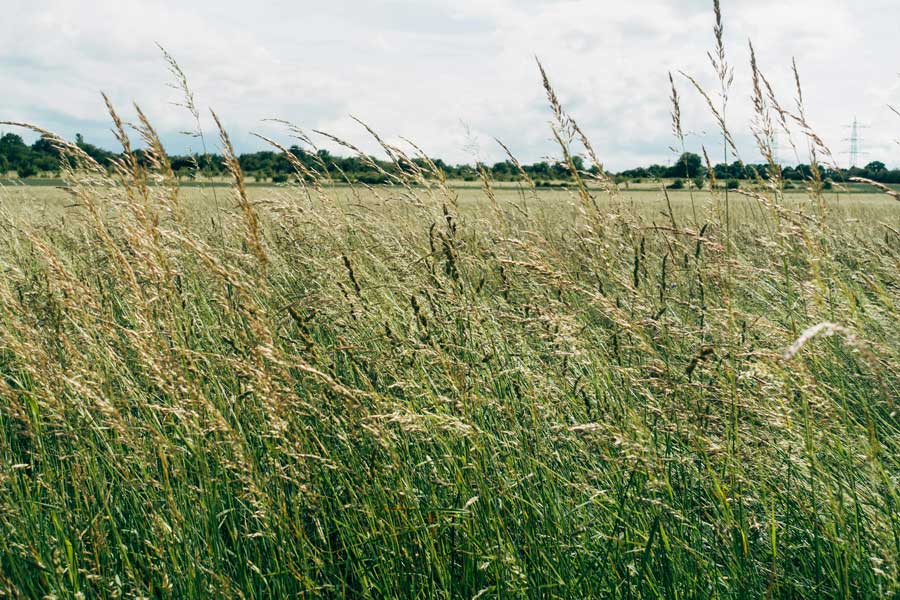

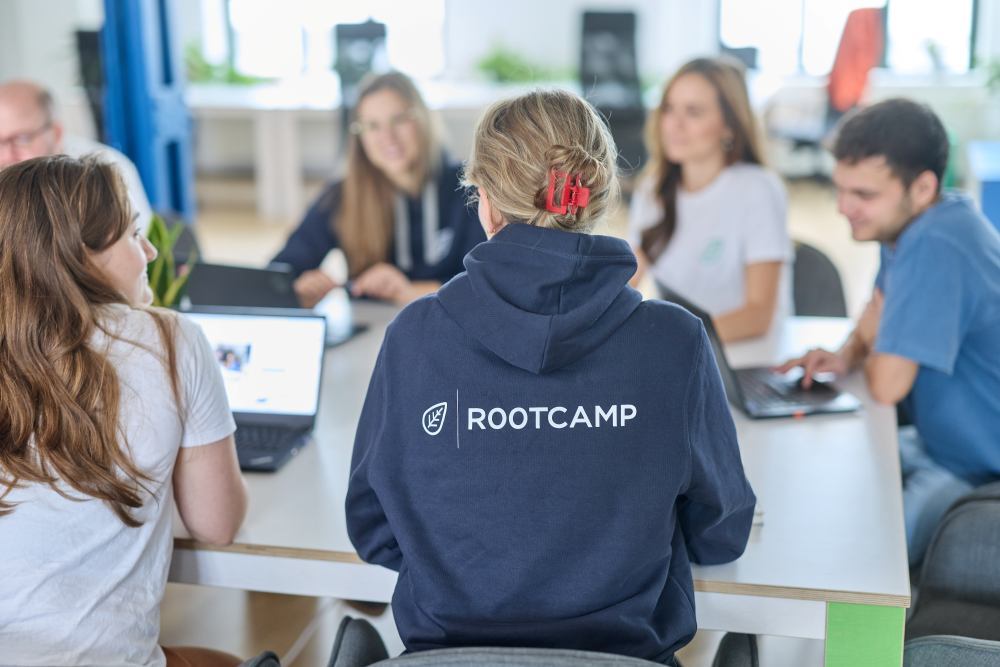

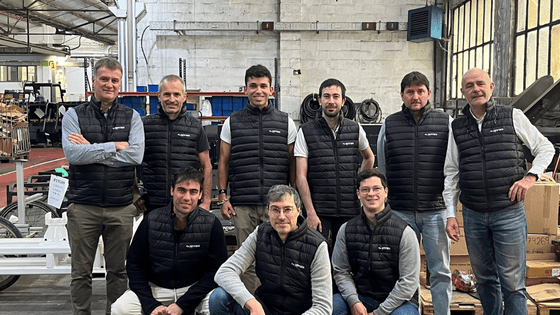
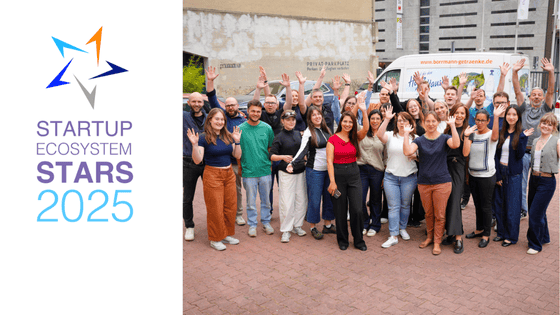
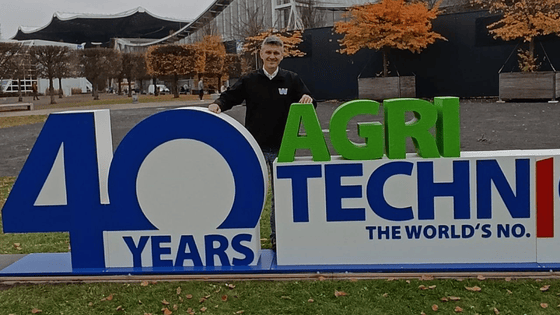
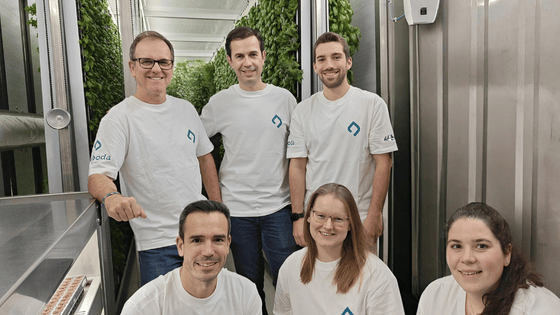
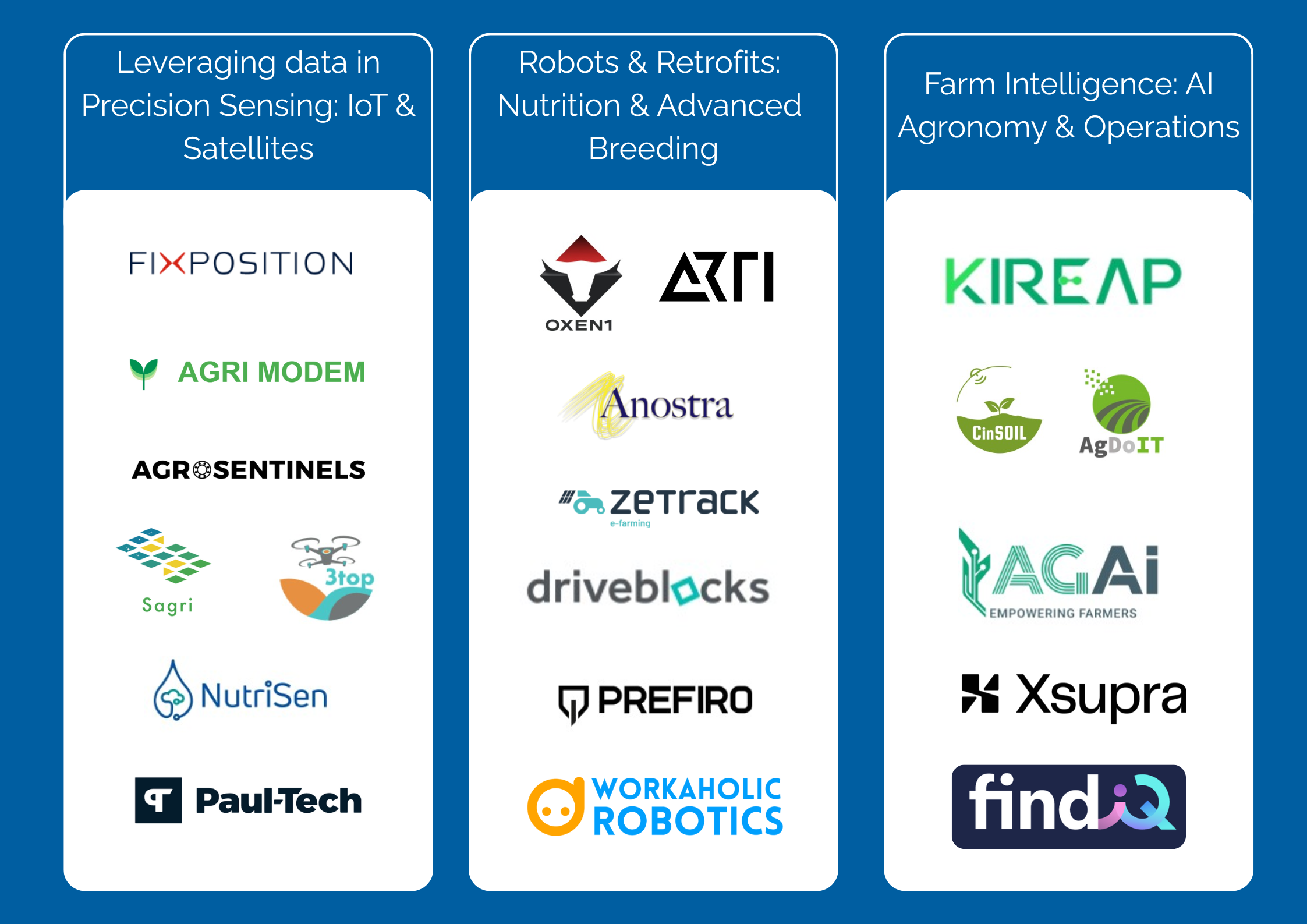
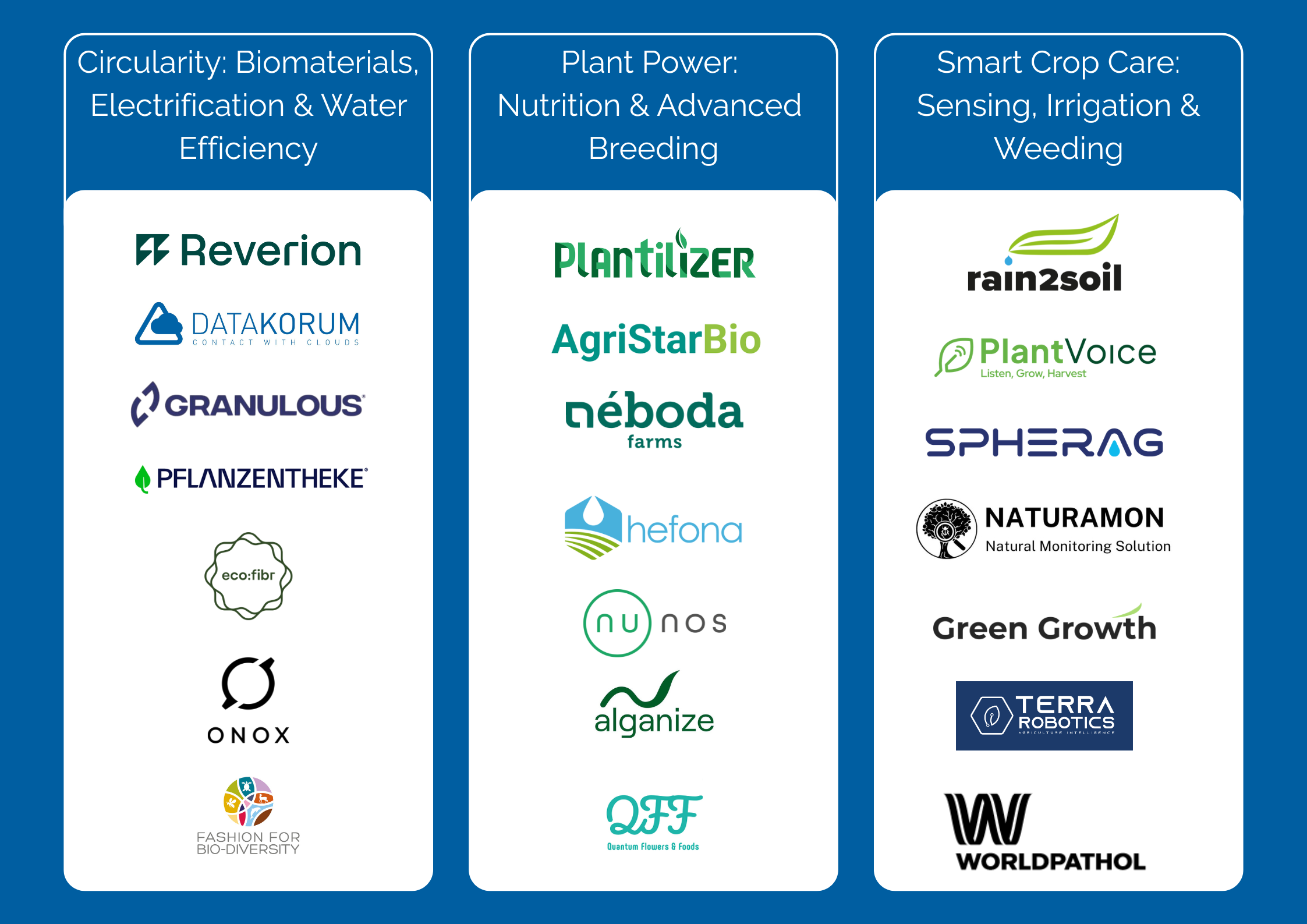
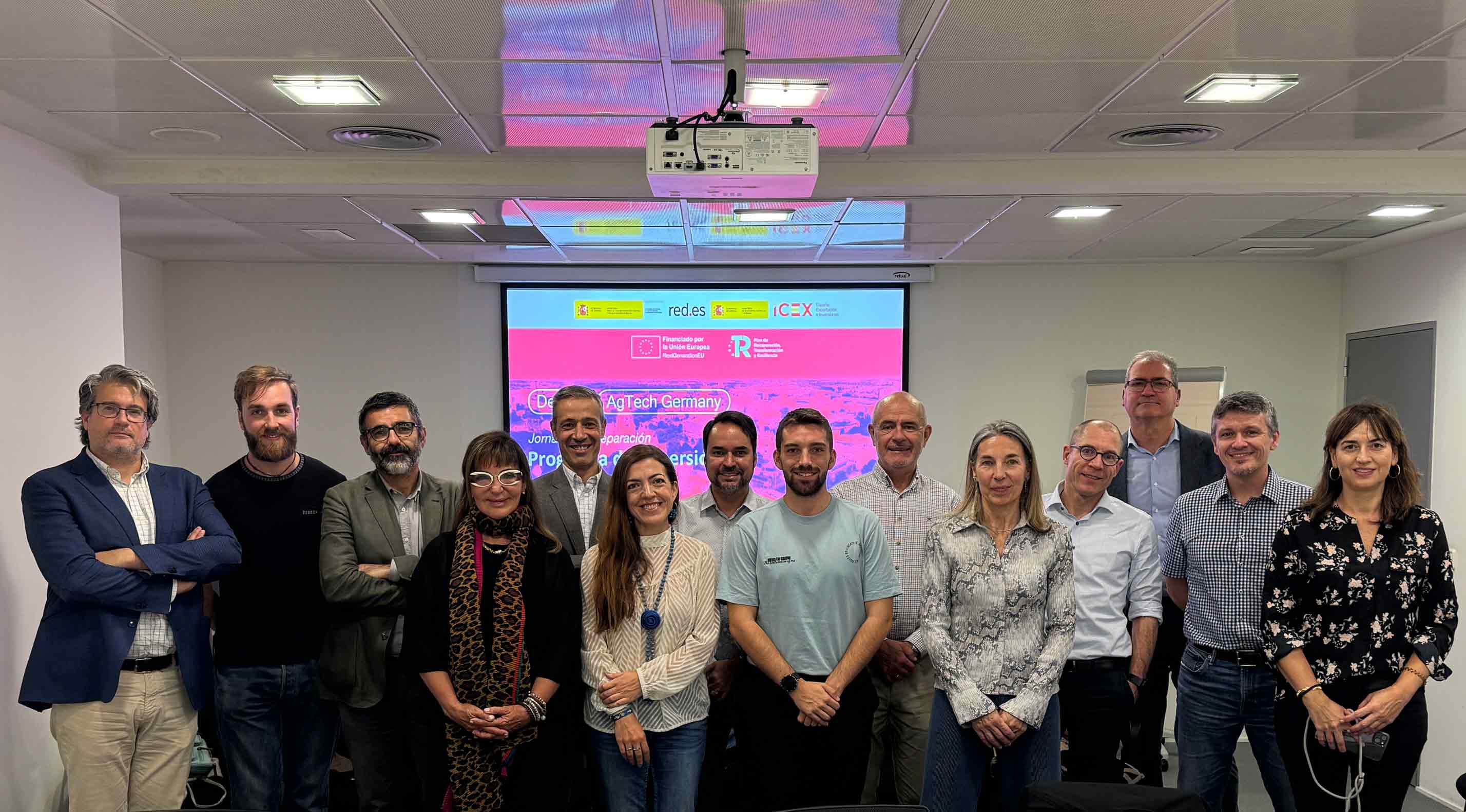
.jpg)
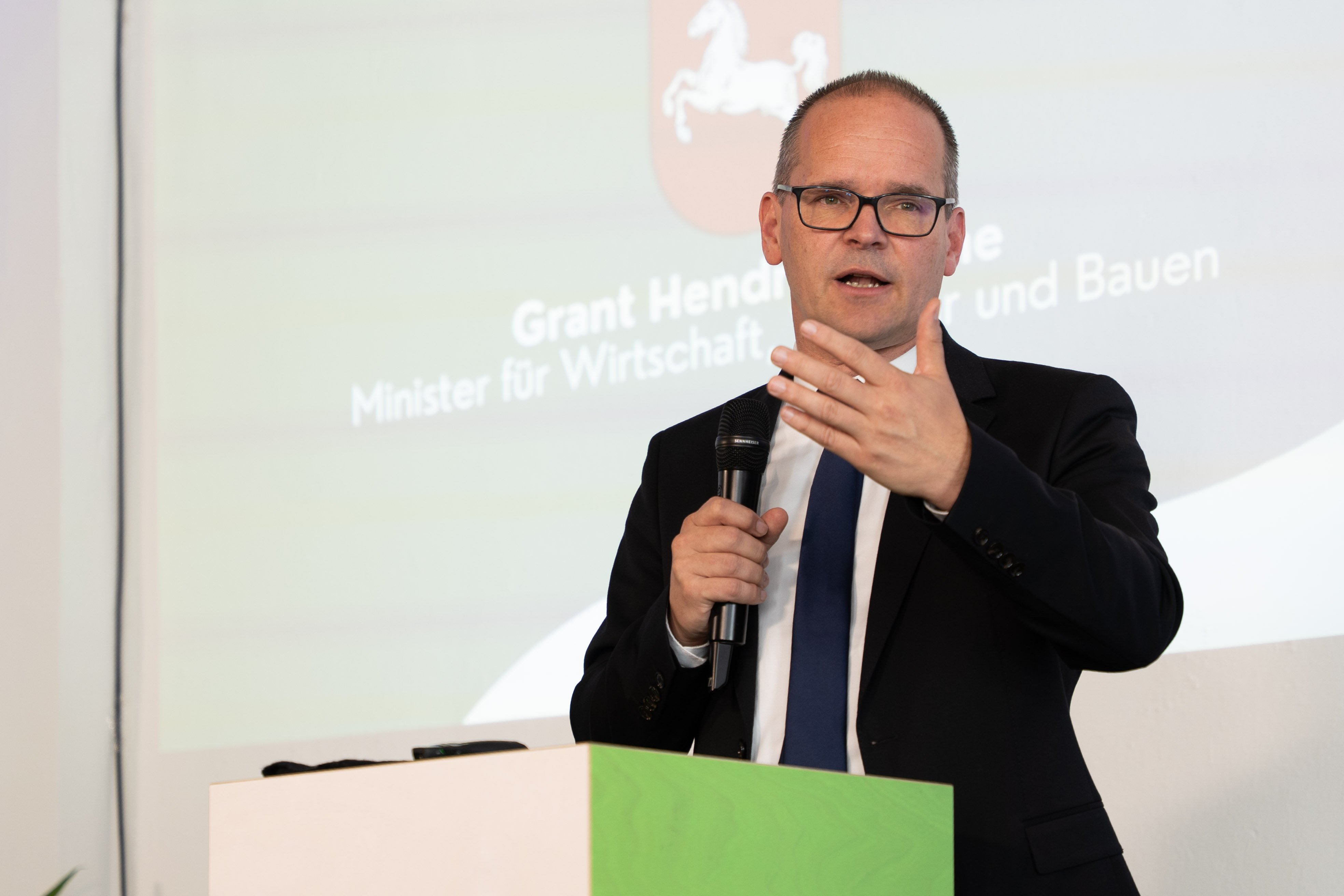
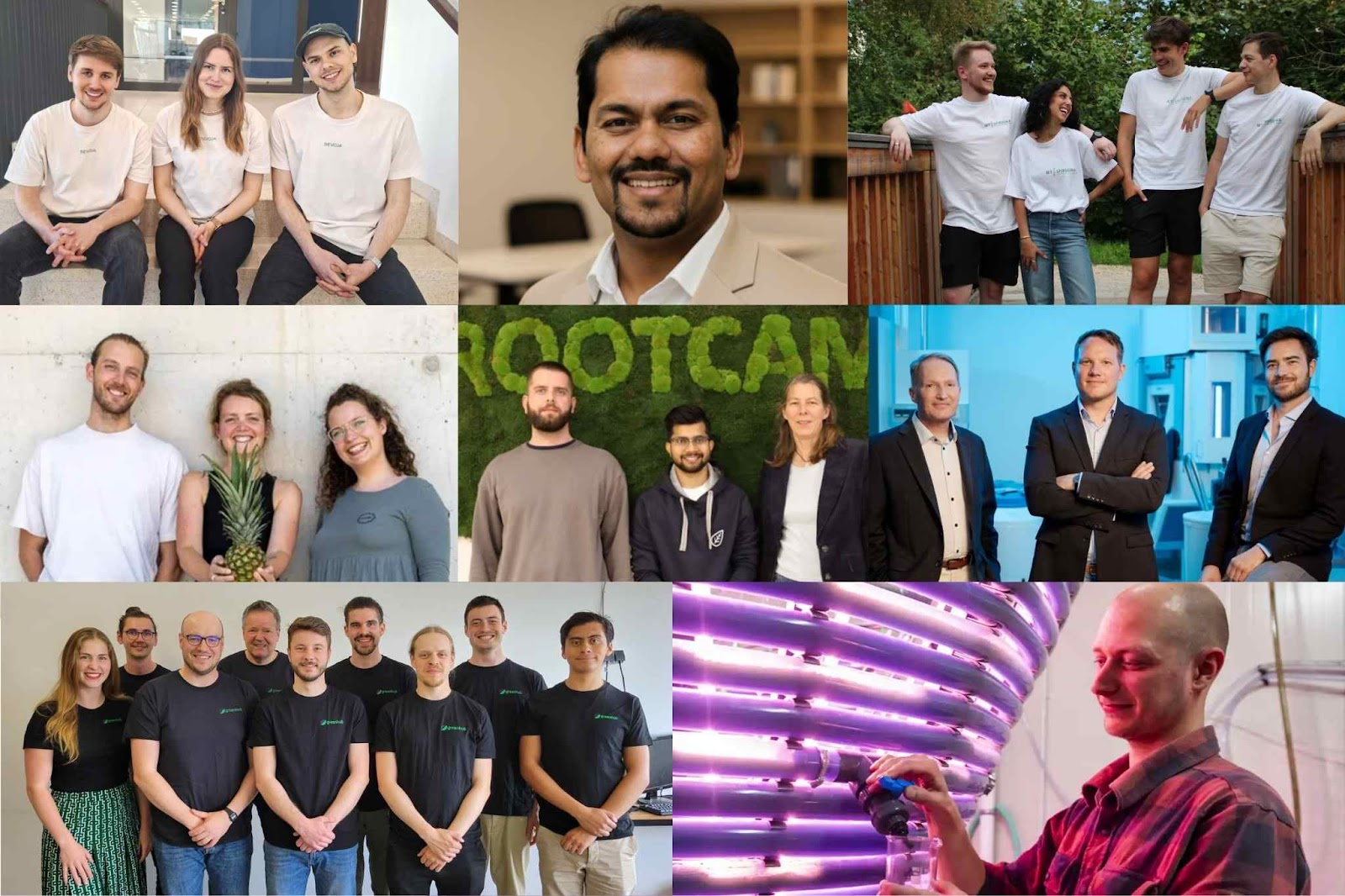
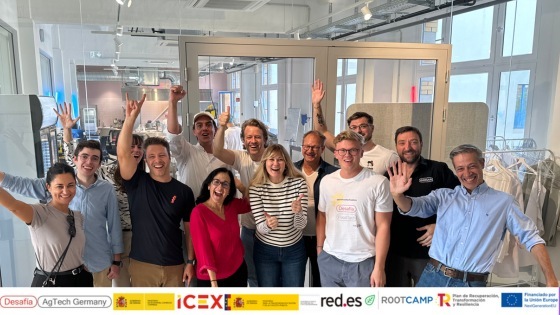
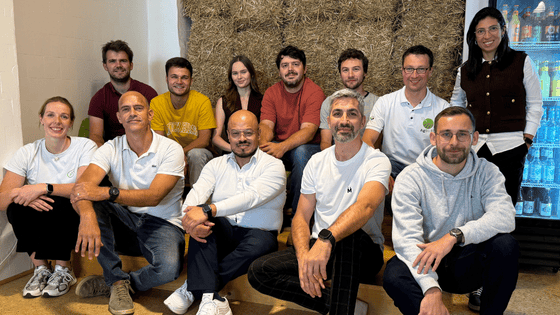
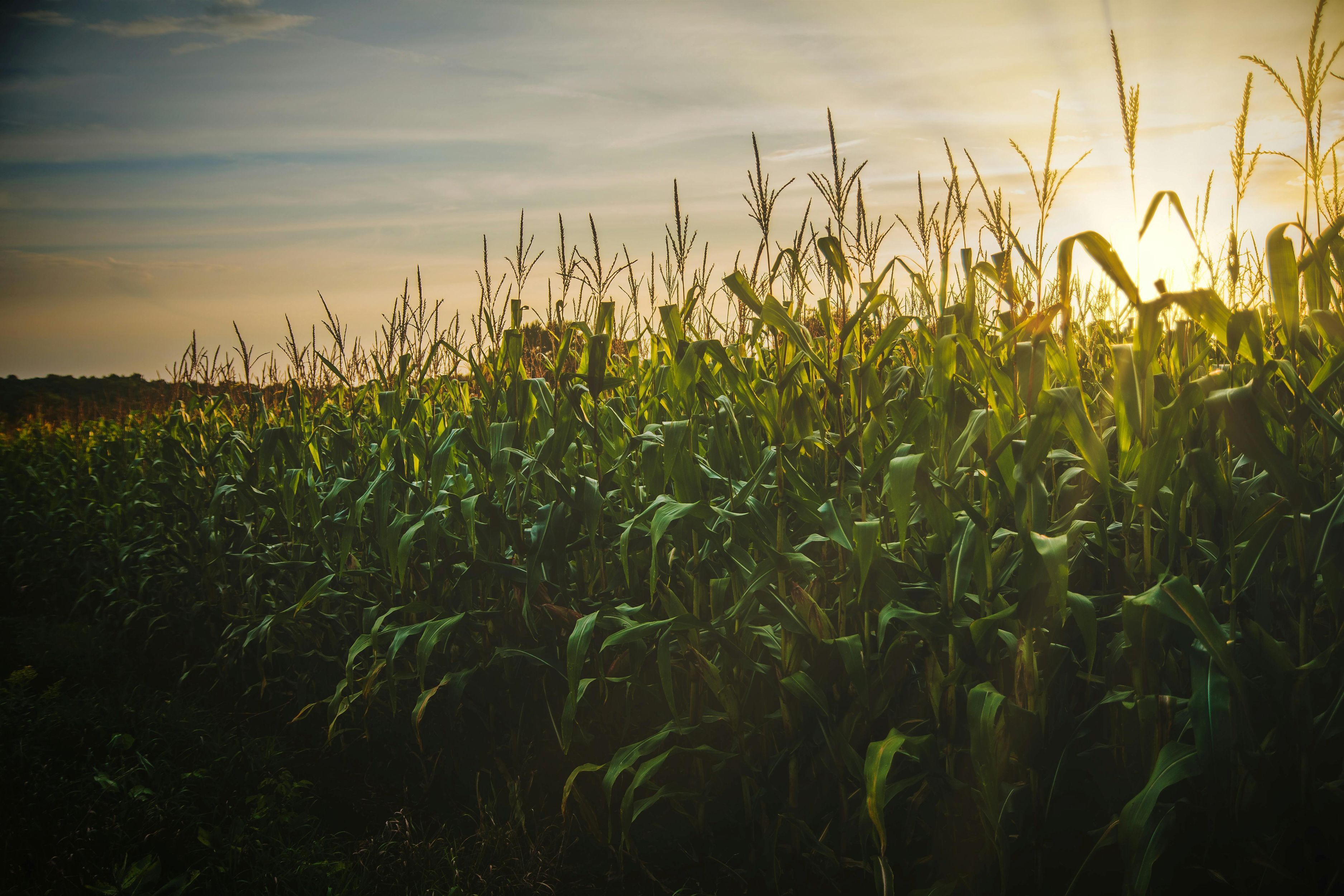
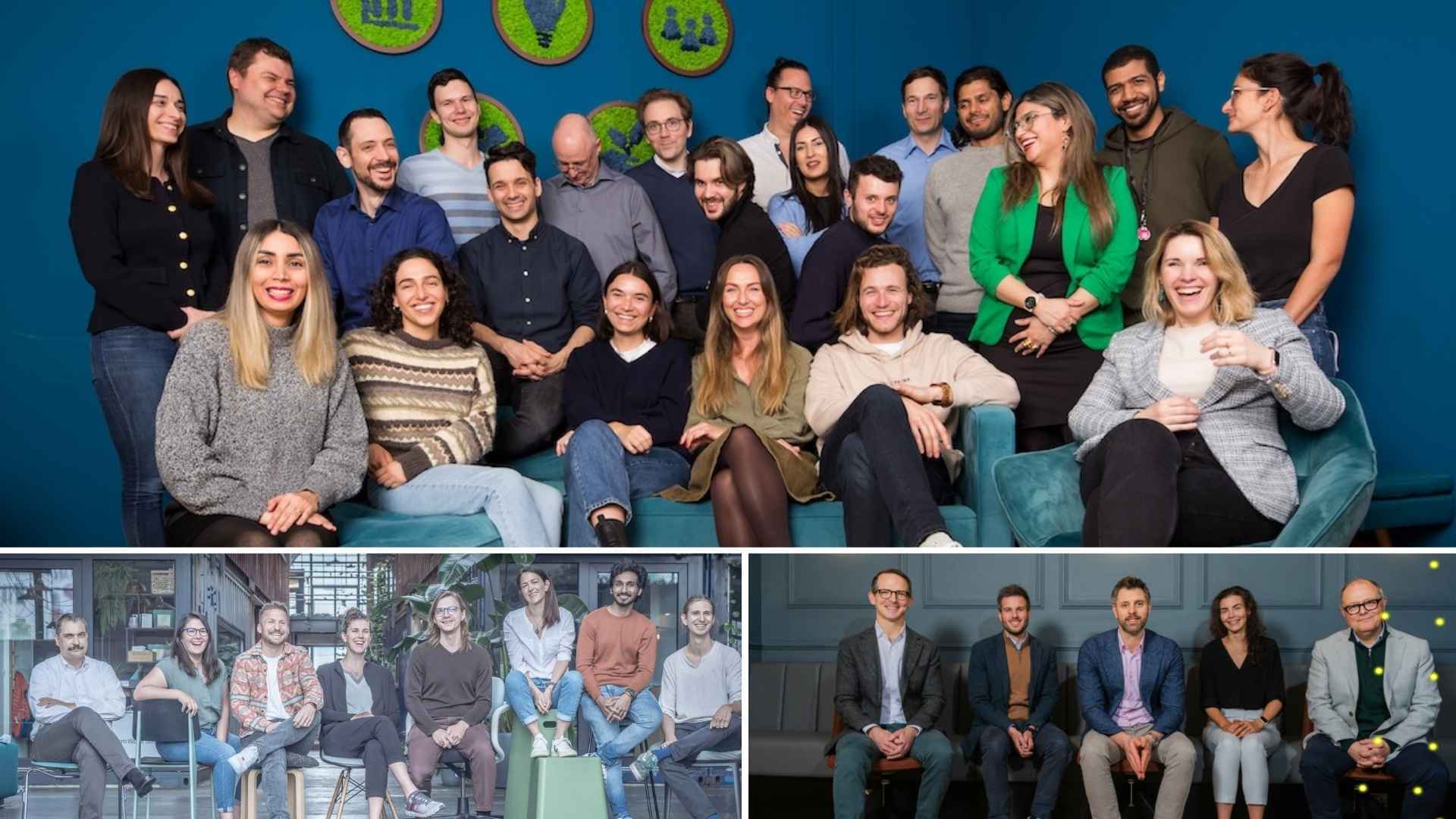

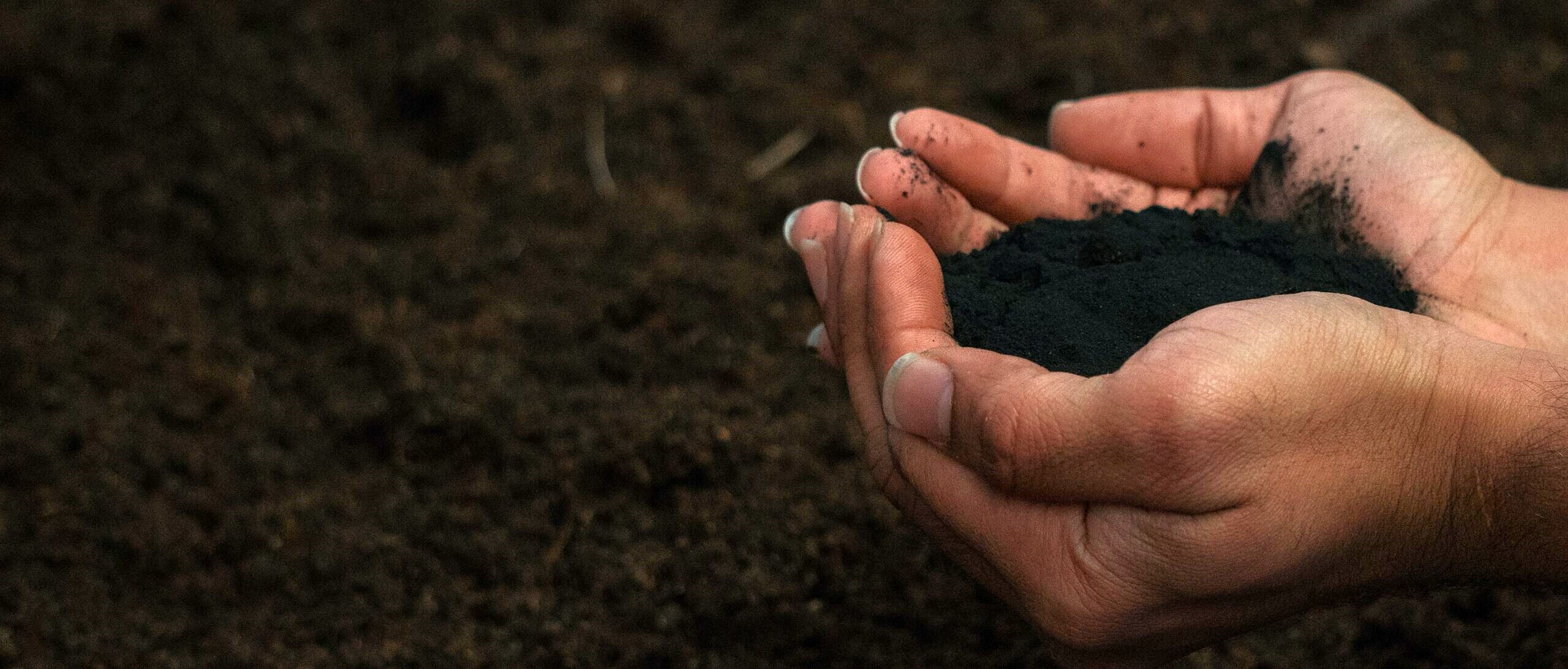
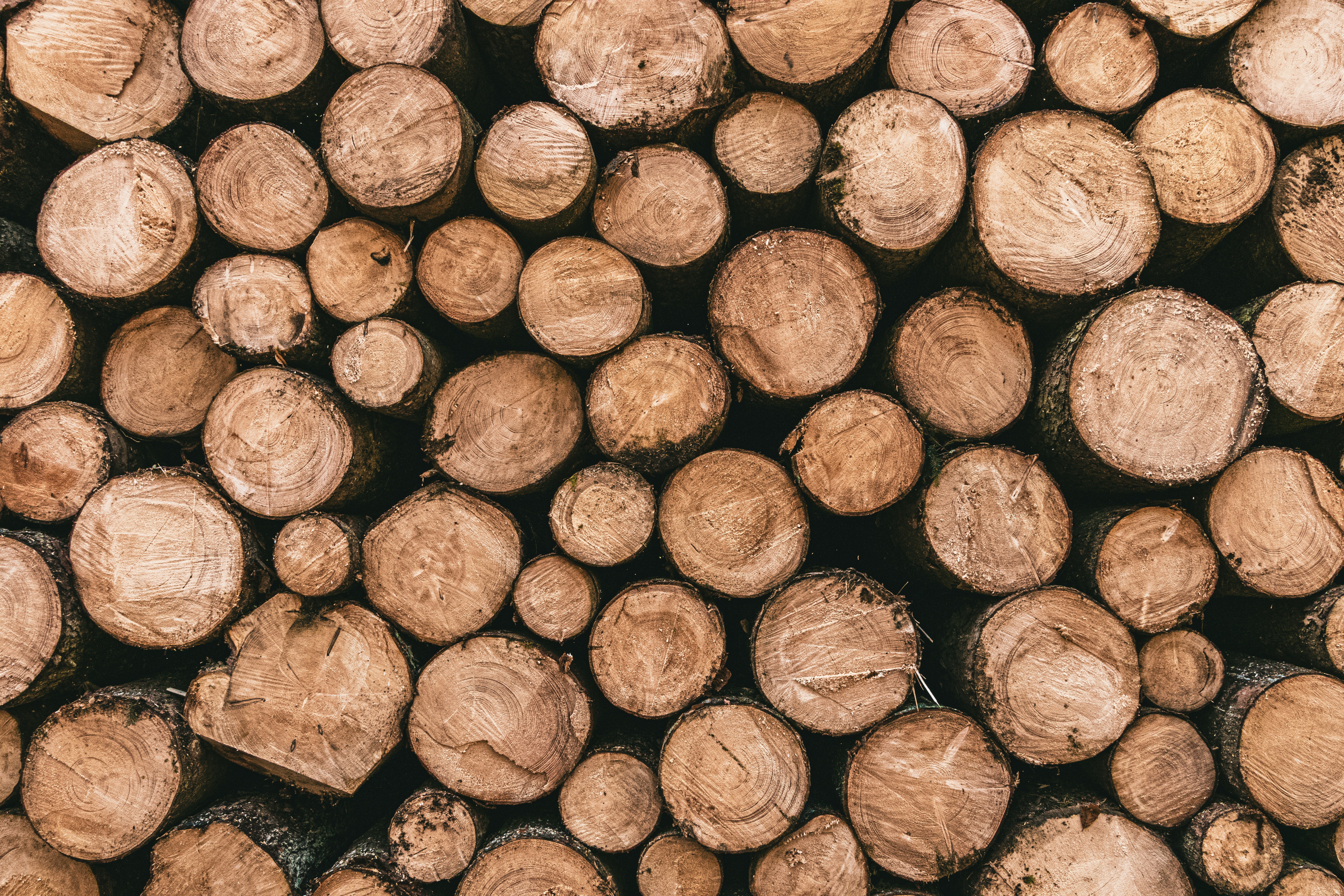
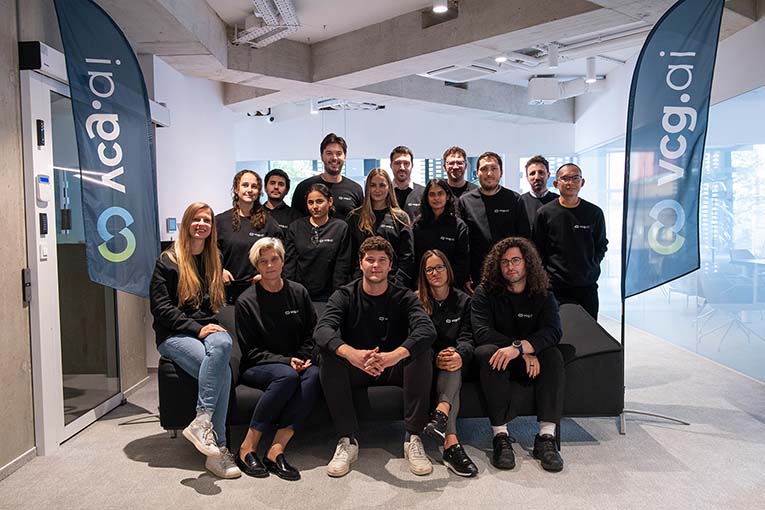
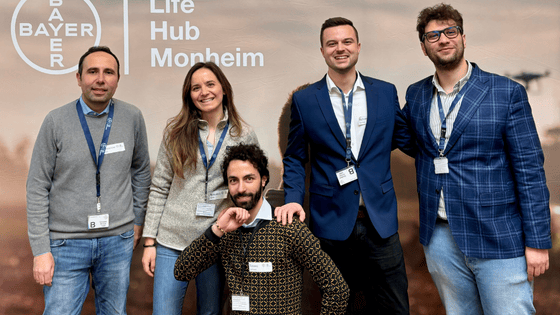

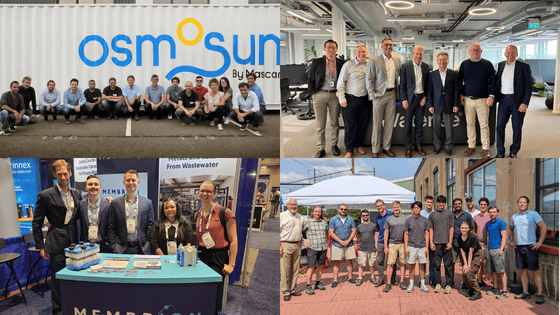
.png)
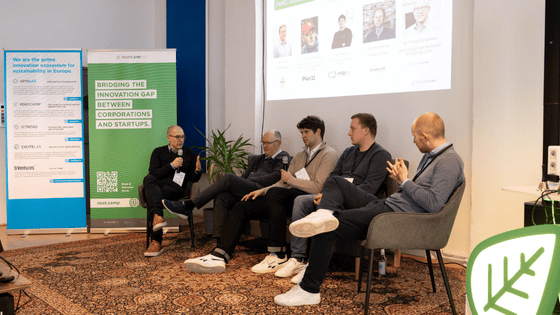
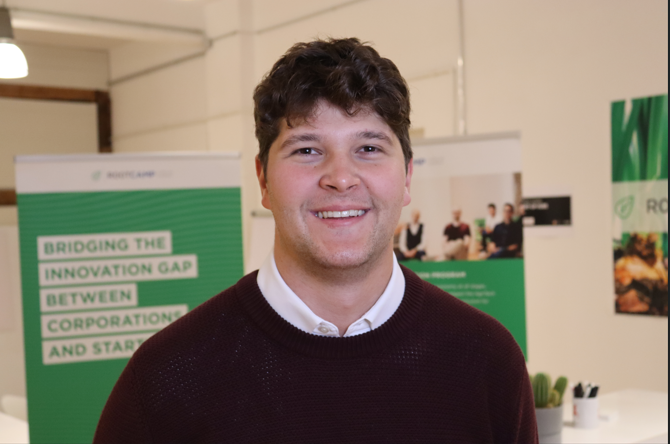
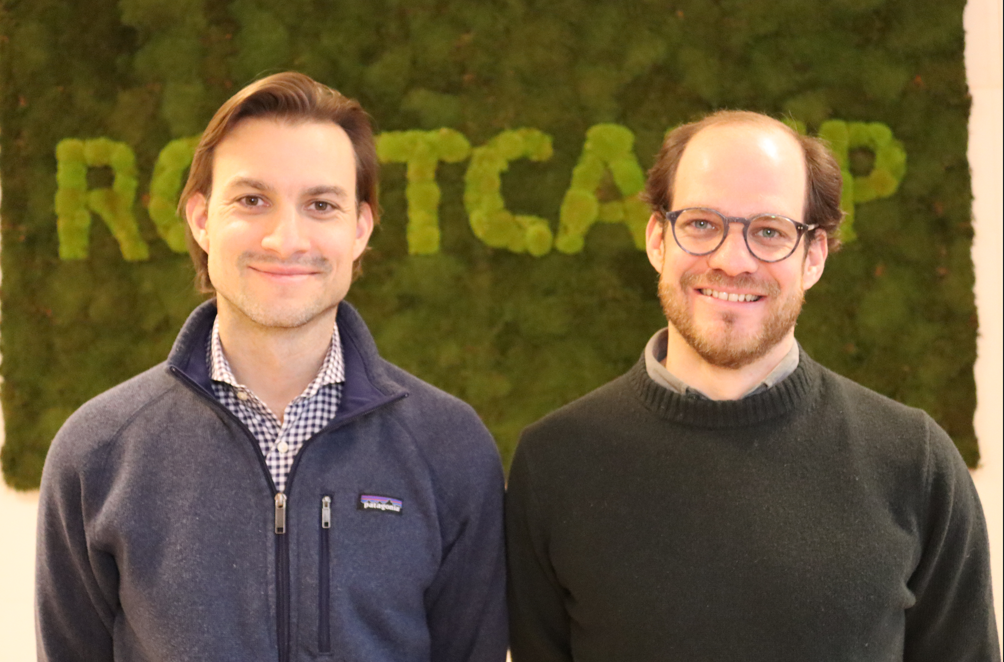
.jpg)
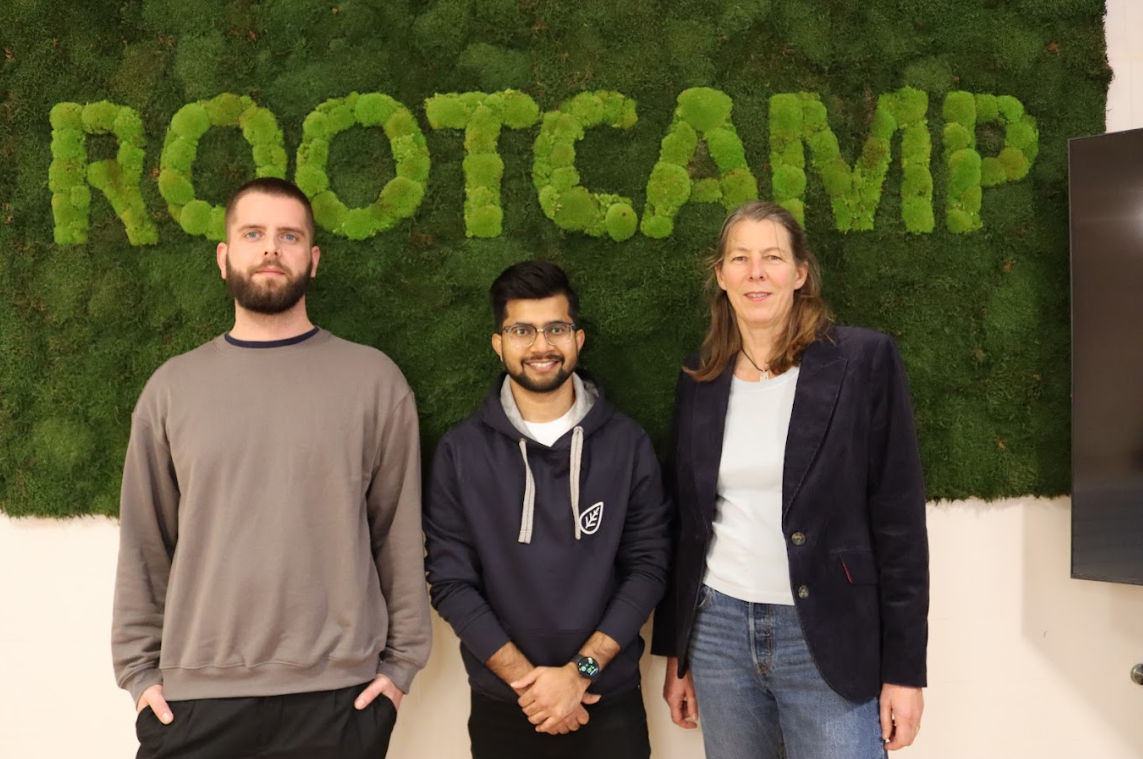
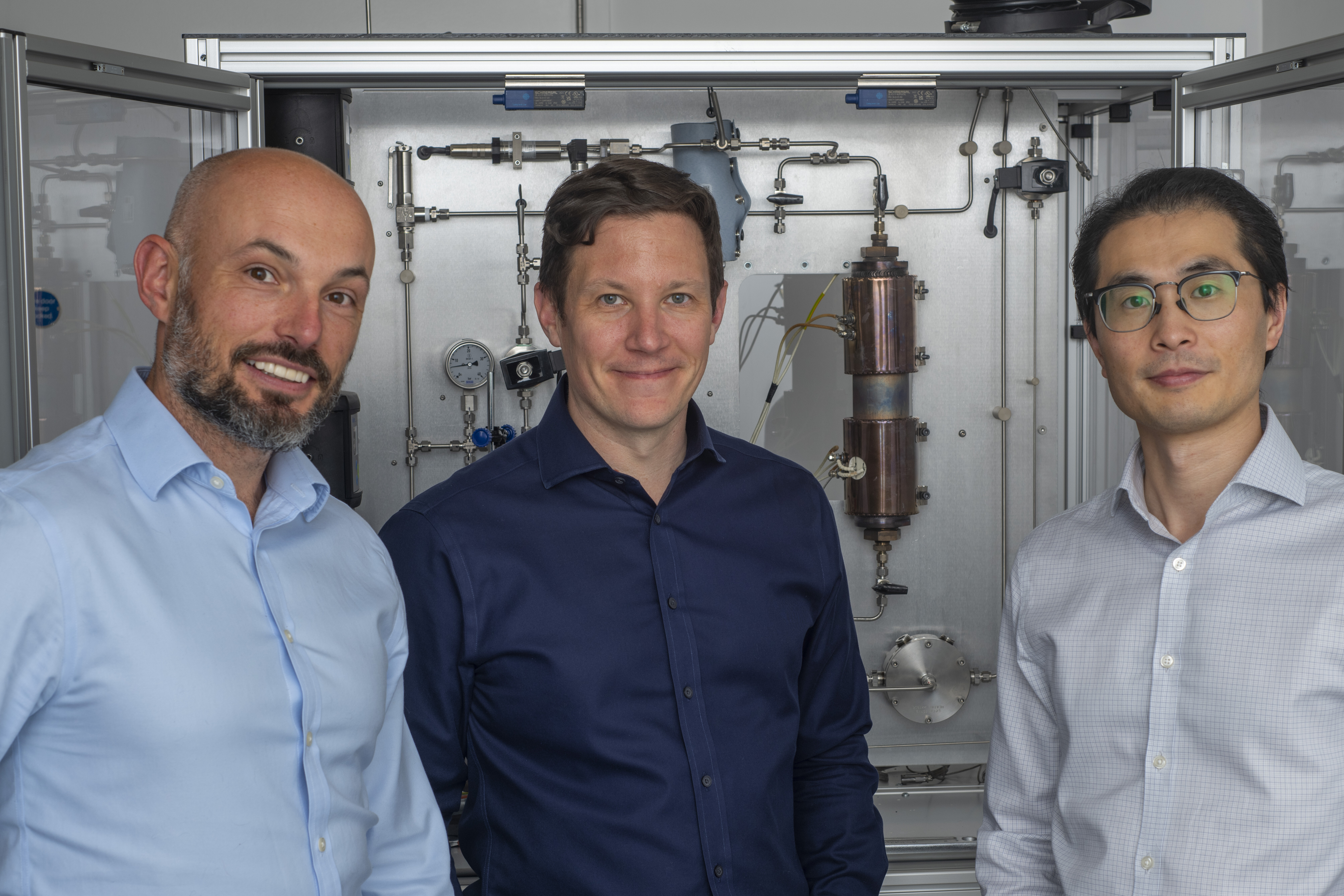
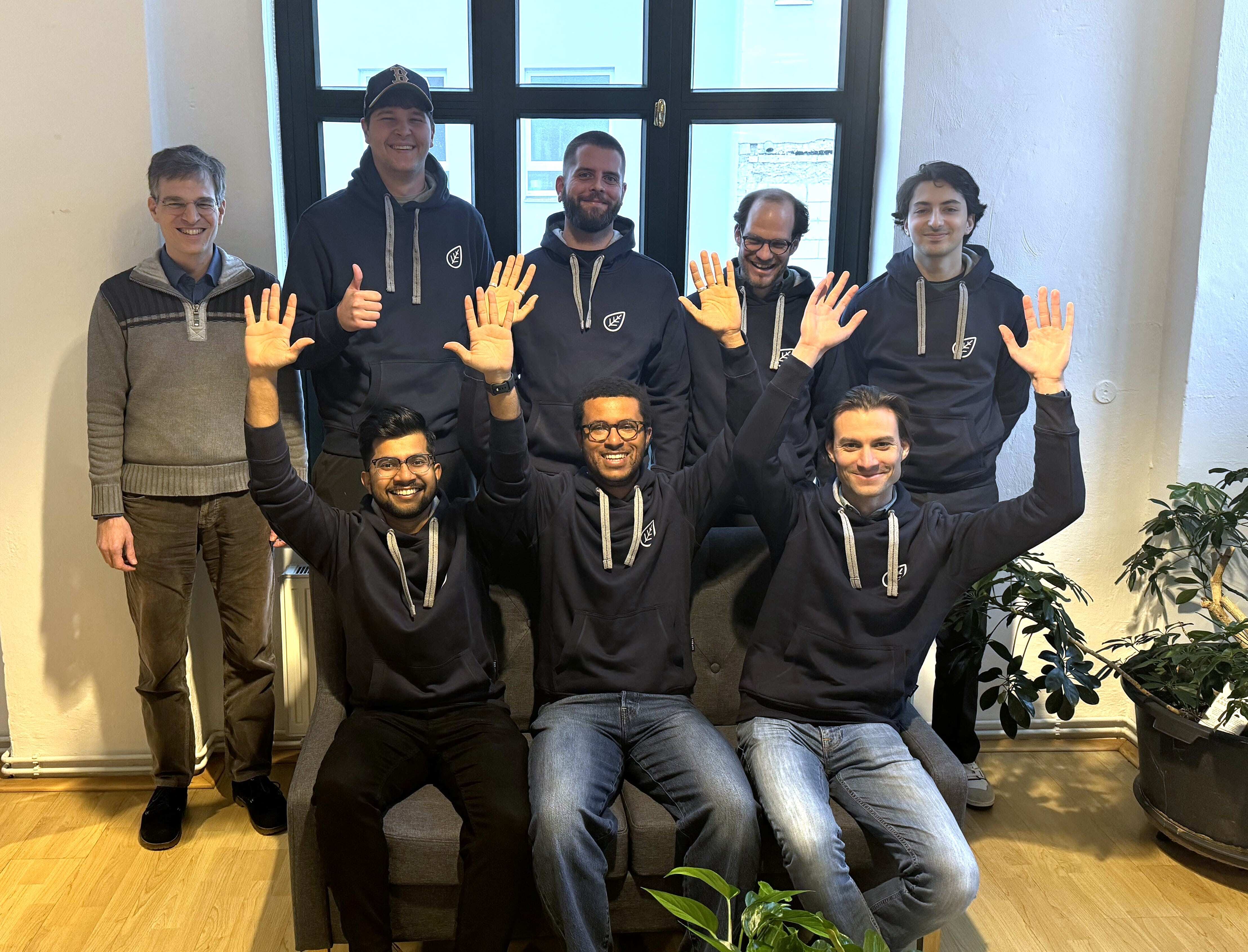
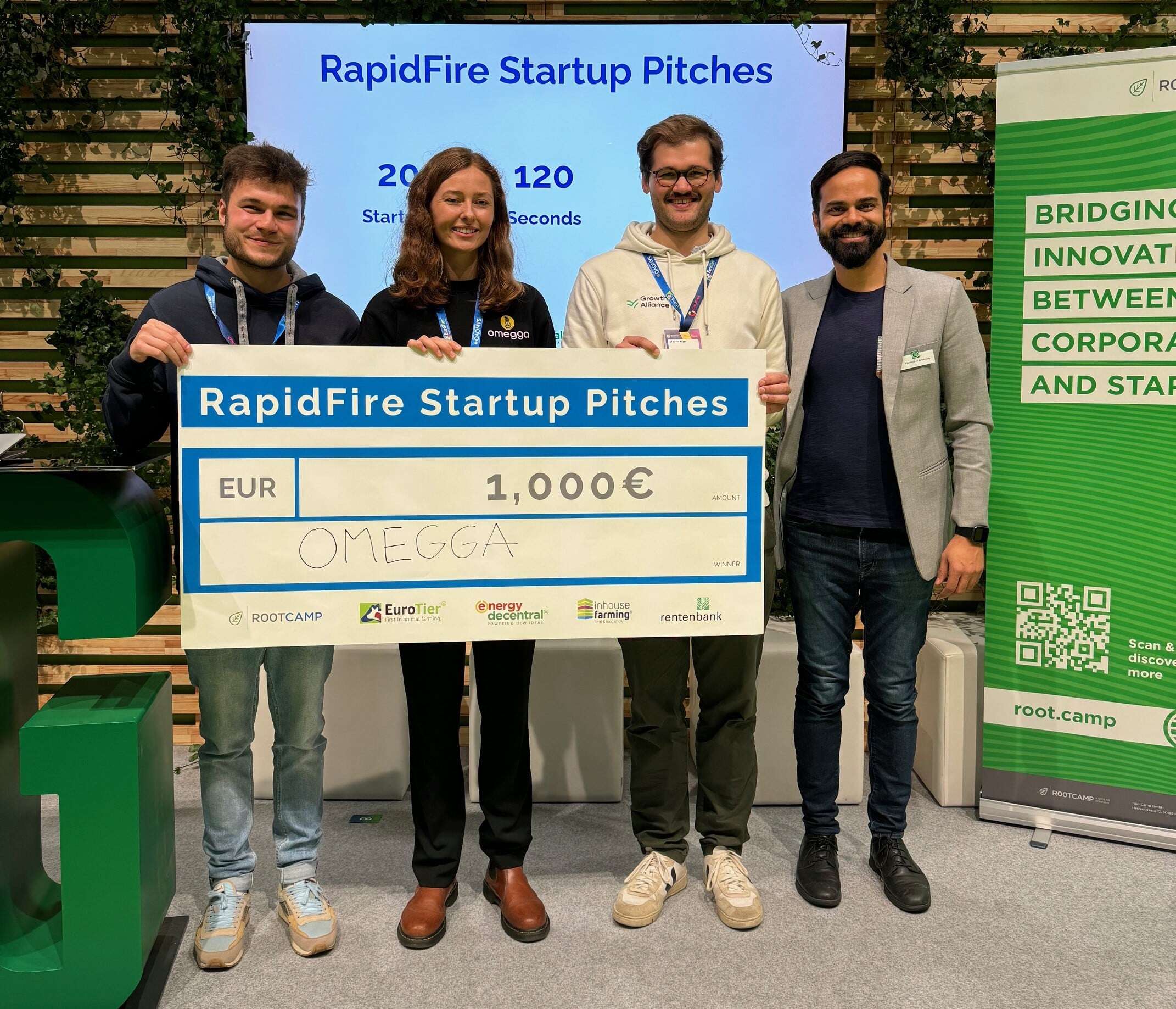
%20(3).png)
.jpg)
%20(1)%20(1).jpg)
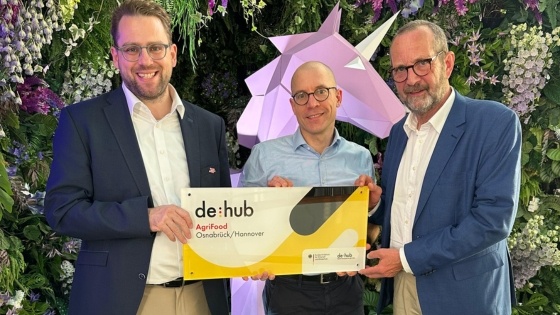
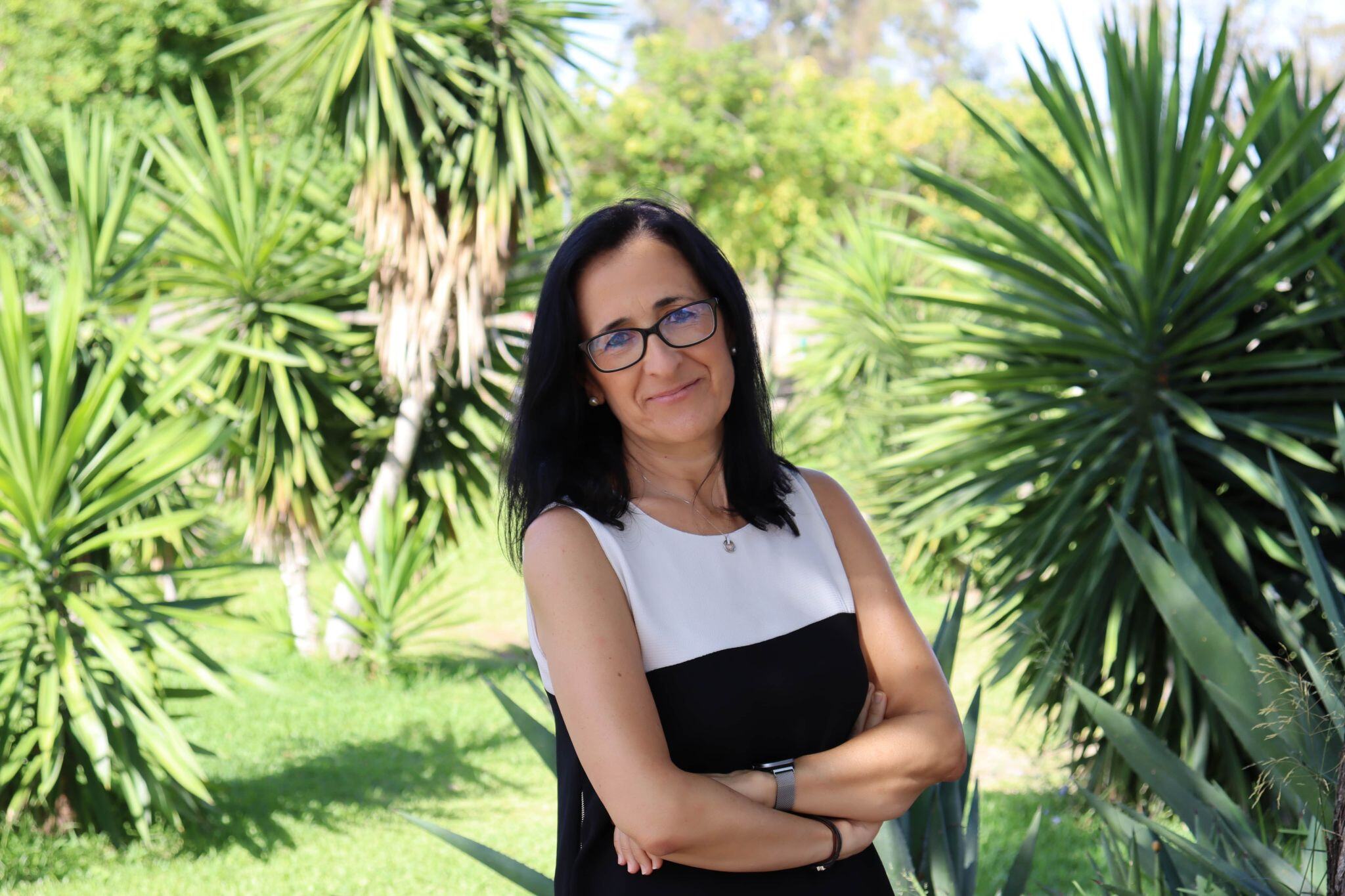

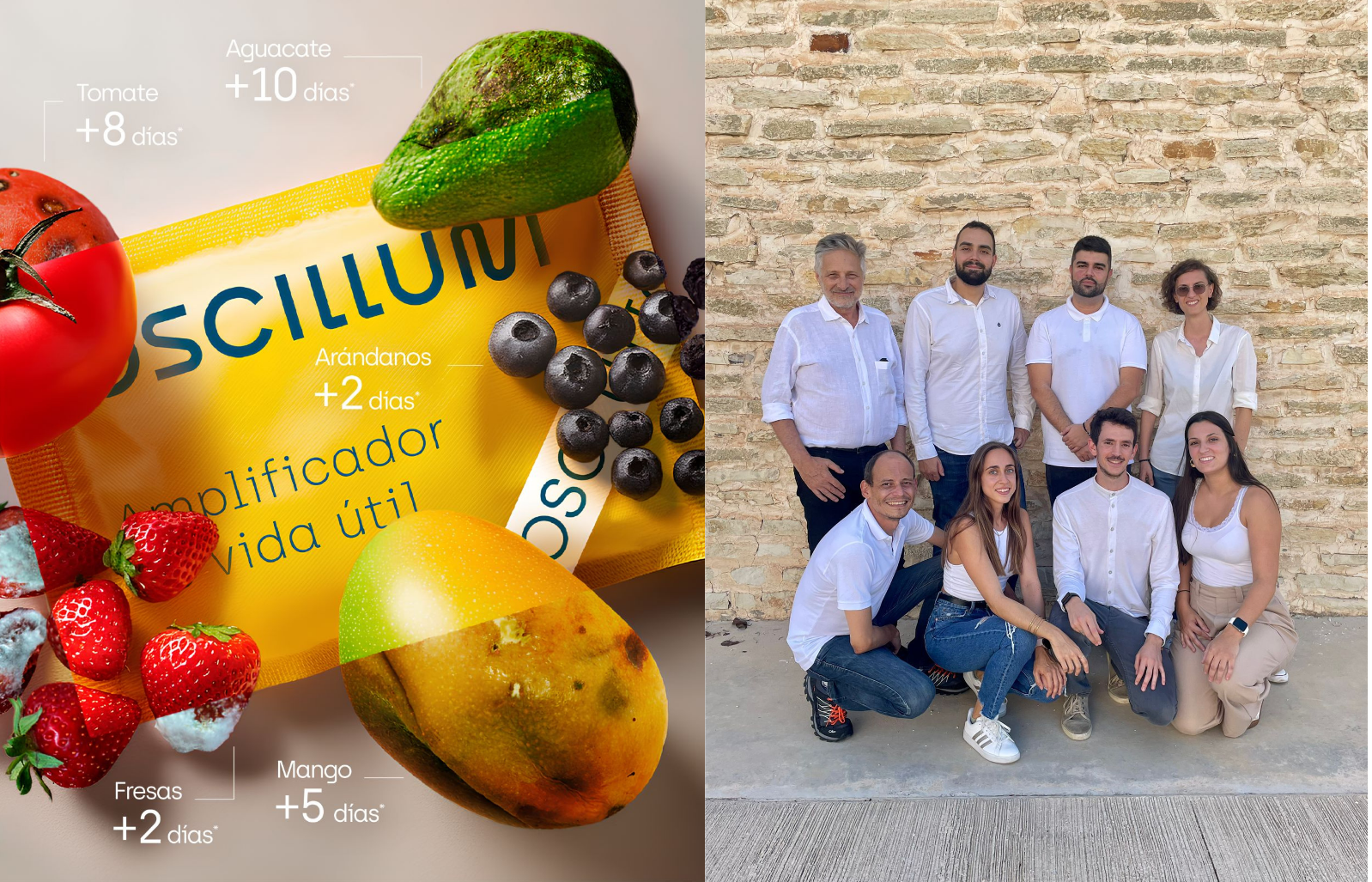

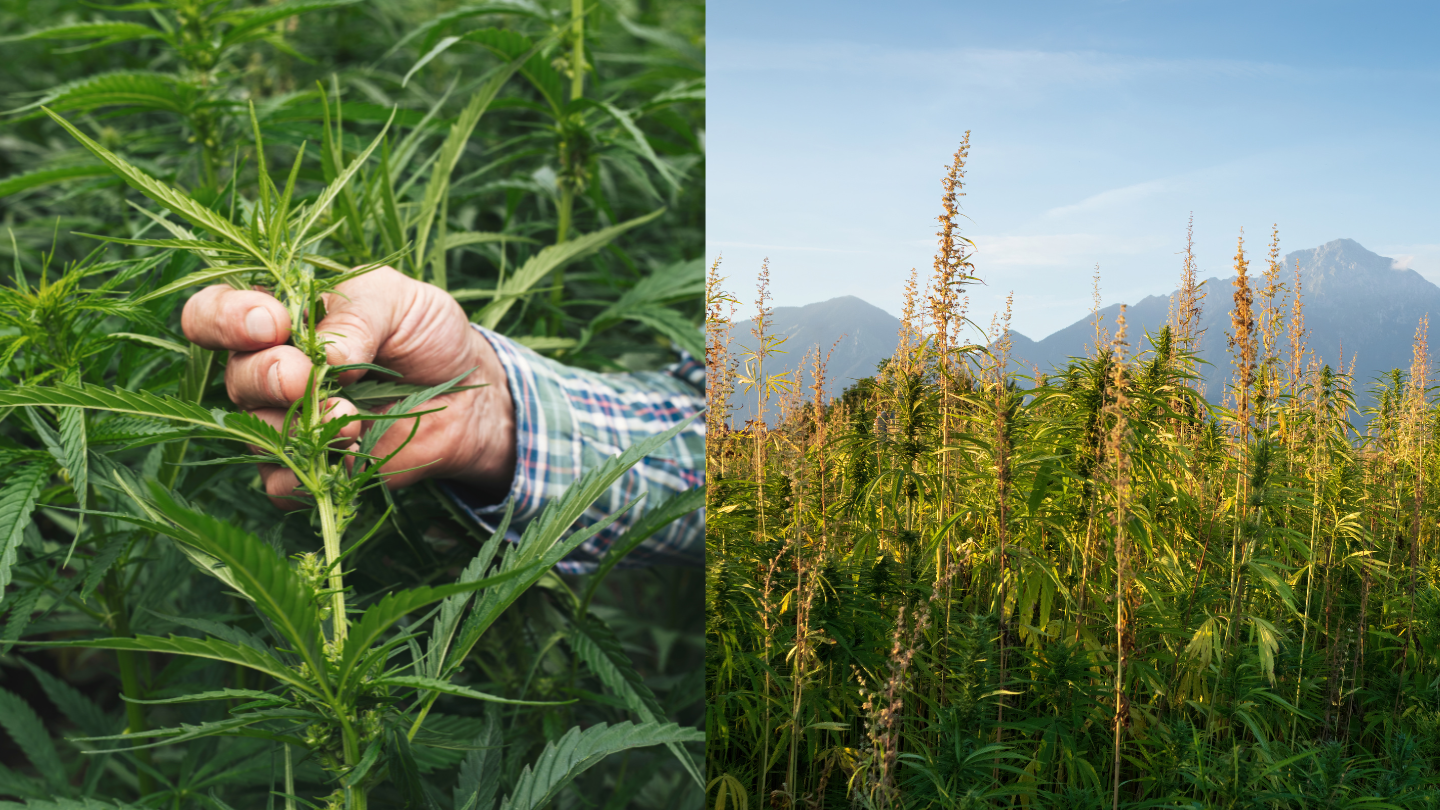
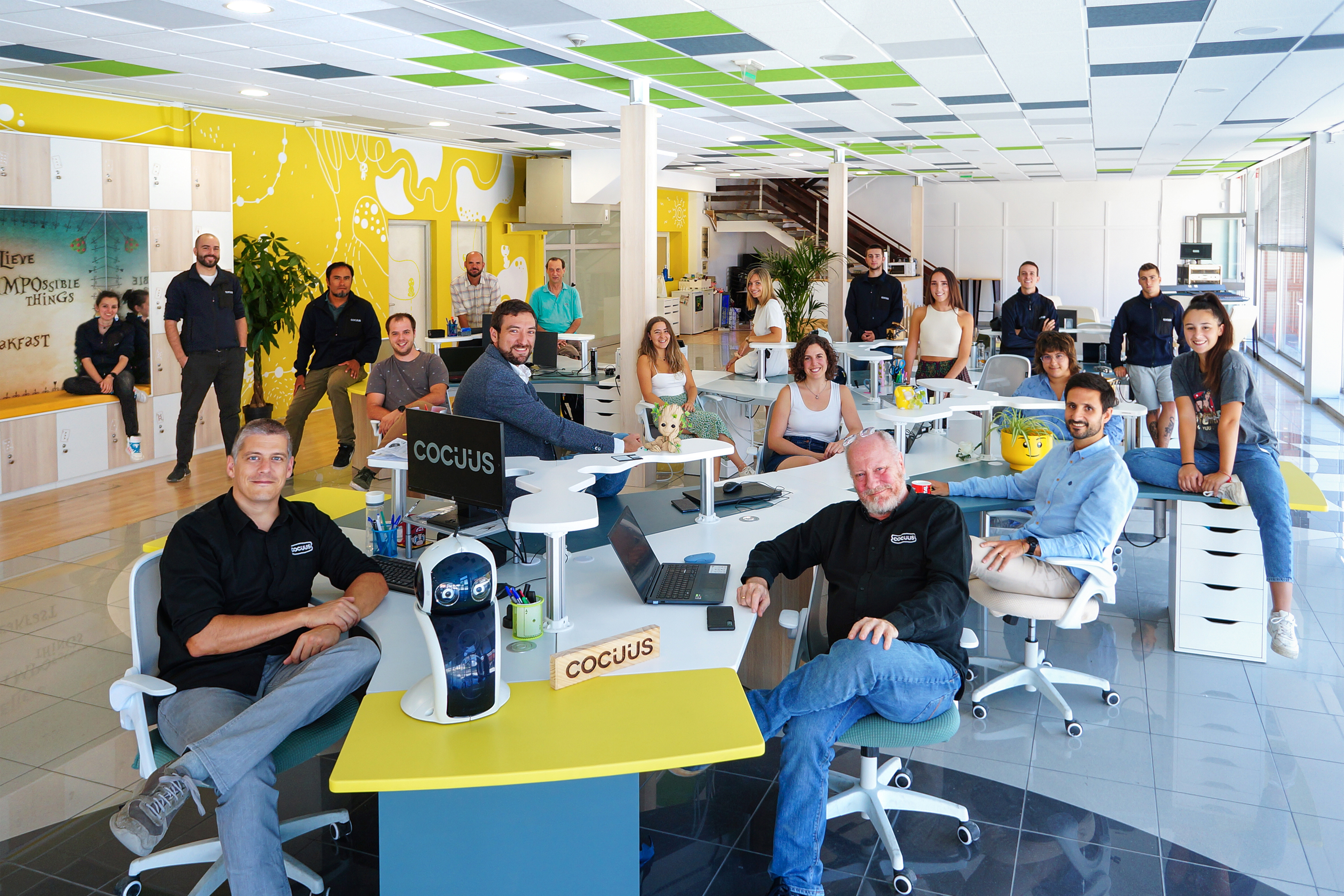

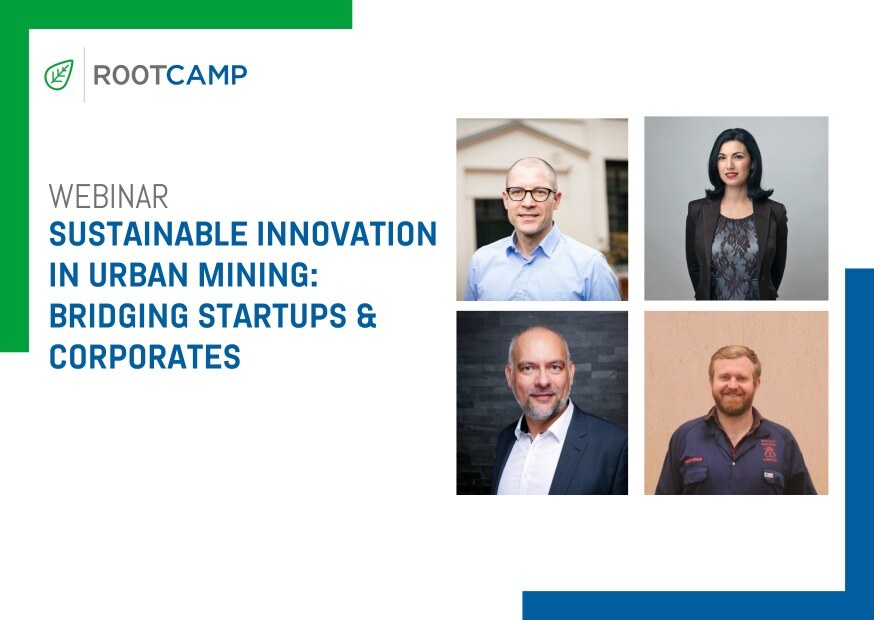
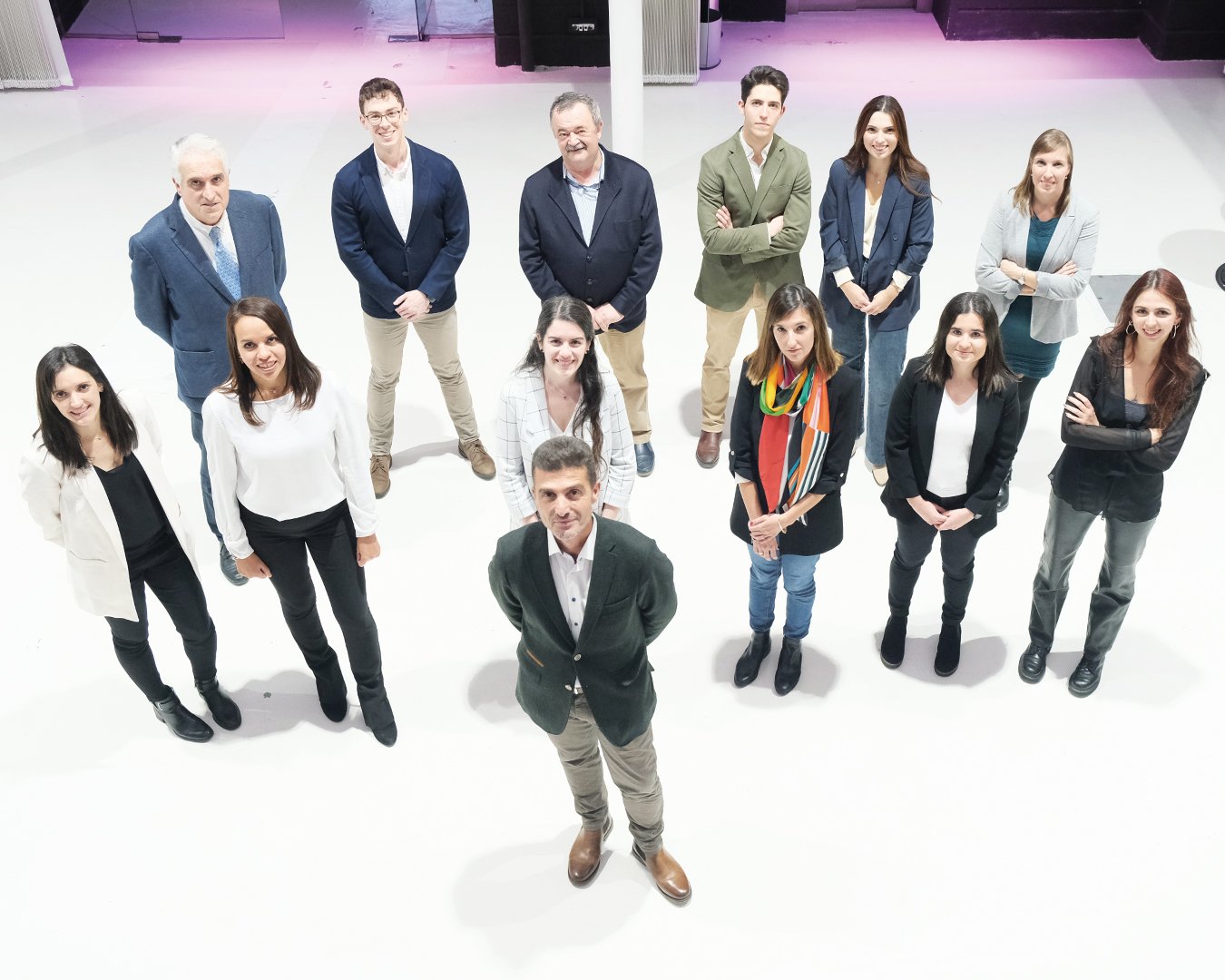
.jpg)
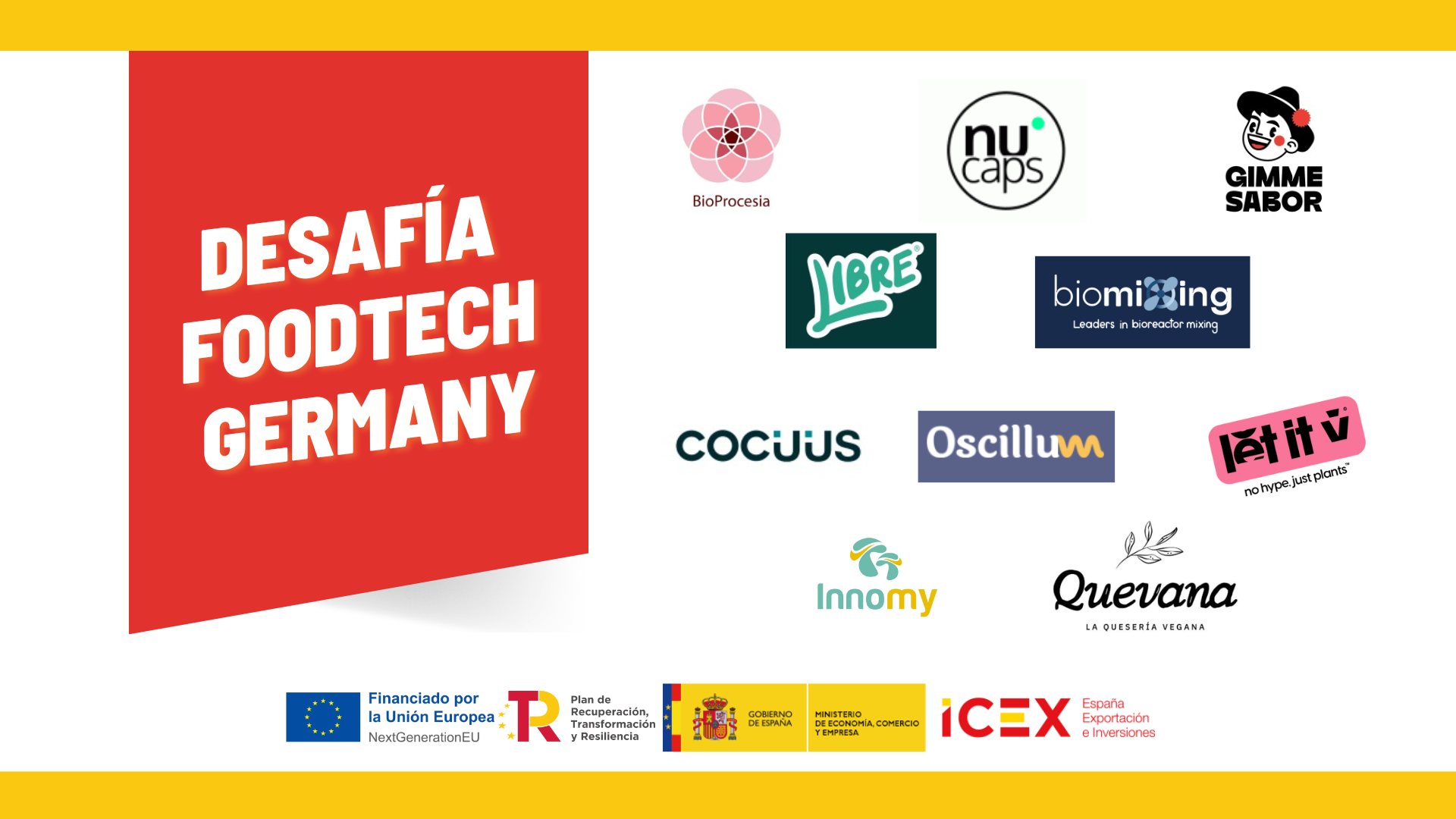

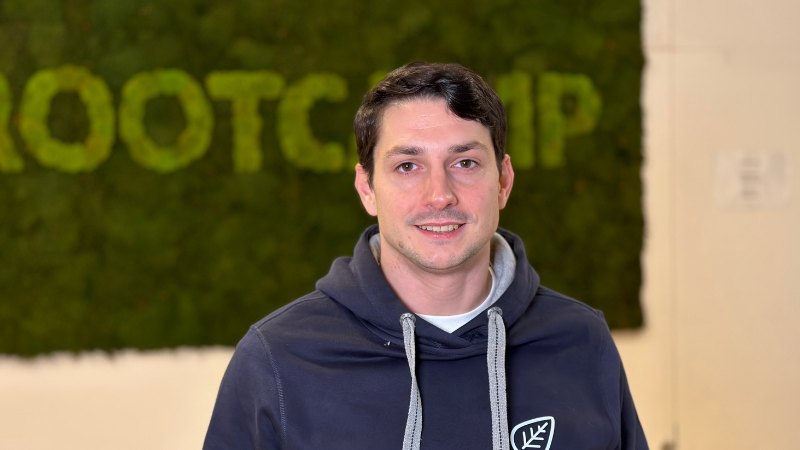
.jpg)
.jpg)
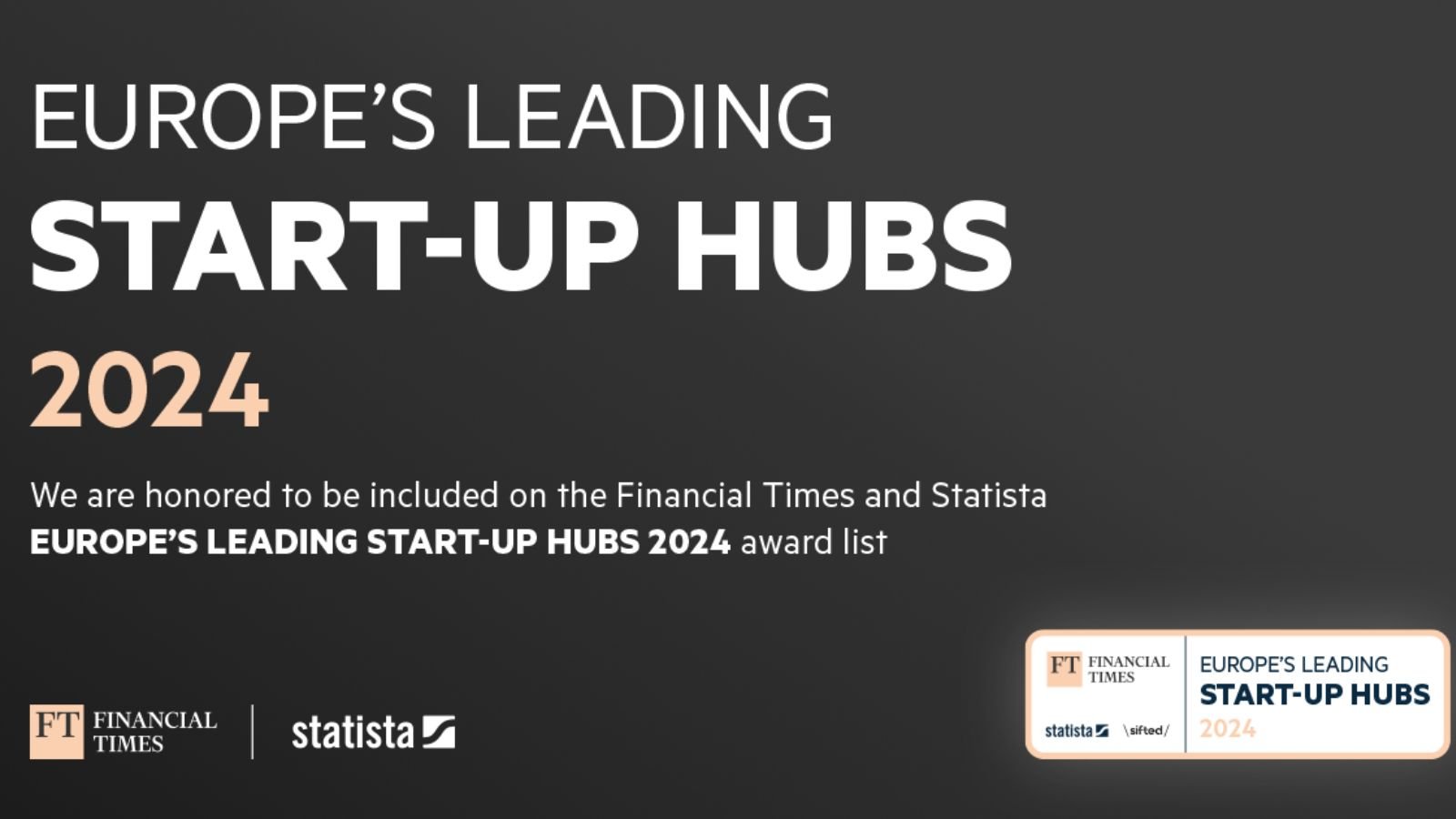
.jpg)
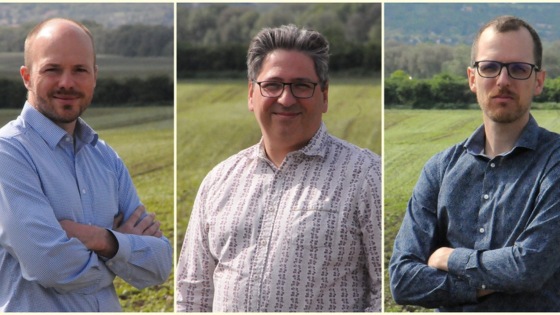
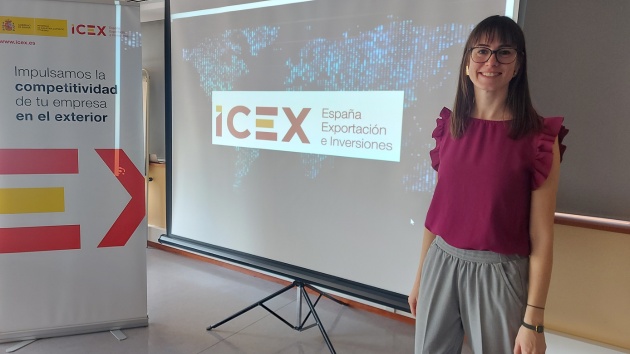
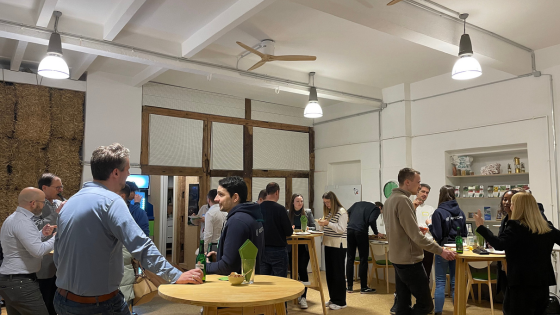
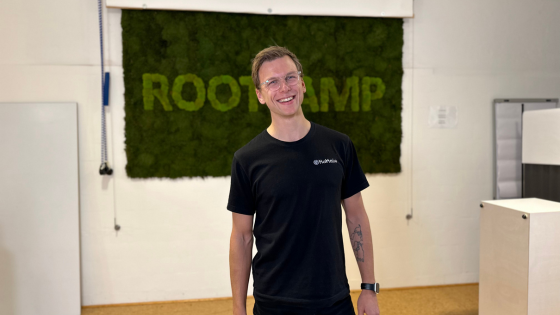
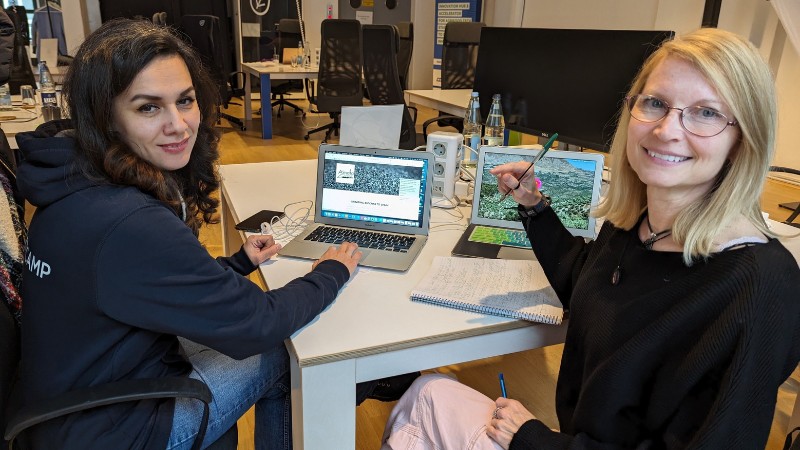
.jpg)
.jpg)
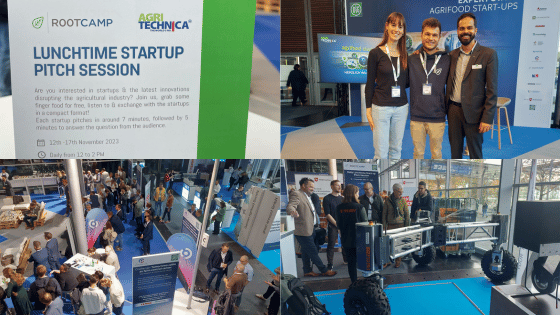
.png)
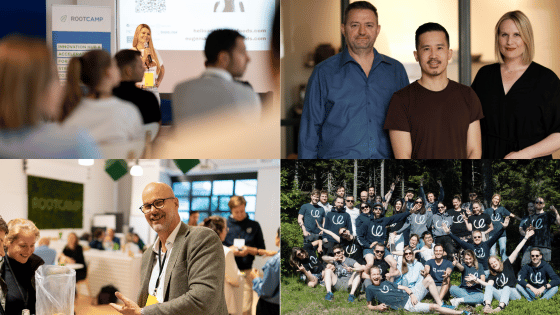
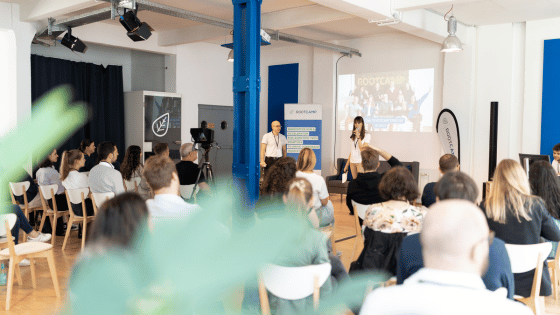
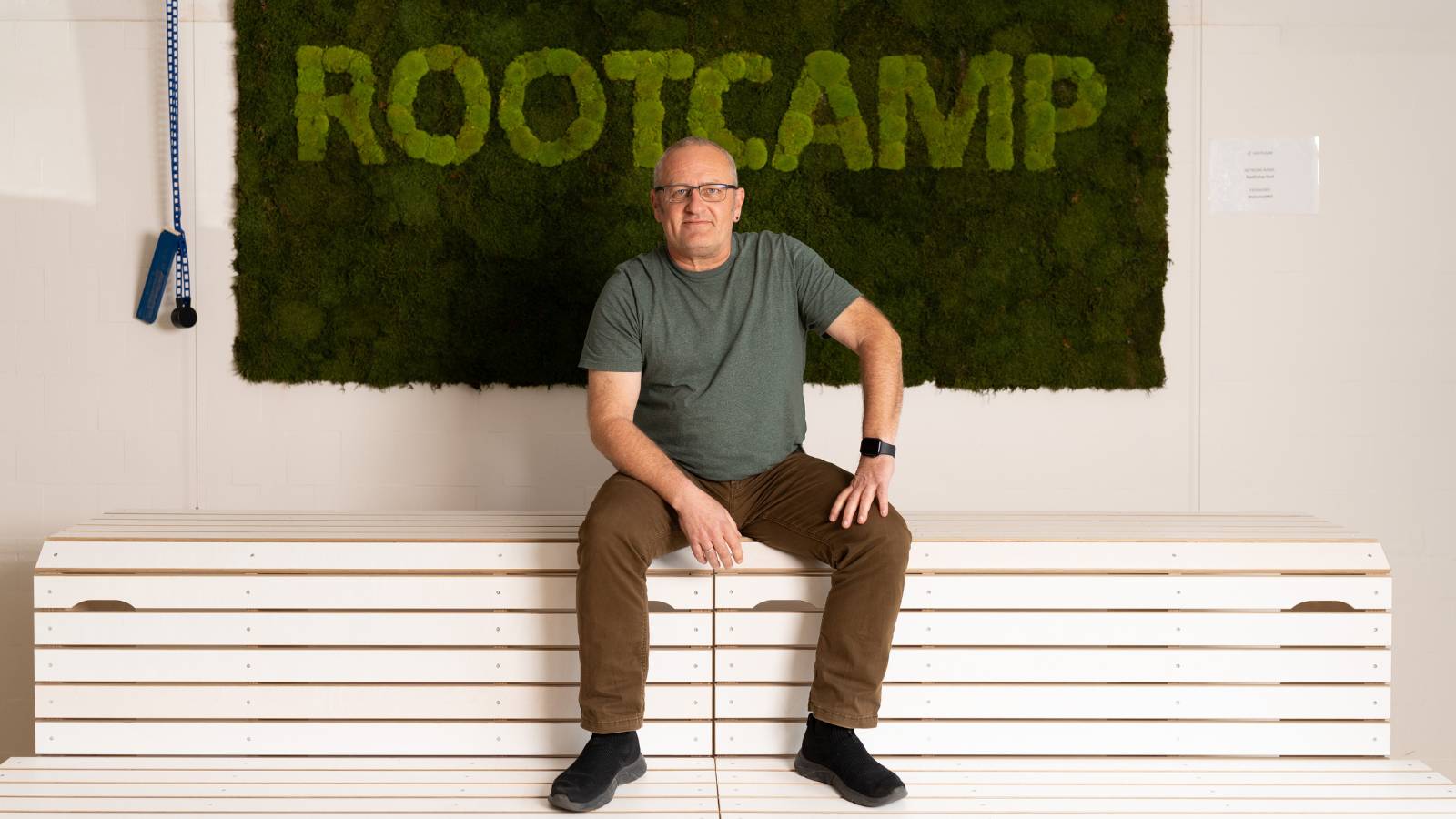
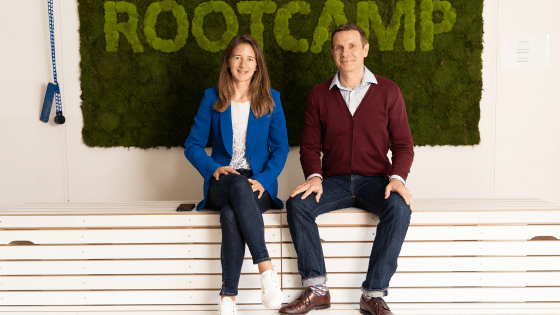
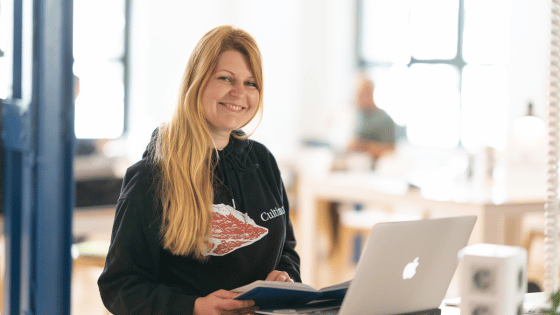
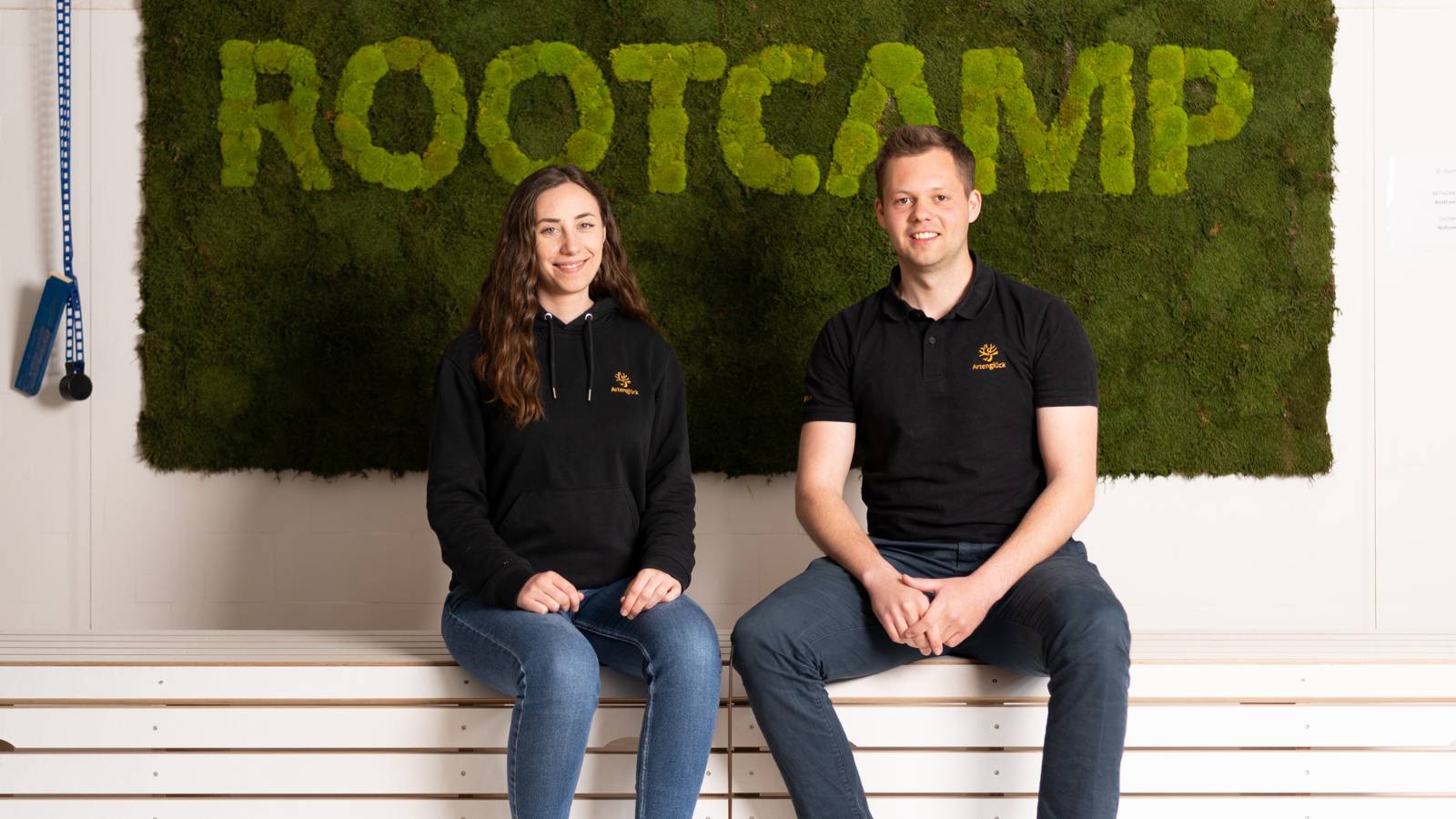
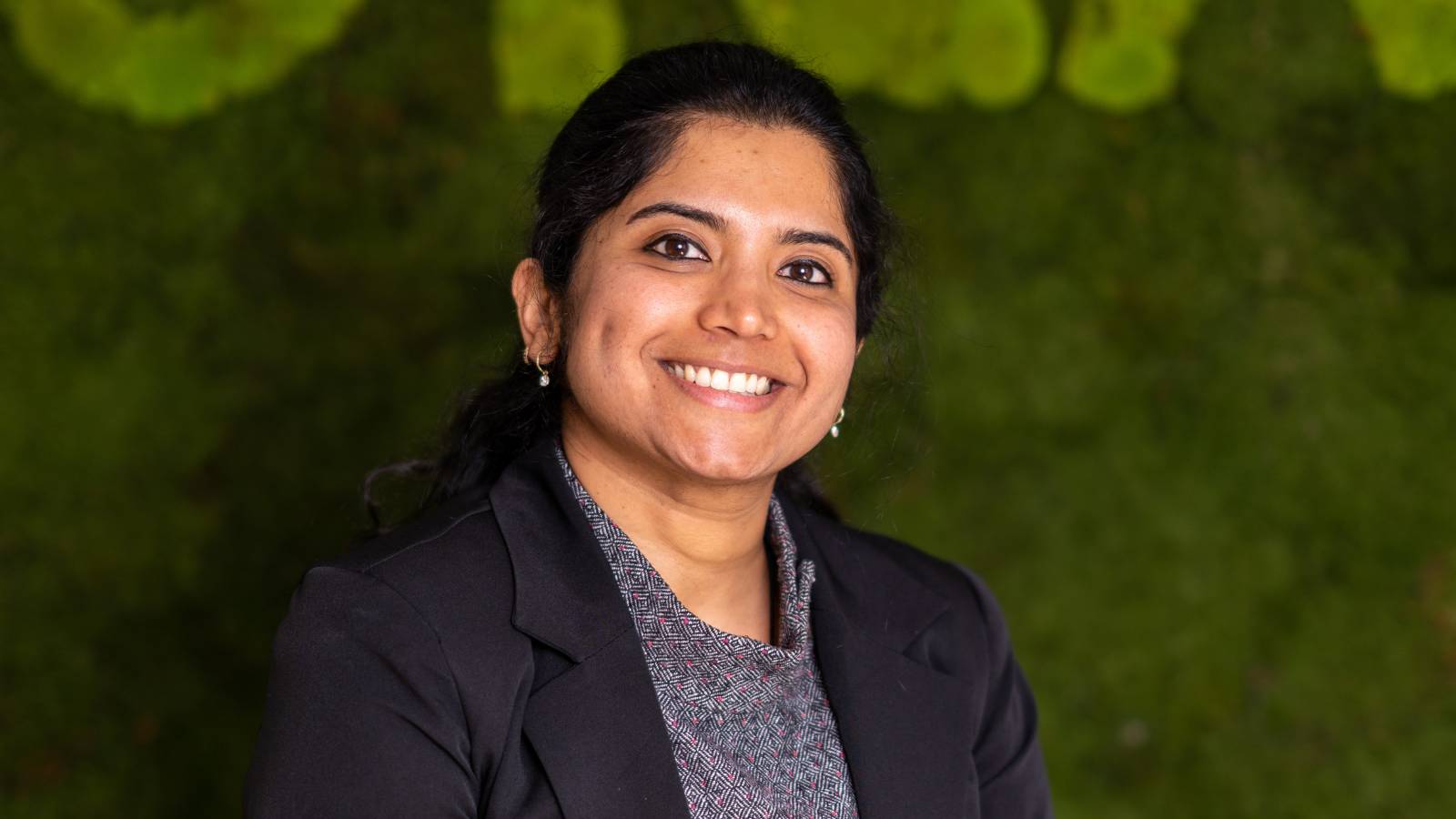
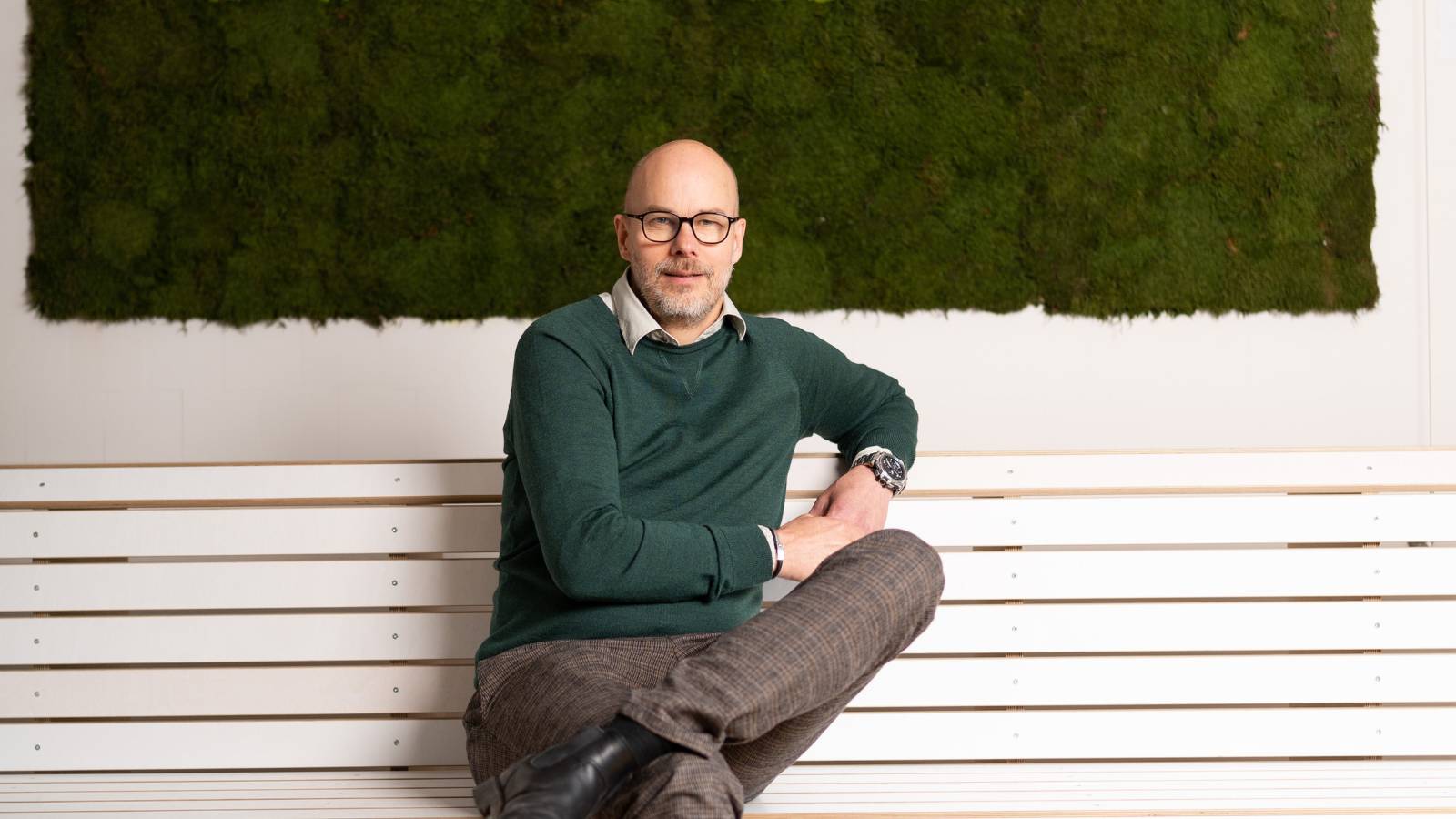
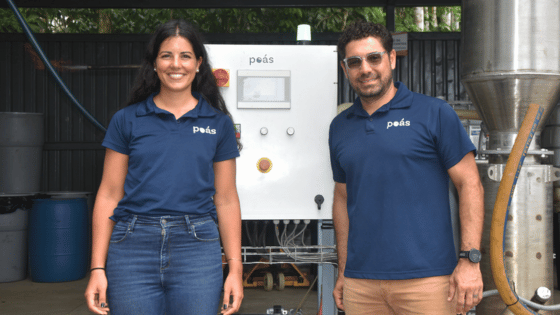
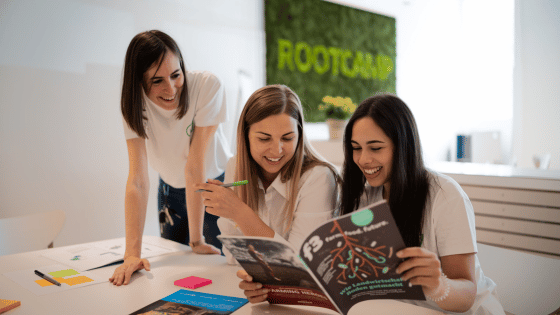
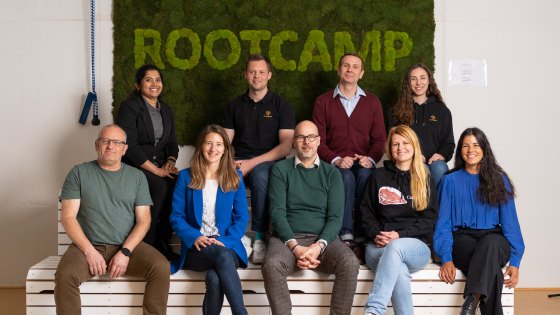
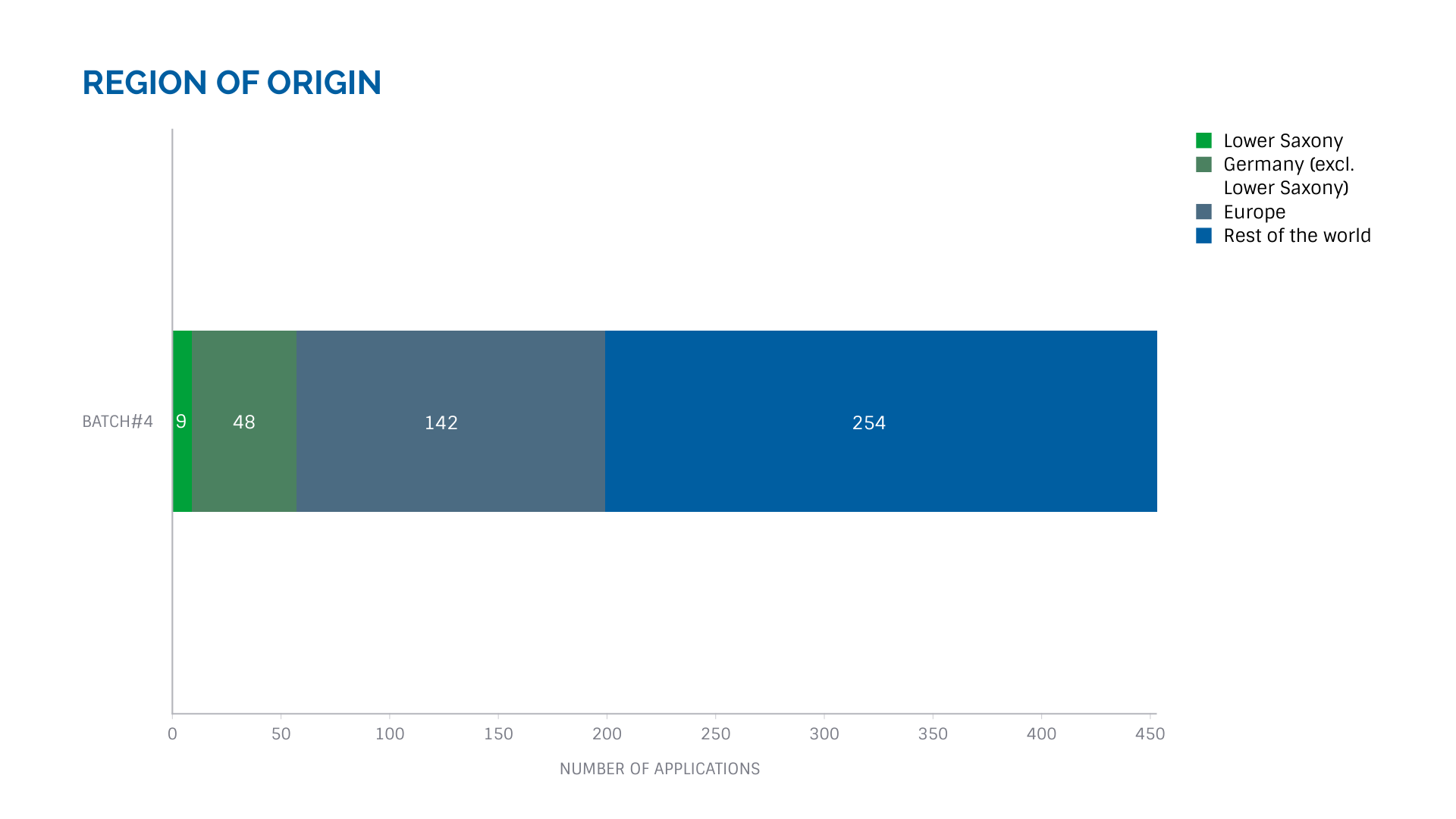
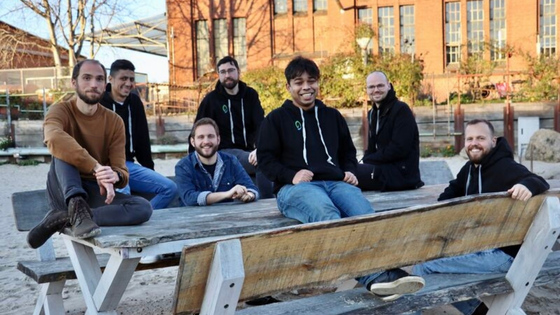
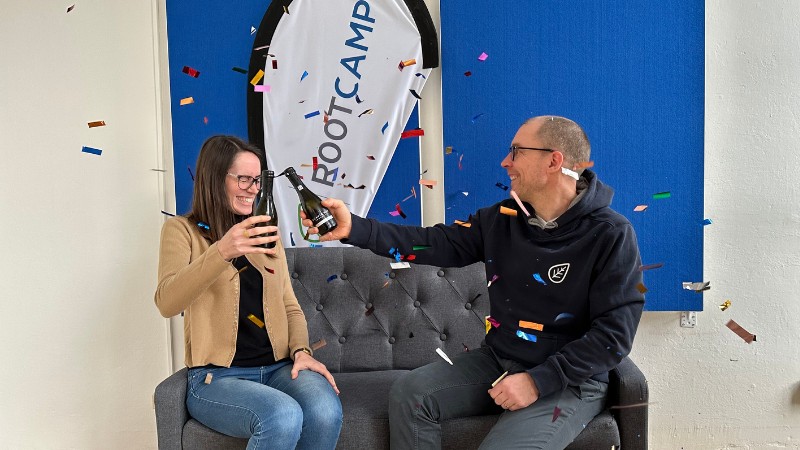
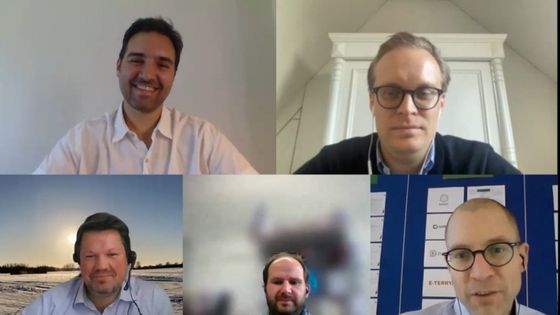
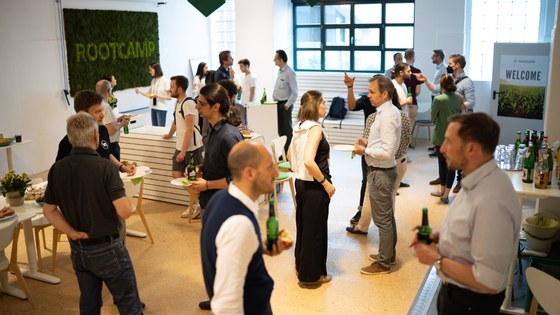
/RC%20Gaia%2c%20Philipp%20Traktor.jpg)
/RootCamp%20Team%20EuroTier%202022.jpg)
/Enrico%20Carta.jpg)
/VetVise%20Team.jpg)
/BLIVE%20expert%20talk.jpg)
/Livestock%20RootCamp%20best%20pratices.jpg)
/RootCamp%20Demo%20Day%20Panel%20Carbon%20Farming.jpg)
/RootCamp%20Demo%20Day%201%20panel%20livestock.jpg)
/Vasco%20Nemitz.png)
/BLIVE%20DLF.jpg)
/RootCamp%20Startup%20Coach%20Caspar%20Olenhusen.jpg)
/RootCamp%20Batch%203%20Blog%20Thumbnail.jpg)
/Absolute%20vs.%20Geographic.png)
/Alexandra%20RootCamp%20Mentor.jpg)
/RootCamp%20Office.jpg)
/wiCow%20team%20RootCamp%20batch%202.jpg)
/fibritech.png)

/contagra.jpg)
/digifarm.png)
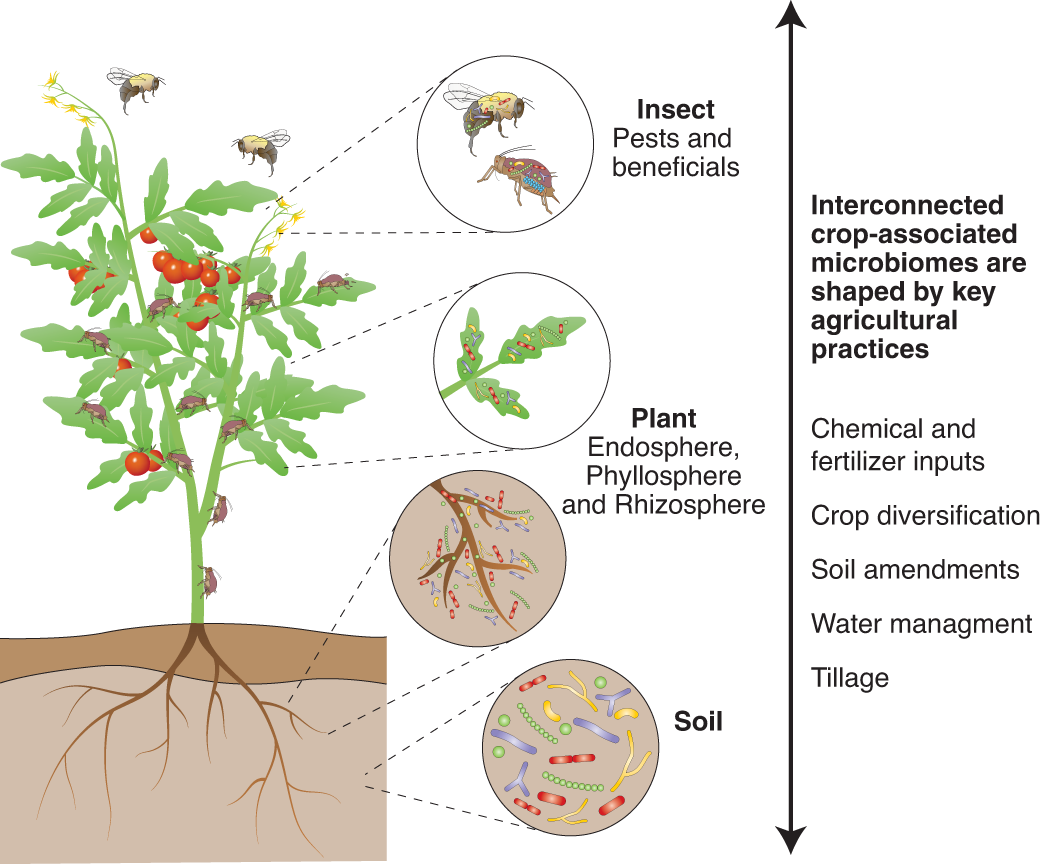
/BioTechCycle-Figure%202.jpg)
/E-Terry%20Teamfoto%20RootCamp.jpg)
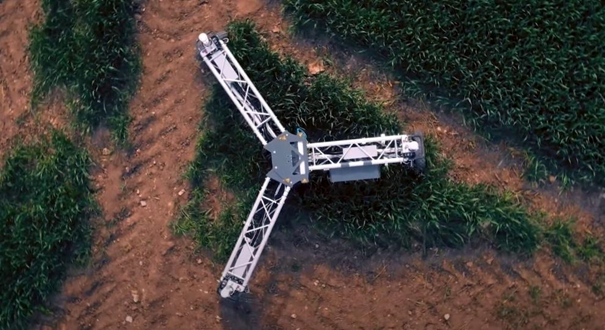
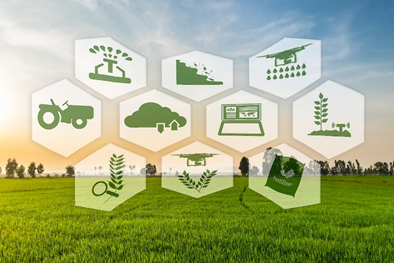
/geopard.jpg)
/carbon%20farming%20blog%201.png)
/agbiotechnology%20blog.jpg)
/Innopark.jpeg)
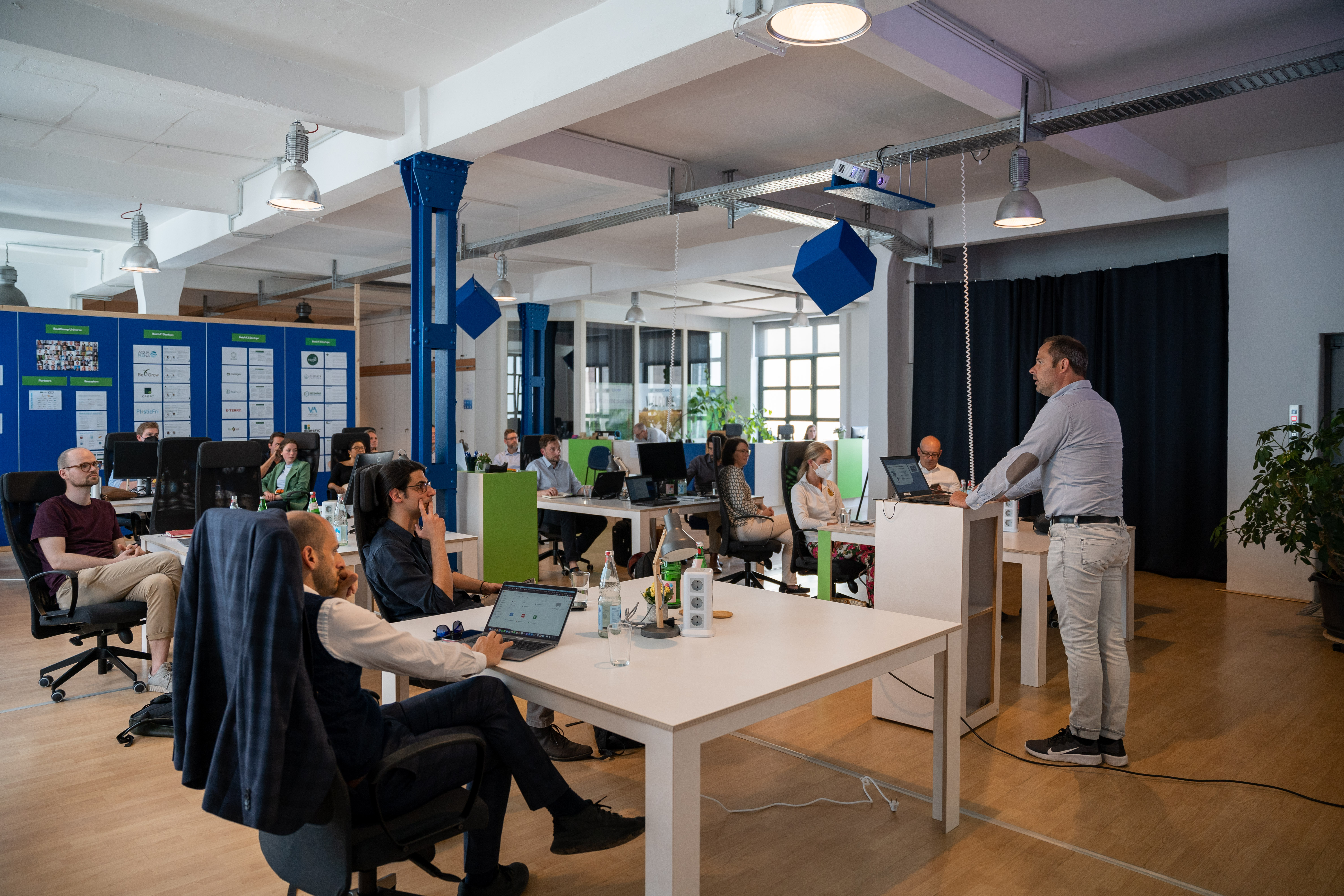

/blog_DD.jpg)
/intro-RC.jpg)
/SCF---team-pic.jpg)
/Cropt---team-pic.jpg)
/rootcamp-header-6.jpg)
/AQ%20new%20picture.jpg)
